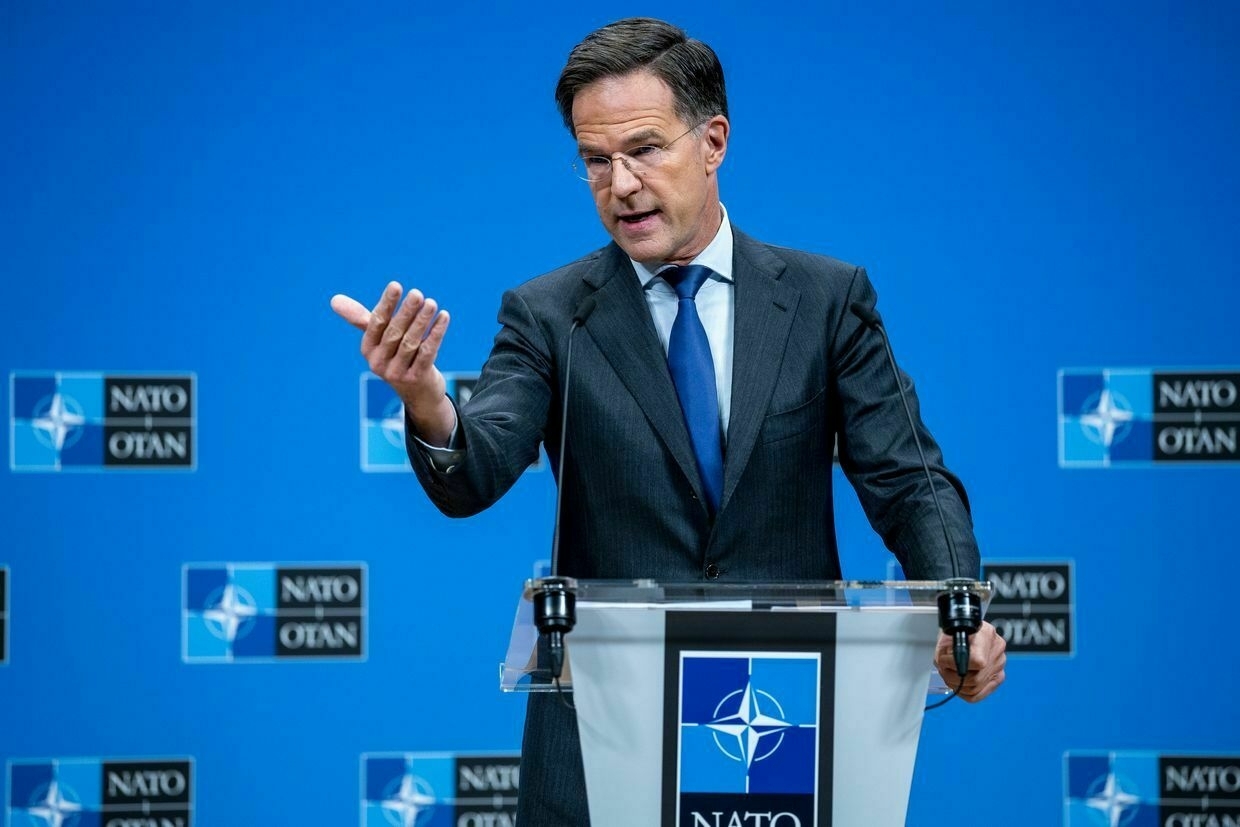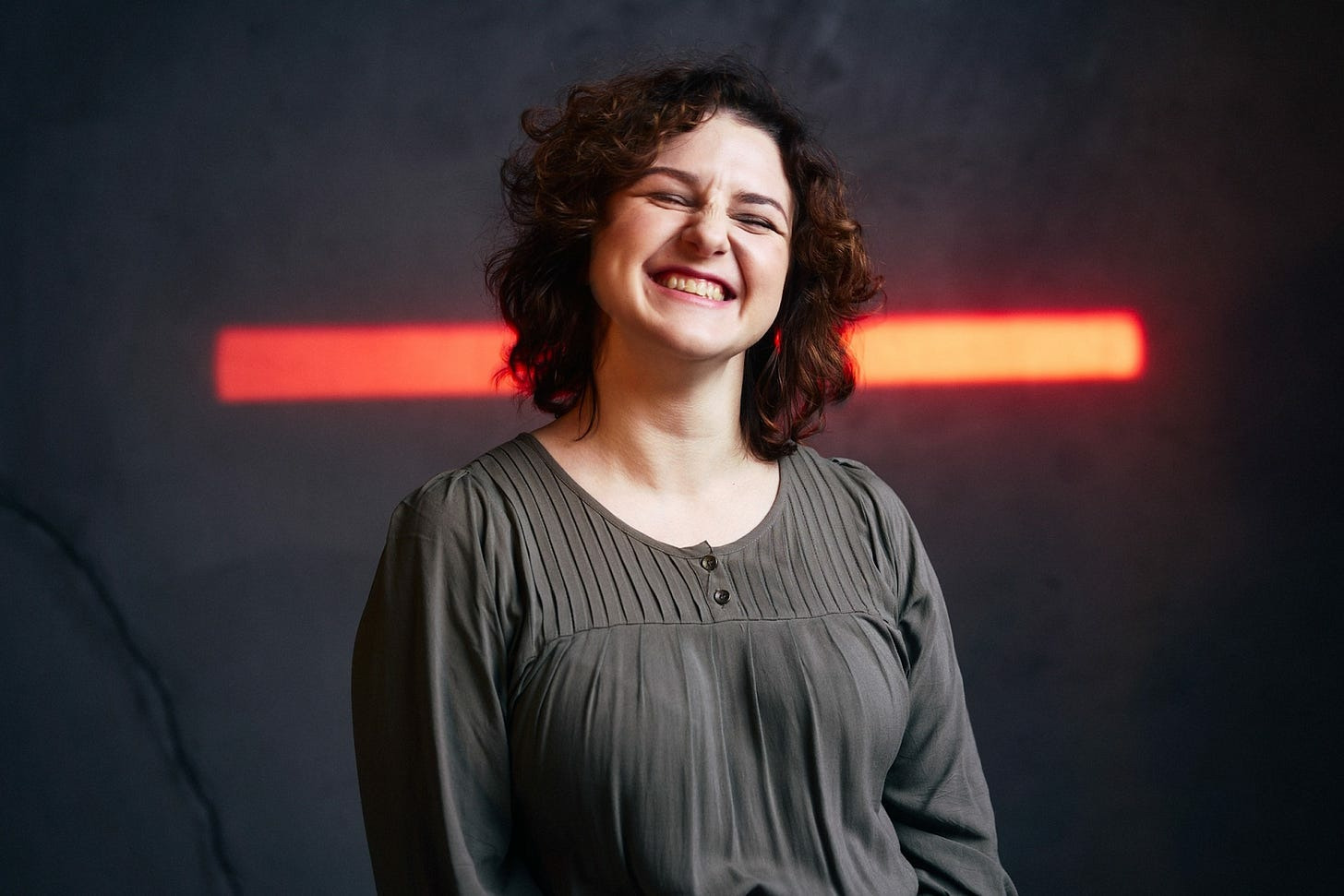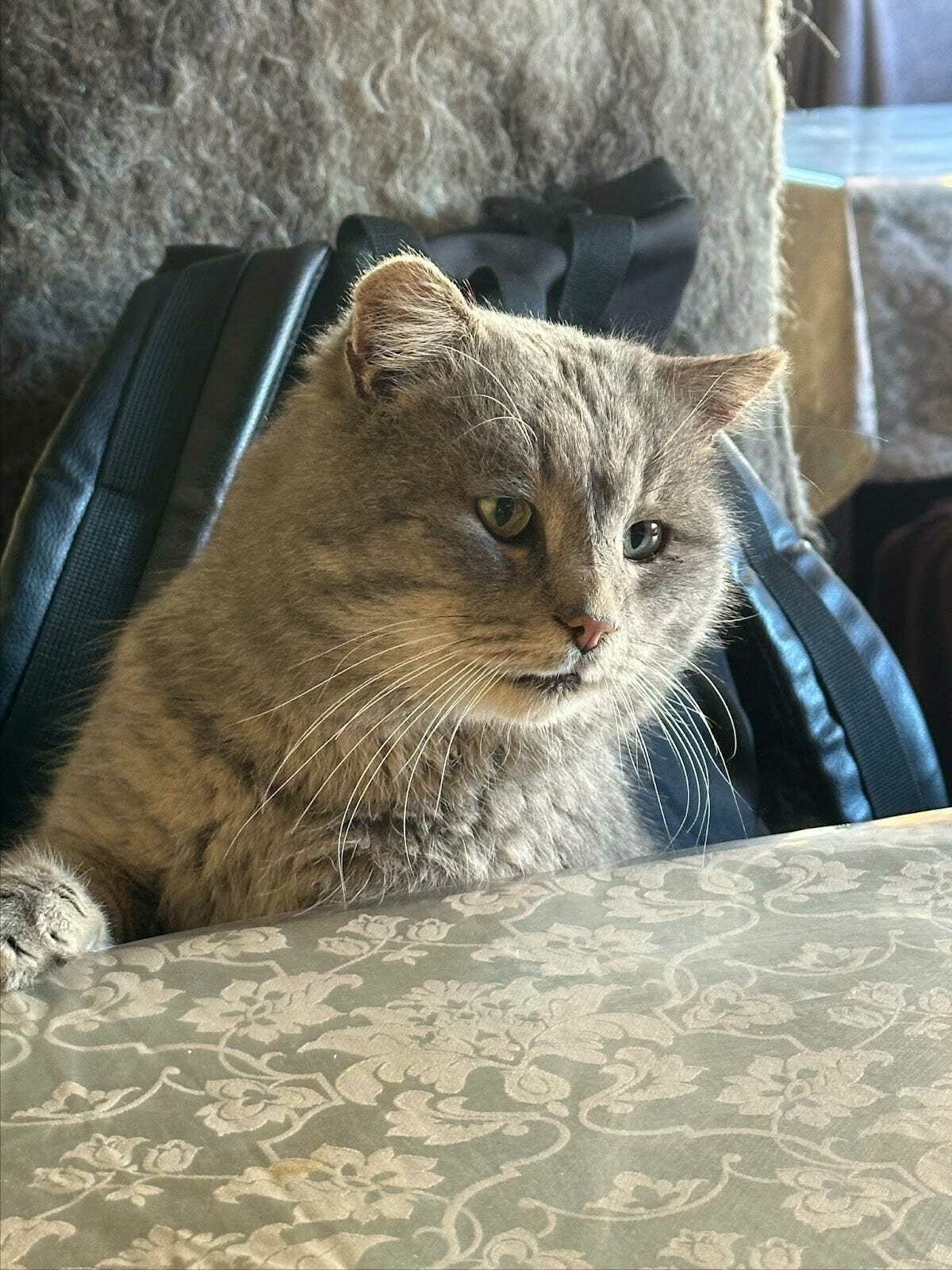-
'No unit named Georgian Legion' in our agency — Ukraine's military intelligence hits back at Slovakia's coup accusations
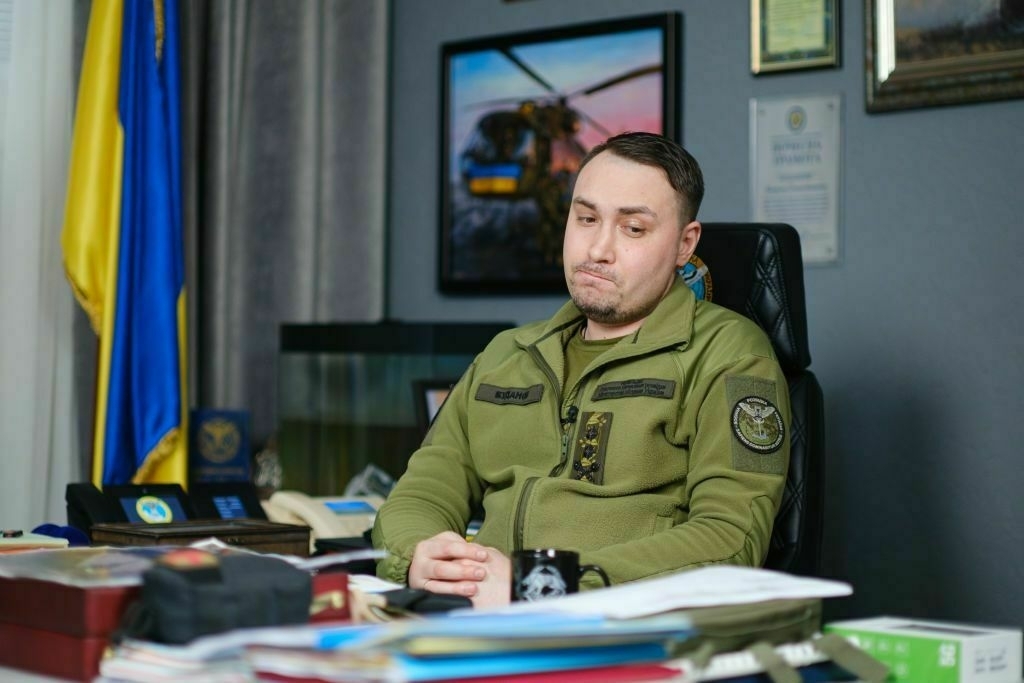
Ukraine’s military intelligence agency (HUR) dismissed claims by Slovak officials that HUR had orchestrated an attempted coup in Bratislava using members of the volunteer-based Georgian Legion.
“The Defense Intelligence of Ukraine officially reports that there is no unit called the Georgian National Legion in its structure,” the agency said in a statement on Feb. 1.
The statement comes after Slovakia banned Georgian Legion commander Mamuka Mamulashvili from entering the country amid allegations that his unit was connected to a coup plot.
Slovak Prime Minister Robert Fico claimed on Jan. 31 Mamulashvili helped organize mass protests in Slovakia on behalf of Ukraine as part of a hybrid operation against his government. He did not explain how Mamulashvili organized the demonstrations or plotted a coup but said the commander was “subordinate” to HUR.
Fico also claimed that the Peace for Ukraine initiative, a group that has helped mobilize the recent protests, had financed the Georgian Legion’s attempts to overthrow the government.
HUR “strongly rejects false accusations of organizing illegal actions in the Slovak Republic,” the agency’s statement said.
Mamulashvili “has no relation to Ukrainian intelligence, and does not receive any tasks or instructions from the Defense Intelligence of Ukraine. This person terminated his contract with the International Legion of the Defense Intelligence of Ukraine in April 2023 and did not renew it,” HUR said.
The Georgian Legion is a volunteer unit that has been fighting in Ukraine since 2014. Mamulashvili established the unit to combat Russian forces in eastern Ukraine.
Fico’s accusations come at a time of heightened tensions between Kyiv and Bratislava. The termination of Russian gas transit via Ukrainian territory on Jan. 1 triggered retaliatory threats from Fico’s Kremlin-friendly government, and Fico has reportedly criticized President Volodymyr Zelensky for supporting the protests in Slovakia.
The demonstrations, held under the slogan “Slovakia is Europe,” swept across 30 cities on Jan. 24. Around 100,000 people nationwide chanted slogans like “Enough of Fico” and “We are Europe,” voicing opposition to the prime minister’s pro-Russian stance.
Outrage after Russian independent media Meduza uses Ukrainian war victim in ad campaignRussian independent news outlet Meduza used a photo of a Ukrainian man mourning his family killed in a Russian strike to bolster its European promo campaign — without his permission, he told the Kyiv Independent.The Kyiv IndependentNatalia Yermak
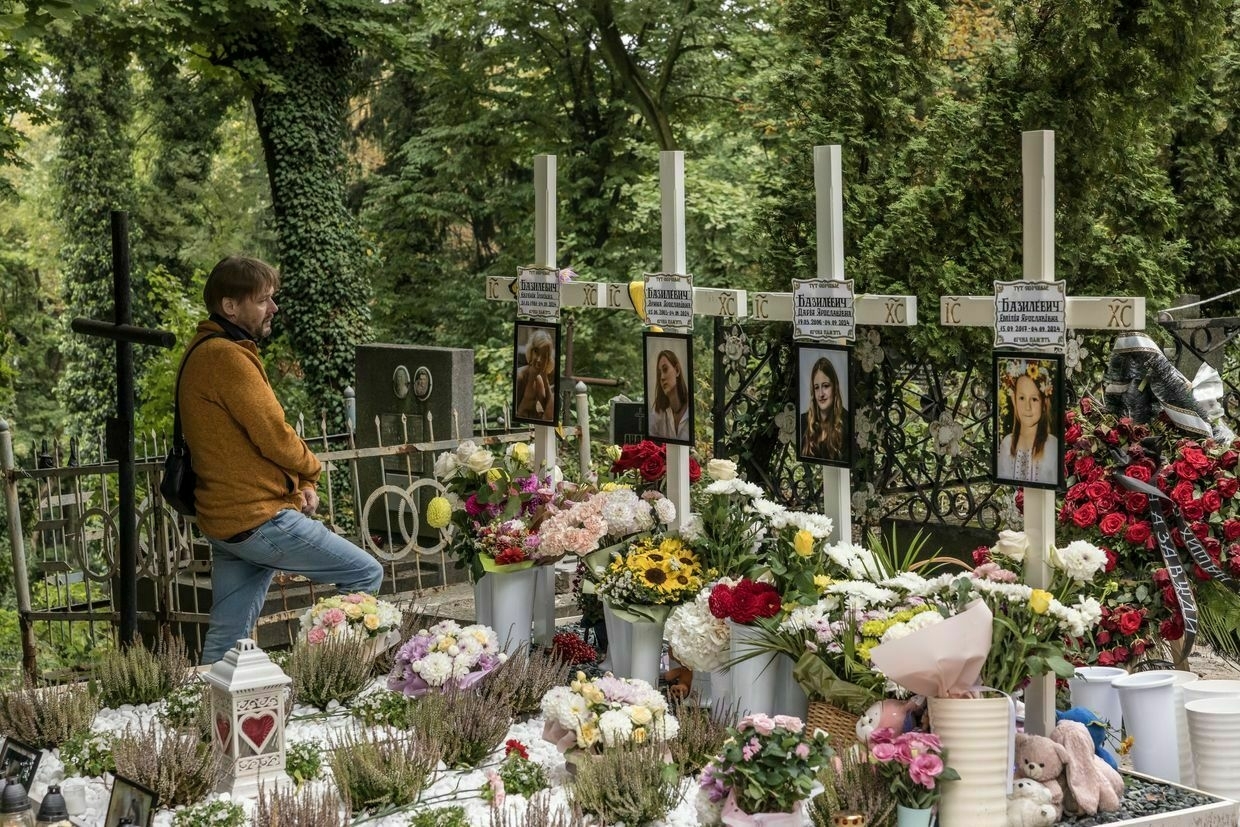
-
US foreign aid transformed Ukraine. Its suspension threatens a setback

Editor’s Note: The Kyiv Independent isn’t a recipient of U.S. foreign aid, and its funding wasn’t affected by the aid freeze.
With the stroke of a pen, U.S. President Donald Trump last week put a freeze on projects that have helped Ukraine become freer and more democratic since the earliest days of its independence in 1991.
The White House ordered a 90-day suspension of U.S. foreign aid-funded projects globally, to ascertain if they aligned with “American interests” and “American values."
The agencies affected include the National Endowment for Democracy, the Food for Peace Emergency Program, and the U.S. Agency for International Development (USAID), an organization particularly active in Ukraine.
Since the start of Russia’s full-scale invasion, USAID has provided Ukraine with $2.6 billion in humanitarian aid, $5 billion in development assistance, and more than $30 billion in direct budget support, helping to rebuild schools after Russian attacks, pay for bomb shelters, advanced medical equipment for hospitals and much more.
Yet USAID’s support for Ukraine began well before the full-scale invasion and, according to people who have worked on such projects, their work is vital, and their value immeasurable.
Ukrainian photographer Vladyslav Sodel, who has been capturing USAID’s work in Ukraine for the past eight years, said people “can’t even imagine” how deeply all the funds provided by USAID have become woven into Ukrainians' lives “to the point where they don’t even suspect it."
In a post on Facebook, Sodel said this aid ranges from “a bed with a mattress” for war refugees, to “multi-billion-dollar investments” in Ukraine’s energy infrastructure that has been ravaged by Russian mass missile attacks.
This “support from the American people” has allowed Ukrainians to “move forward and achieve something greater,” he added.
USAID — benefits and misconceptionsOpinion polls show that Americans significantly overestimate the proportion of the U.S. federal budget that is spent on foreign aid, believing it to be around 25 percent when in fact it was only around 1 percent in 2023, amounting to just 0.25% of GDP.
Yet due to the size of the U.S. economy, this translates to 40 percent of all humanitarian aid globally.
And it’s not just a one-way street — while hugely benefiting the citizens of the countries in which it is spent, U.S. foreign aid also has positive impacts on American citizens back home, Professor Liam Swiss, a foreign aid expert and head of the department of sociology at Canada’s Acadia University, told the Kyiv Independent.
Highlighting USAID programs to fund polio immunization, Swiss said that unless someone steps in to fill the gap, it could harm the global drive to eradicate the disease.
“The only reason we aren’t dealing with polio in the U.S. or in Canada, or the U.K. now, is because we’ve kind of had these successful immunization campaigns to eliminate it,” he said.
Another consequence of reducing or cutting foreign aid that Swiss highlights is the potential of it exacerbating one of the most pressing issues for many Trump supporters — immigration.
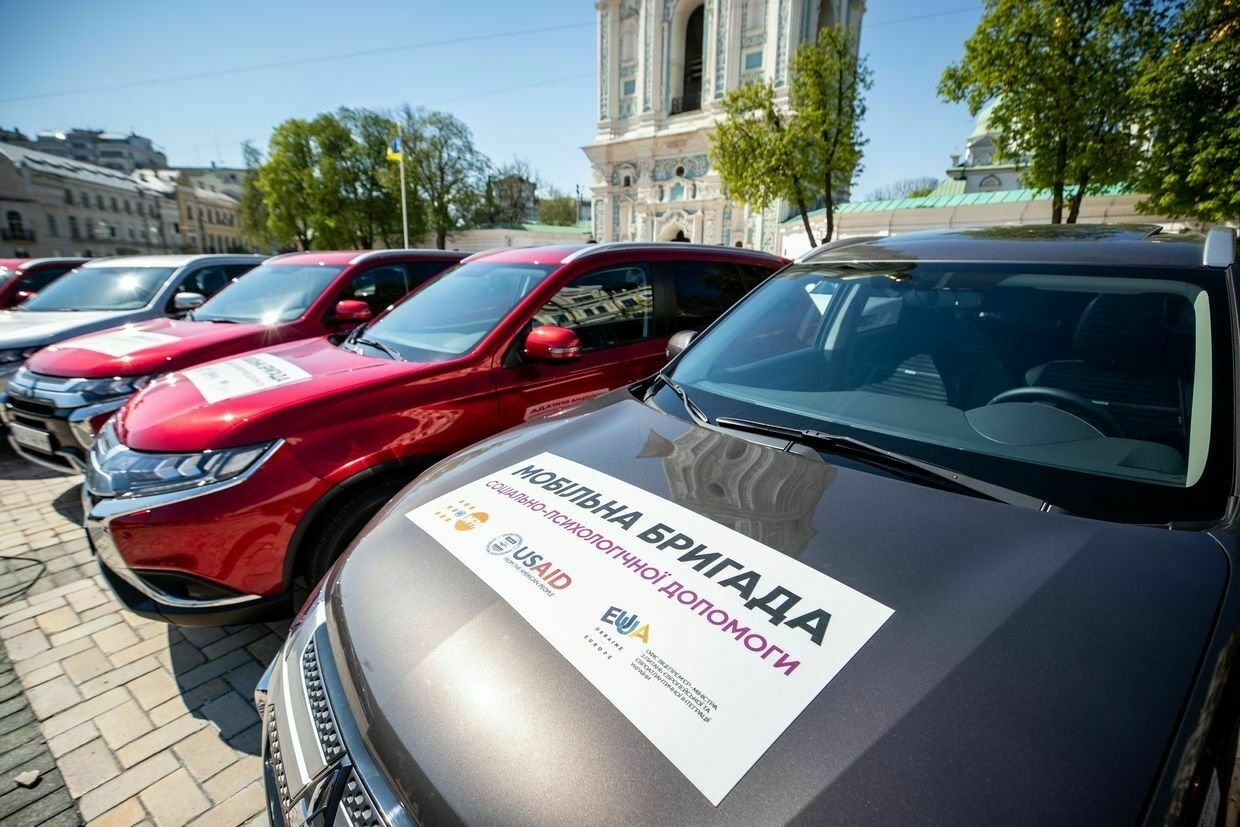
Cars are parked on Saint Michael’s Square during a handover ceremony by the UN Population Fund in Kyiv, Ukraine, on April 25, 2023. (Oleksii Samsonov/Global Images Ukraine via Getty Images) “If you abandon support… does that actually start to drive further migration from those parts of the world that are then furthering the MAGA-perceived border crisis?” he said.
According to Deborah Fairlamb, the co-founder of Green Flag Ventures, who previously worked on several USAID-funded projects in Ukraine, there is also a public misconception that USAID is used by the U.S. to dictate terms and conditions on countries, a mistruth often exploited by Russia and its supporters.
“It’s not the U.S. coming in and unilaterally telling Ukraine what it needs and deciding this. It is always done in conjunction with (the state) and the approval,” she told the Kyiv Independent, adding the Russian propaganda narrative that “USAID is an arm of the CIA” has no basis in reality.
North Korean troops not seen for 3 weeks in parts of Kursk Oblast, Ukraine’s Special Forces say“These are standard measures – rotation due to large casualties,” a military intelligence source commented for the Kyiv Independent, confirming the reports.The Kyiv IndependentMartin Fornusek
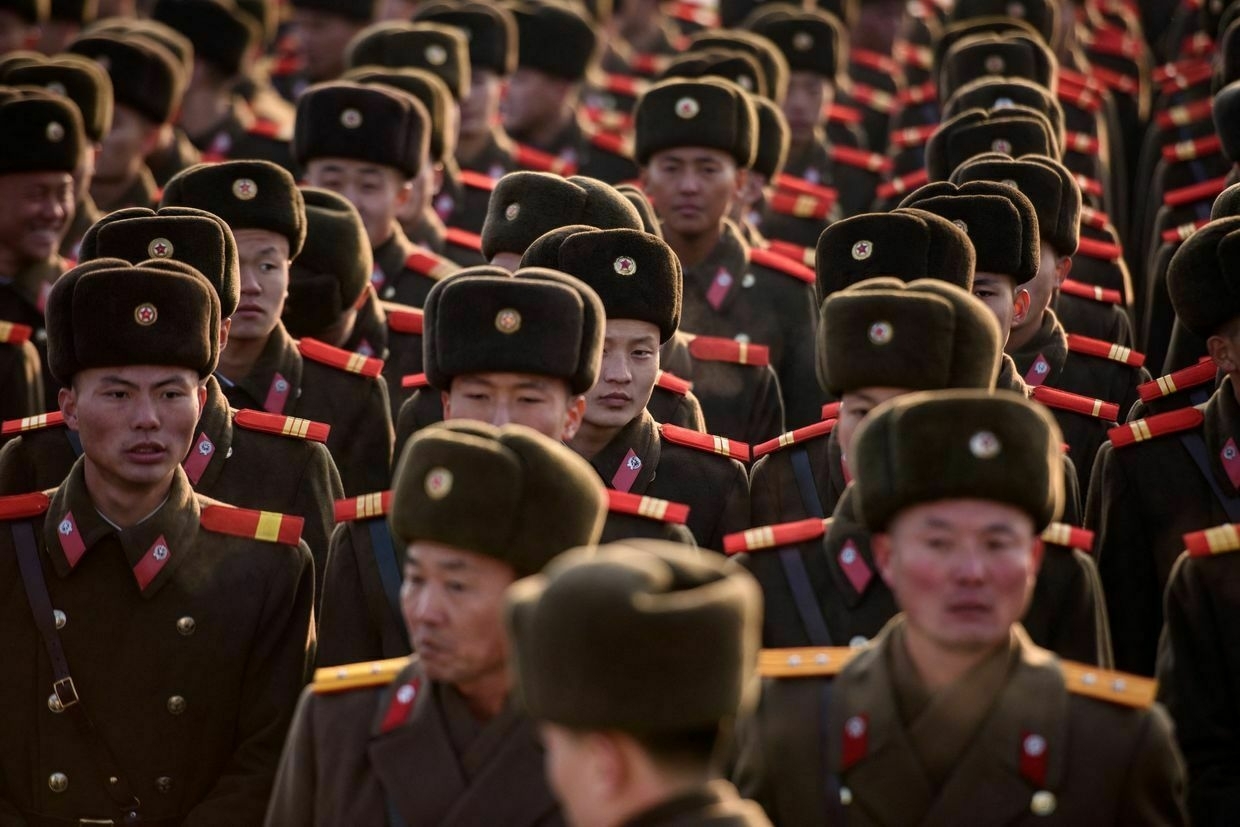
USAID and UkraineWith the signing of a bilateral agreement between Ukraine and USAID in 1992, the agency started working alongside the Ukrainian government to build a competitive market economy, implement crucial social reforms, provide humanitarian, technical, and financial assistance, and help Ukraine navigate its post-Soviet transition.
“Thus began a 30-year partnership that has endured, animated by the belief that by working together, we can forge a secure and prosperous future for all Ukrainians,” reads the USAID statement on its work in Ukraine.
In over 30 years of working in Ukraine, USAID has played a key role in transforming numerous sectors that often go unnoticed.
Dmytro Boyarchuk, the executive director of the Centre for Social and Economic Research (CASE Ukraine), said that Ukraine would not have been able to implement vital reforms without the support of international donors like USAID.
“Ukraine would not have been able to implement vital reforms without the support of international donors like USAID.”
The USAID’s technical assistance program which provides expert advice, support, and resources to help countries implement reforms and achieve development goals, played a big role in transforming Ukraine after the EuroMaidan Revolution that ended the rule of pro-Russian President Viktor Yanukovych in 2014.
Boyarchuk says that back then, the "reform-minded" people took advantage of it to introduce changes and push solutions through the parliament.
USAID's efforts have also included supporting judicial reforms and anti-corruption initiatives, and promoting transparency and accountability in governance.
It also supported Ukraine’s 2014 decentralization reform, which granted more economic and political freedom to small villages and towns.
While USAID’s impact on freedom of speech in Ukraine can only be traced "indirectly," the organization greatly supported Ukrainian human rights activists and journalists, says Oksana Romaniuk, chief of the Kyiv-based Institute of Mass Information (IMI).
"We, in turn, monitored freedom of speech, we made statements, we held protests, we developed media legislation," Romaniuk told the Kyiv Independent, adding USAID was a "supporting structure" for independent media.
But in 2022, Russia’s full-scale invasion reshaped the focus and priorities of USAID’s work in Ukraine.
"When the (all-out) war started, everything shifted into survival mode. And it was not just USAID, it was the entire country," says Fairlamb.
Before that, USAID may have been helping a community "develop a business plan and figure out how best to use the new tax-free resources," Fairlamb says, but after Feb. 24, 2022, the critical issue became "making sure people in that community had electricity, and that those who had been displaced could find homes."
It is these seemingly small efforts that have played a crucial role in helping Ukraine lessen the devastating impact of the full-scale war.
Small steps matterMykolaiv-based entrepreneur Tetiana Viaznikova says the small grant that she received thanks to USAID has helped save lives during the war.
Back in 2021, Viaznikova launched her first aid course "Sample" but Russia’s full-scale war forced her to switch to working at a military administration center in southern Ukraine.
Then last summer, she quit her job and decided to scale the courses up.
A small grant of Hr 410,000 (around $9,700) allowed her to purchase new tourniquets and mannequins, expand her course offerings, and order a marketing strategy.
"It wasn’t just money to get by — it was a boost that helped me scale my business," Viaznikova says. "Thanks to a marketing strategy, I found clients and continue to train people."
Since last fall, over 750 people have undergone her training, and several of them have already saved lives using their new skills.
"For small business owners and those just starting out, even small amounts of money, like mini-grants, provide a foundation that gives you the opportunity to start and scale up," Viaznikova says.
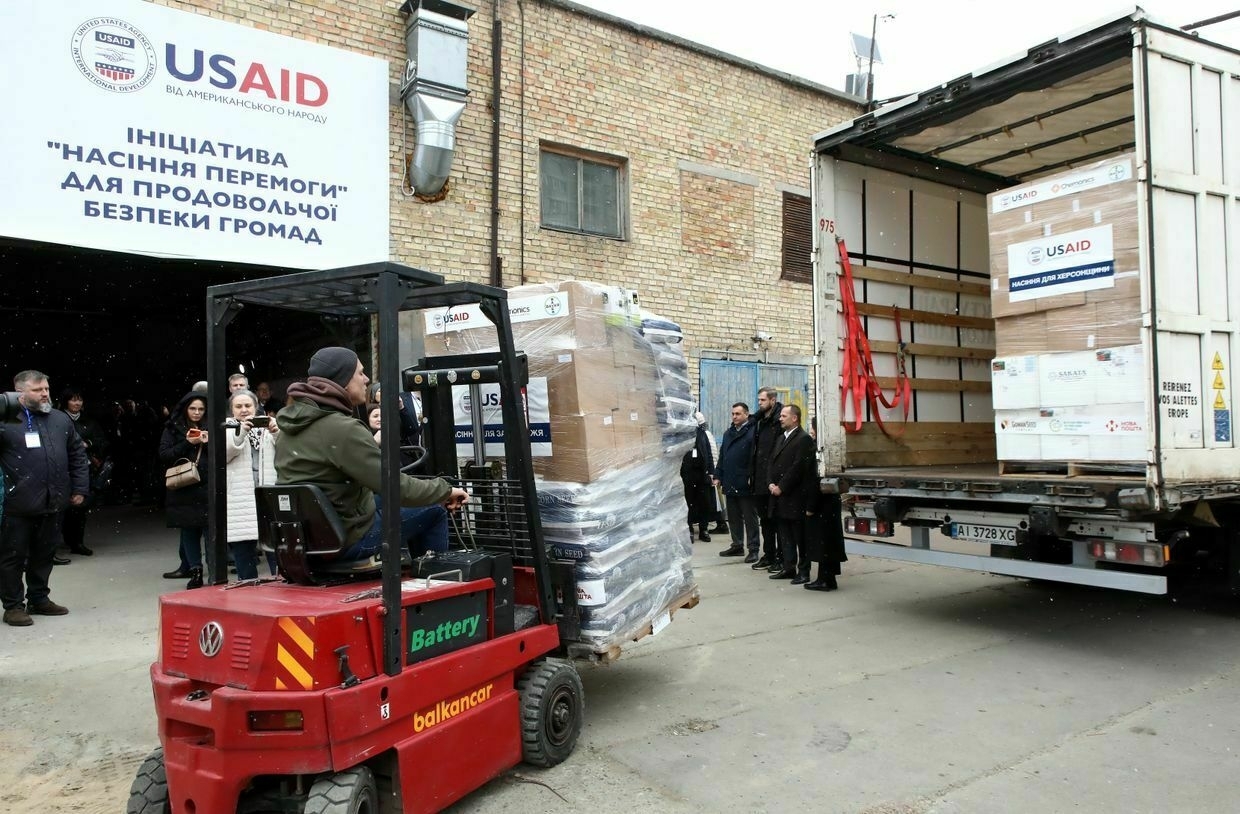
Transfer of more than 10 tons of vegetable seeds to more than 200 thousand households in frontline and de-occupied communities under the USAID Agricultural and Rural Development Program (AGRO) in Kyiv Oblast, Ukraine, on March 12, 2024. (Volodymyr Tarasov / Ukrinform / Getty Images) There are thousands of success stories like Viaznikova’s across Ukraine, all made possible by USAID, from training teachers and providing scholarships for researchers, to supporting Ukraine’s energy infrastructure and agriculture.
A farmer from war-torn Kharkiv Oblast managed to save his crops after receiving costly fertilizers for free, while Ukrainian internally displaced persons (IDPs) gained access to vital medication and essential goods.
The work of USAID in just one territorial community in Chernihiv Oblast amply demonstrates its impact.
USAID-funded projects have created spaces for young people, organized workshops and training sessions for locals, supplied new equipment for municipal services and hospitals, and much more.
"The stop of USAID’s support means lost opportunities," Andriy Tkach, the secretary of the Sosnytsia village council, told the Kyiv Independent.
What is at stakeWhile the U.S. has issued a waiver for "life-saving humanitarian assistance," most USAID-funded programs in Ukraine now face at least a three-month pause in funding, and an even more dire situation if it is not renewed after the U.S. State Department review.
Boyarchuk said Ukraine’s agriculture sector — "the key sector today that is holding up the economy, with more than 60% of commodity exports being agricultural products" — is largely dependent on donors’ support.
"And while we praise their (farmers’) resilience, their equipment was damaged, destroyed, or taken — this is all a significant cost, and they have to continue working," he adds.
Many Ukrainian non-profits and media outlets are already appealing for alternative funds and donations, while others have decided to halt certain operations.
Veteran Hub, an NGO that supports Ukrainian soldiers, war veterans, and their families, announced that it had to close its operations in Vinnytsia.
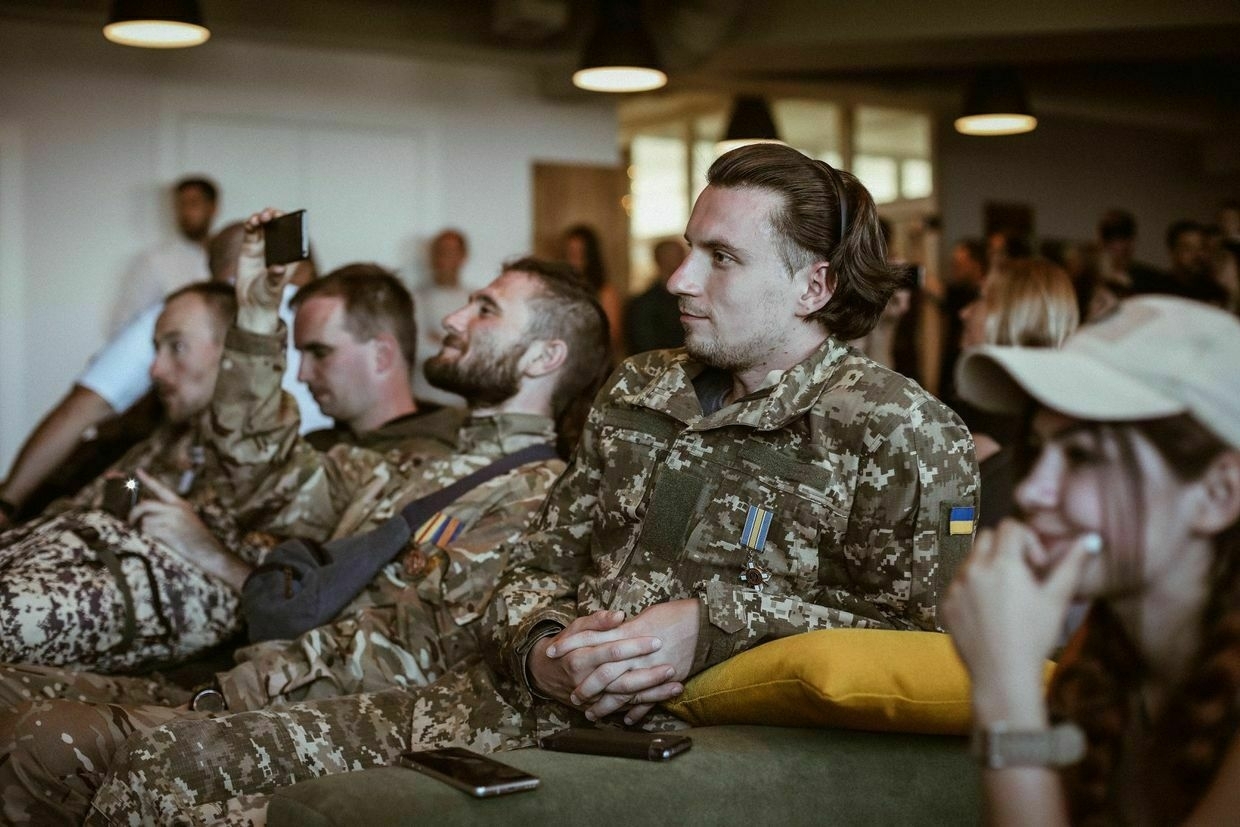
Ukrainian Veterans at Veteran Hub, an NGO supporting Ukrainian soldiers, war veterans, and their families in Kyiv, Ukraine. (Veteran Hub / Facebook) Ukrainian media, especially regional outlets, are under threat as well.
According to Romaniuk, nearly 90% of regional media funding relies on grants, with advertising accounting for only 3-10% of their revenue.
"At the start of the invasion, over 300 regional outlets shut down due to financial strain, Russian attacks, and people fleeing," Romaniuk says, adding: "This may lead to another wave of media shutdowns."
Bogdan Logvynenko, founder of Ukrainer, a popular online magazine that lost most of its funding due to the U.S. aid freeze, says that Trump’s decision is not just about Ukraine "but about a new isolationist policy of the U.S."
"How will the (media) sector survive this? I think it may shrink by half," he says.
Ukraine’s unlikely ally against Russian attacks on energy sector — warm weatherNearly three years into the war, Ukrainians have grown used to bracing for brutal winters with electricity blackouts and heating cuts from Russian attacks on the country’s energy infrastructure. This winter was predicted to be one of the toughest ones of the war yet. In a worst-case scenario, black…The Kyiv IndependentNatalia Yermak
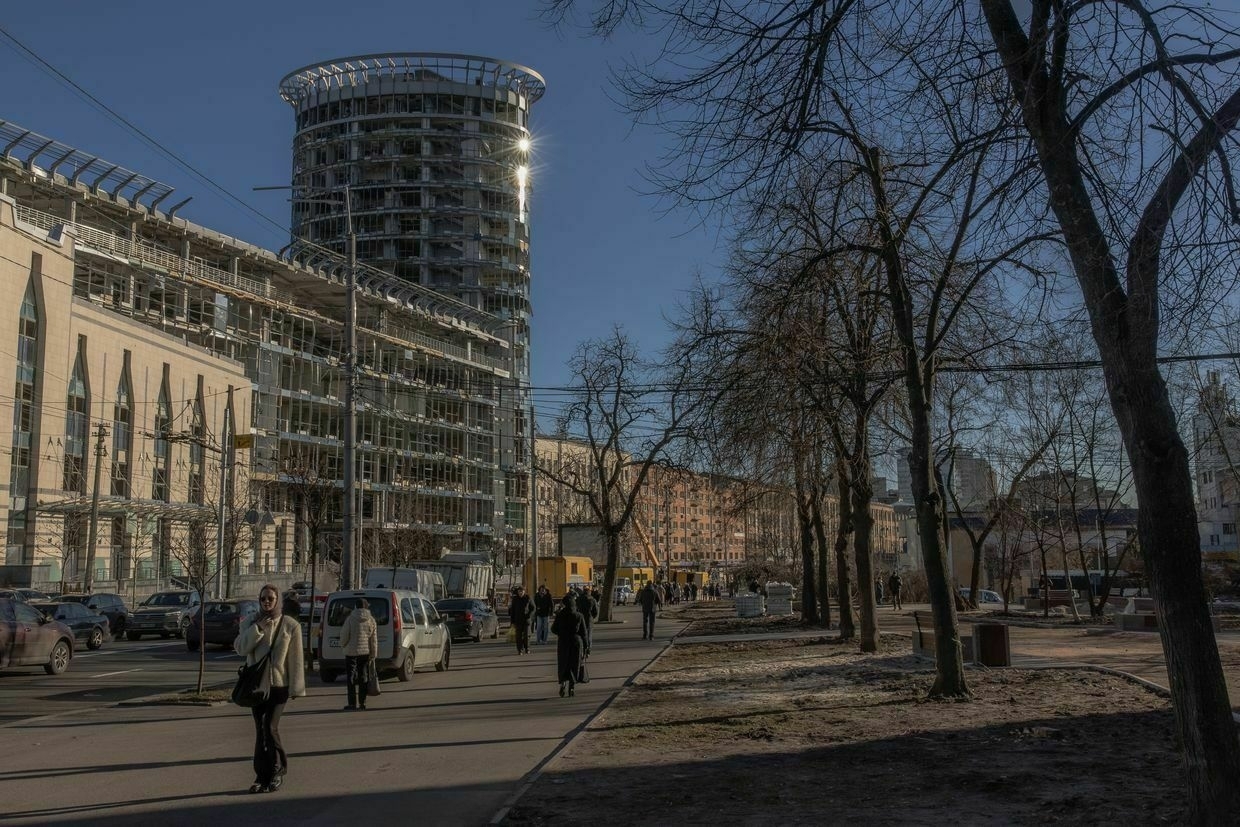
-
Slovakia bans Georgian Legion commander, linking him to alleged coup plot
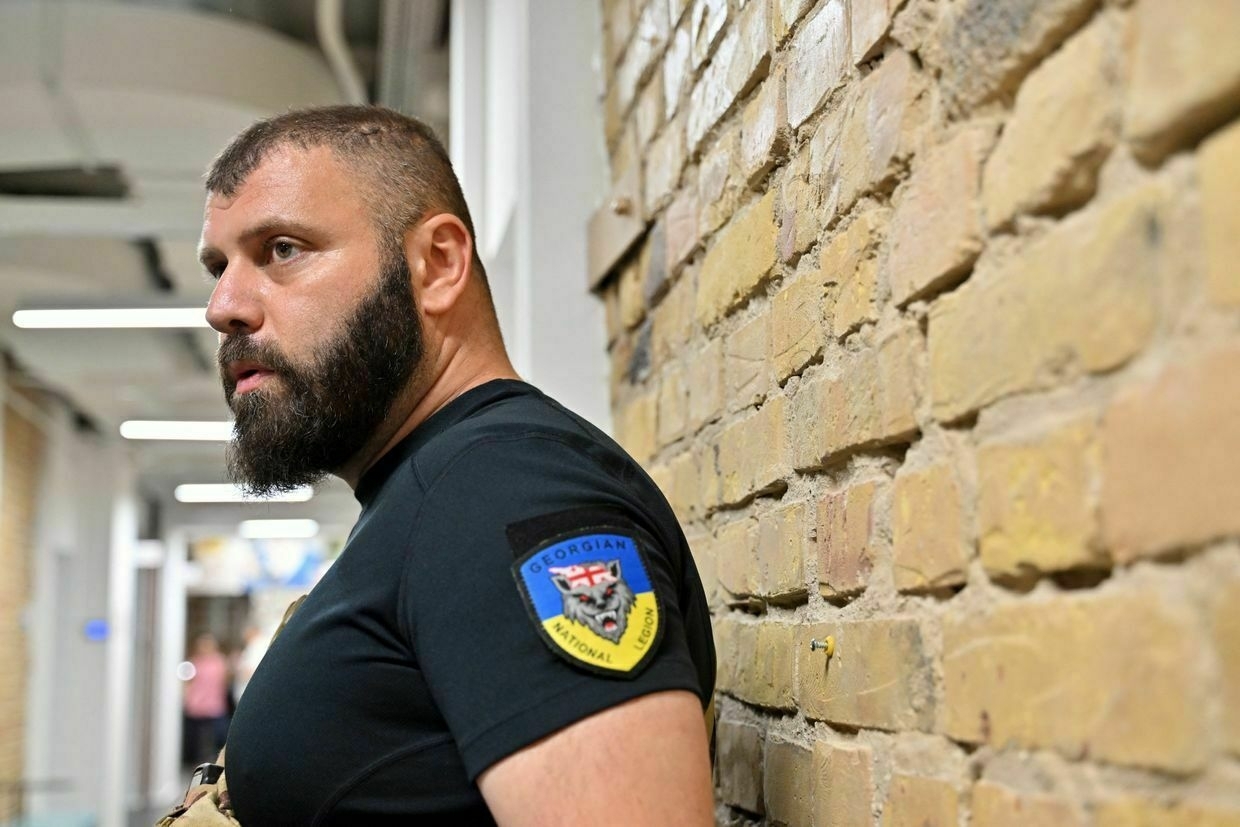
Slovakia has banned Georgian Legion commander Mamuka Mamulashvili from entering the country after the government linked his unit to an alleged coup plot, Denník N reported on Jan. 31.
The volunteers-based Georgian Legion, which has been fighting in Ukraine since 2014, was founded by Mamulashvili to combat Russian forces.
Slovak Interior Minister Matúš Šutaj-Eštok said a total of 10 people were on the list of individuals barred from entering Slovakia.
During a press conference, Slovak Prime Minister Robert Fico did not explain how Mamulashvili could have organized protests in Slovakia or been behind the alleged coup plot.
The demonstrations, held under the slogan “Slovakia is Europe,” swept across 30 cities on Jan. 24, with around 100,000 people nationwide chanting slogans like “Enough of Fico” and “We are Europe” in opposition to his policies and pro-Russian stance.
The protests were also fueled by Fico’s visit to Moscow in late December, where he met with Russian President Vladimir Putin — one of the few European Union leaders to do so since Russia’s full-scale invasion of Ukraine in 2022.
Fico cited a photo of Mamulashvili with Lucy Štasselová from the Peace for Ukraine initiative and Denník N commentator Martin Šimečka, both of whom supported the Georgian Legion, as evidence for his claim.
The Georgian Legion dismissed the Slovak government’s accusations as “absurd and groundless."
“These statements are nothing more than a deliberate attempt to discredit our unit, which has been fighting alongside Ukraine against Russian aggression since 2014,” Mamulashvili said.
A similar accusation previously emerged in Georgia, where the State Security Service (SSG) alleged that the Georgian Legion, a former bodyguard of ex-President Mikheil Saakashvili, and Giorgi Lortkipanidze—allegedly a deputy head of Ukraine’s military intelligence—were involved in a plot against the ruling pro-Russian Georgian Dream party.
“Now, the Slovak authorities have decided to follow the same Russian game, recycling the same lies to serve their own political agenda,” Mamulashvili added.
The news came a day after reports that the police in Slovakia detained a Ukrainian citizen on Jan. 30 suspected of preparing a coup in the country.
Relations between Kyiv and Bratislava have become increasingly tense this month. Fico, who has long opposed military aid to Ukraine, has escalated threats against Kyiv following the termination of Russian gas transit via Ukrainian territory on Jan. 1.
Zelensky backs Slovak protests as Fico criticizes opposition, organizers“Bratislava is not Moscow, Slovakia is Europe,” President Volodymyr Zelensky wrote on X on Jan. 25, voicing support for protests against Slovakia’s government.The Kyiv IndependentOlena Goncharova
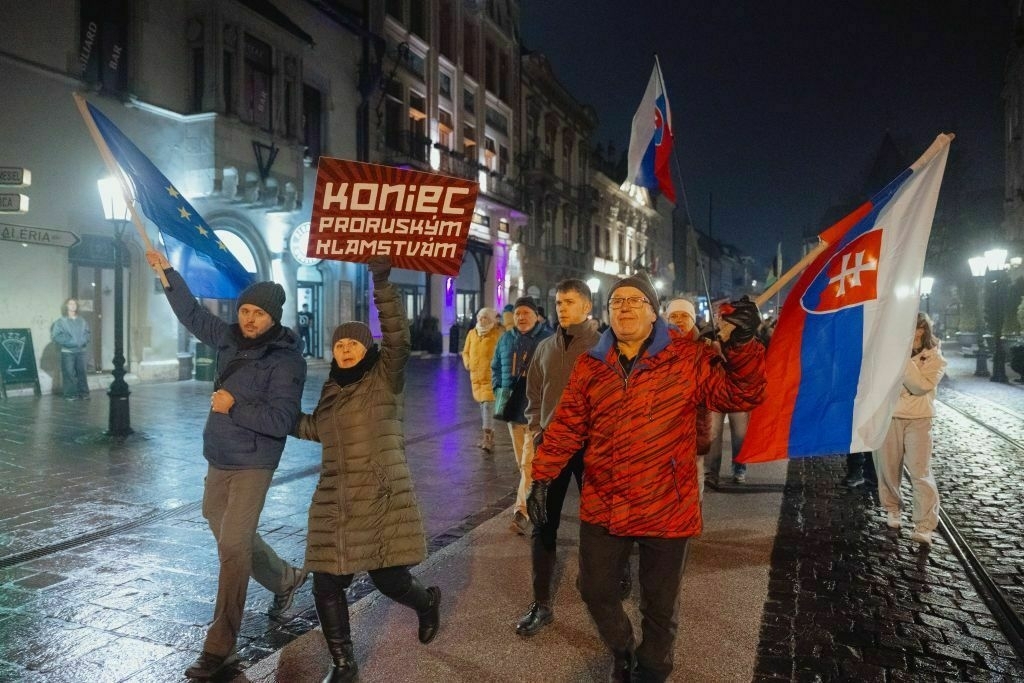
-
Belarus Weekly: Lukashenko gets himself reelected for 7th consecutive term
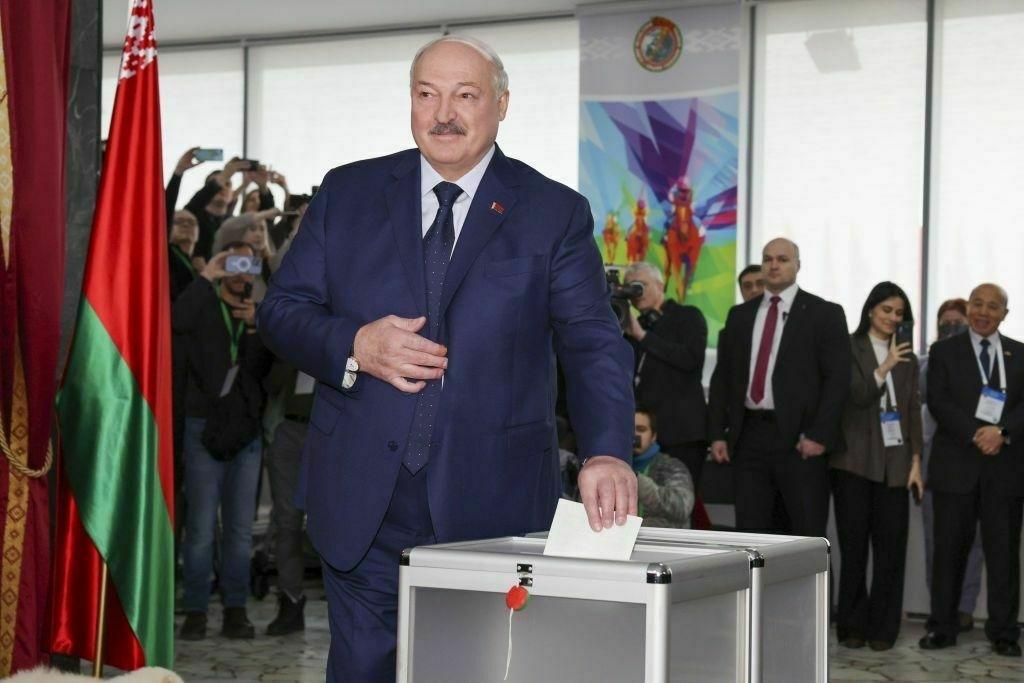
Aleksandr Lukashenko has awarded himself a seventh term as president of Belarus, with the West calling the so-called vote a sham and introducing additional sanctions.
Belarusian political observer Artsiom Shraibman told the Kyiv Independent that Lukashenko faces uncertain future after the vote.
Hungary refuses to sign joint EU statement condemning Belarus’s elections, RFE/RL reports.
Subscribe to the NewsletterBelarus Weekly<span data-sanitized-id="belarus-weekly-info" data-sanitized-class="belarusWeekly__info"></span> <button data-sanitized-id="belarus-weekly-subscribe-btn" data-sanitized-class="belarusWeekly__form_button"> <span data-sanitized-class="belarusWeekly__form_label">Join us</span> <path d="M4.45953 12.8114H7.90953C8.00052 12.8127 8.09085 12.7958 8.17517 12.7616C8.25949 12.7274 8.3361 12.6766 8.40044 12.6123C8.46478 12.548 8.51556 12.4714 8.54975 12.387C8.58395 12.3027 8.60088 12.2124 8.59953 12.1214C8.58173 11.9269 8.48974 11.7467 8.34265 11.6183C8.19555 11.4898 8.00465 11.4229 7.80953 11.4314H4.45953C4.27653 11.4314 4.10103 11.5041 3.97163 11.6335C3.84223 11.7629 3.76953 11.9384 3.76953 12.1214C3.76953 12.3044 3.84223 12.4799 3.97163 12.6093C4.10103 12.7387 4.27653 12.8114 4.45953 12.8114Z" fill="white"></path> <path d="M8.6 15.0114C8.60135 14.9204 8.58442 14.83 8.55022 14.7457C8.51603 14.6614 8.46525 14.5848 8.40091 14.5205C8.33656 14.4561 8.25996 14.4053 8.17564 14.3711C8.09131 14.3369 8.00098 14.32 7.91 14.3214H2.69C2.507 14.3214 2.3315 14.3941 2.2021 14.5235C2.0727 14.6529 2 14.8284 2 15.0114C2 15.1944 2.0727 15.3699 2.2021 15.4993C2.3315 15.6287 2.507 15.7014 2.69 15.7014H7.81C8.00511 15.7099 8.19602 15.643 8.34311 15.5145C8.49021 15.386 8.5822 15.2058 8.6 15.0114Z" fill="white"></path> <path d="M24.4202 6.01122H7.55022C7.43403 5.99626 7.31641 5.99626 7.20022 6.01122L7.08022 6.06122C6.85578 6.16602 6.66595 6.33276 6.53308 6.54181C6.4002 6.75086 6.32982 6.99352 6.33022 7.24122C6.32744 7.43266 6.36832 7.62222 6.44976 7.79549C6.5312 7.96876 6.65105 8.1212 6.80022 8.24122L12.5802 13.4512L6.89022 18.7112C6.71923 18.8375 6.57973 19.0016 6.4826 19.1907C6.38546 19.3797 6.33331 19.5887 6.33022 19.8012C6.32652 20.0535 6.3952 20.3015 6.52812 20.516C6.66105 20.7304 6.85264 20.9023 7.08022 21.0112C7.14691 21.0484 7.21729 21.0786 7.29022 21.1012C7.46476 21.1609 7.64625 21.1979 7.83022 21.2112H24.5102C24.8263 21.2048 25.1378 21.1355 25.4268 21.0074C25.7158 20.8792 25.9763 20.6948 26.1932 20.4648C26.4101 20.2349 26.579 19.9641 26.6901 19.6681C26.8012 19.3722 26.8522 19.0571 26.8402 18.7412V8.47122C26.8278 7.82952 26.5701 7.21694 26.12 6.7594C25.6699 6.30185 25.0616 6.03412 24.4202 6.01122ZM8.57022 8.08122L7.92022 7.49122H24.4202L16.4902 14.6812C16.407 14.7305 16.312 14.7565 16.2152 14.7565C16.1185 14.7565 16.0235 14.7305 15.9402 14.6812L8.57022 8.08122ZM7.73022 19.7912L8.48022 19.1112L13.4802 14.5812L14.8802 15.8612C15.1804 16.157 15.5793 16.3315 16.0002 16.3512C16.4212 16.3315 16.82 16.157 17.1202 15.8612L18.5202 14.5812L24.2002 19.8012H7.73022V19.7912ZM25.3502 18.7112L19.6602 13.5912L25.3502 8.37122V18.7112Z" fill="white"></path> </button> </div>Fifteen more prisoners freed in tenth round of ‘pardons’ issued by Lukashenko ahead of elections.
Belarus ‘unilaterally releases’ US citizen detained on politically motivated grounds, Washington reports on election day.
Reporters Without Borders (RSF) files with ICC complaint against Belarus for systematic crimes against journalists.
Lukashenko claims seventh term amid Western condemnation, sanctionsBelarusian dictator Alexander Lukashenko declared himself president for his seventh consecutive term after holding a presidential election on Jan. 26 that was decried as neither free nor fair.
The first presidential election since the contested 2020 vote was held under conditions of strict repression, with over 1,250 political prisoners behind bars, all but four political parties banned, 1,800 NGOs shut down, and all opposition jailed or exiled.
The Belarusian Central Election Committee released preliminary election results on Jan. 27, presenting Lukashenko with a record 86.82% of the votes. Stalinist Siarhei Syrankou was the runner-up with just 3.21%, scoring lower than the graph of “against all candidates,” which received 3.6% of the vote.
The other token “challengers” fared even worse: Oleg Gaidukevich reportedly landed 2%, “constructive opposition” candidate Hanna Kanapatskaya got 1.86%, and in last place came Alexander Khizhnyak with 1.47%.
The commission also claimed there was a record-high turnout of 85.7%. Nearly half of the votes — 41.81% — were supposedly cast in early voting, a practice criticized for being vulnerable to ballot-stuffing and other manipulations. No polling stations were opened abroad despite the Belarusian diaspora having been significantly enlarged in recent years.
Reportedly, between 300,000 and 500,000 Belarusians have left the country of just under 9.2 million since 2020.
After Lukashenko’s latest sham election, exiled Belarusians reflect on their lost revolutionBelarusian dictator Alexander Lukashenko declared himself the victor in the country’s latest so-called presidential elections on Jan. 26, in which no political opposition was allowed to take part. The country’s authorities claim Lukashenko won 86.82% of the vote, securing a seventh consecutive term…The Kyiv IndependentKate Tsurkan
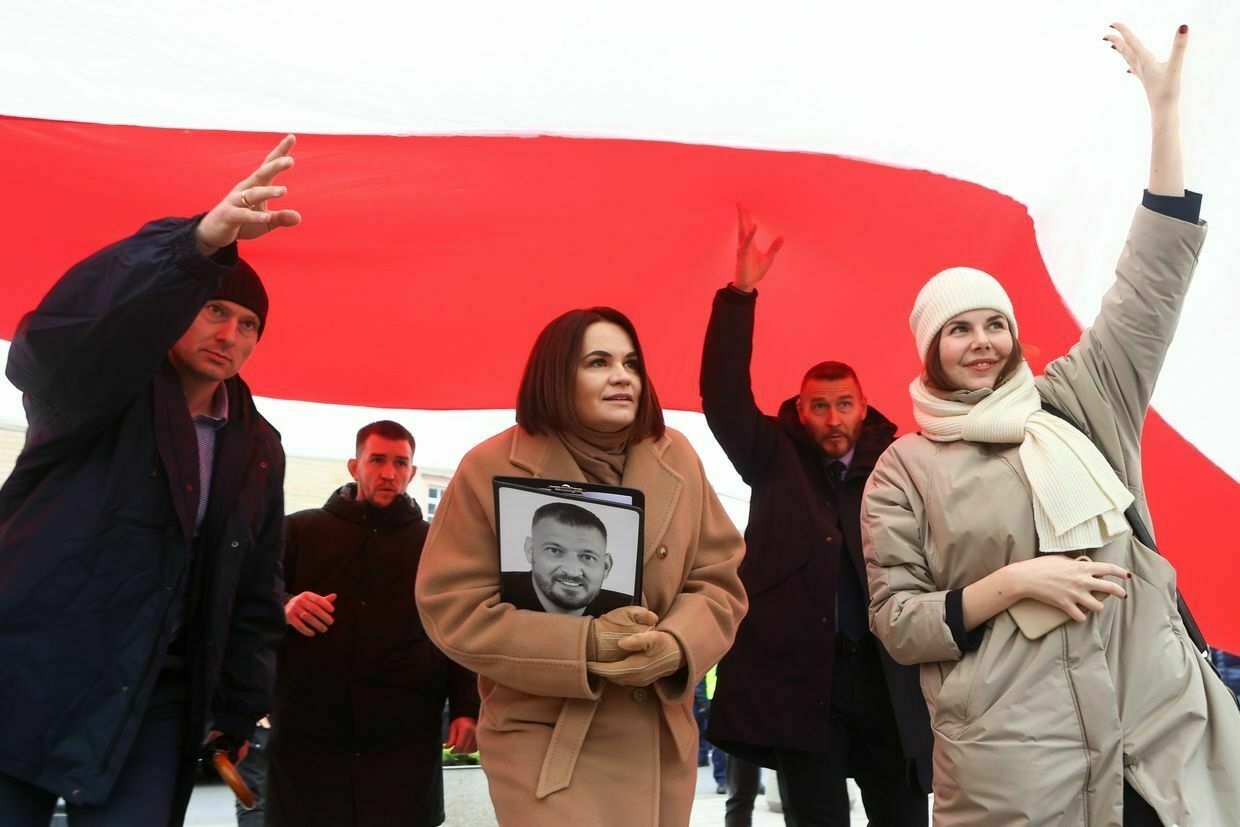
There were no credible international observation teams monitoring the voting, as the Organization for Security and Cooperation in Europe (OSCE) received an invitation only 10 days prior to the voting, rendering any effective observation impossible.
The head of EU diplomacy, Kaja Kallas, and the EU Commissioner for Enlargement, Marta Kos, issued a statement on behalf of the EU rejecting the legitimacy of Lukashenko’s election.
Western nations, including Australia, Canada, the EU, New Zealand, and the UK, decried the elections as a “sham” in a joint statement. The UK and Canada followed up with a new round of sanctions targeting three Belarusian defense enterprises and six individuals, including Central Election Commission Chairman Ihar Karpenka, law enforcement officials accused of political repression, and heads of prisons. Canada extended restrictions against 10 individuals and 12 companies.
The exiled opposition leader Sviatlana Tsikhanouskaya, who claimed to have won the previous 2020 presidential race, dismissed this latest election as a “special operation to illegally cling to power.”
“Lukashenko, propped up by (Russian dictator Vladimir) Putin, holds 9 million Belarusians hostage, drags us into war, and betrays our sovereignty,” Tsikhanouskaya wrote on X on Jan. 26.
The exiled opposition held a march in Warsaw in protest at the rigged Belarusian presidential election. The next day, the Belarusian investigative committee claimed to have identified 365 participants in the march and opened in absentia criminal proceedings against them.
Meanwhile, the Kremlin welcomed Lukashenko’s contested election, declaring “Moscow takes no notice of the expected criticism of the elections in Belarus in the West.”
Lukashenko faces uncertainty after 2025 ‘election’Belarusian political analyst Artsiom Shraibman says Belarusian dictator Alexander Lukashenko is entering a “zone of uncertainty” as he faces turning points in his relations with Russia and the need to resolve the transition of power amid an ongoing domestic political crisis.
Dependent on Russian subsidies and having no room to improve relations with the West, Lukashenko can maintain the current status quo as Moscow’s ally while the active phase of war continues,” Shraibman says.
“Putin is interested in a stable pro-Russian authoritarian Belarus, he will keep it that way,” he told the Kyiv Independent. “The spending on supporting Lukashenko can be categorized as a military expenditure for the Russian government, so it is not something they will try to save money on.”
But depending on how any temporary or long-term settlement of the war affects Russia, Lukashenko might face two “equally unpleasant extremes:” Moscow switching its imperial appetites to Belarus, or losing interest in its client state altogether, leaving Lukashenko without financial aid.
Lukashenko may seek dialogue with the United States, potentially releasing the remaining prisoners with U.S. ties. However, Shraibman notes that Lukashenko has little to offer to attract Western interest, given his “peripheral role” in resolving the war.
Repression in Belarus, which has accelerated in the past few months, may decrease in the absence of election campaigns in the near term, but will remain sufficient to maintain a chokehold on society. While the individual fates of some political prisoners could be decided with pardons, Shraibman does not foresee and large-scale political “thaw,” especially not in light of another fundamental issue — the possible transition of power.
Lukashenko has long hinted that he might give up power, but has repeatedly backtracked. Lukashenko took his first real step to standing down, Shraibman argues, in 2022 when the dictator introduced the All-Belarus People's Assembly, an extra-governmental body, and made himself its head. So far it has no real powers, but it is effectively an institutional bolt hole to which Lukashenko might retreat after giving up the presidency.
“He is thinking about (the transition of power) and preparing for it, but this constitutional framework does not place any deadlines on him,” Shraibman explains. At least until 2035, according to the Belarusian constitution, he can hold both positions: the presidency, and the head of the assembly.”
According to the analyst, another action that might indicate that Lukashenko is preparing to hand over the reins of power would be the selection and cultivation of a successor.
“But until we see some already high-profile official gets catapulted up the nomenclature ladder, and starts to be painted as a future leader, the only other reliable indicator of the chances of a transition of power is the state of (Lukashenko’s) health.”
Hungary blocks joint EU statement condemning elections in Belarus, RFE/RL reports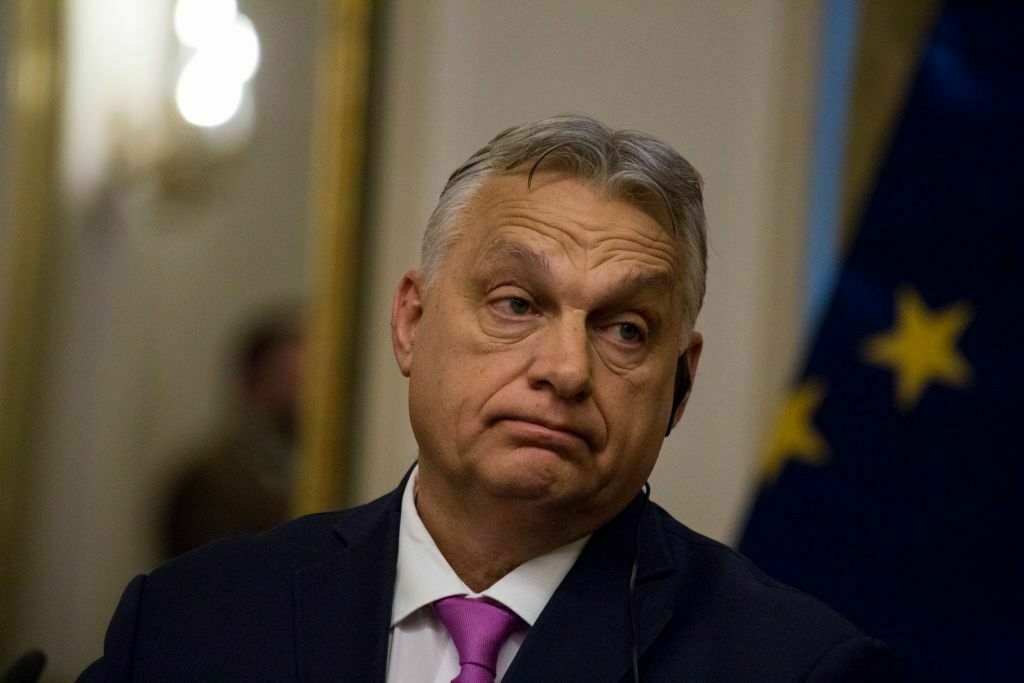
Hungarian Prime Minister Viktor Orban listens to Slovakian Prime Minister Robert Fico speak during the joint press conference in the Mirror Hall of the Slovak Governmental Office on Jan. 21, 2025 in Bratislava, Slovakia. (Zuzana Gogova/Getty Images) Hungary refused to sign a joint EU members statement rejecting the presidential election in Belarus, sources told U.S. government-funded broadcaster Radio Free Europe/ Radio Liberty (RFE/RL) in Brussels.
Failing to achieve unilateral support from all 27 members of the bloc, the head of EU diplomacy, Kaja Kallas, issued her own statement declaring that the Jan. 26 .” In particular, Kallas criticized the late invitation sent to observers from the Organization for Security and Cooperation in Europe, which prevented the proper monitoring of critical stages of the electoral campaign. She also called for the release of all political prisoners in Belarus.
Initially, both Hungary and Slovakia refused to sign the draft EU joint statement, which referred to the elections in Belarus as “undemocratic.” RFE/RL said the draft statement also cited a “relentless and unprecedented level of repression” that “has deprived the electoral process of any legitimacy.”
Representatives of Slovakia later agreed to sign, but Hungary, led by Russia-leaning Prime Minister Viktor Orban, could not be persuaded.
Hungary has also consistently resisted stricter sanctions against Russia and Belarus, as well as increased European support for Ukraine. Hungarian Foreign Affairs Minister Péter Szijjártó was the only top-ranking European official since the fraudulent 2020 elections and subsequent crackdown on dissent.
15 political prisoners released on eve of sham elections in BelarusBelarusian dictator Alexander Lukashenko released 15 more political prisoners ahead of the country’s sham presidential elections, rigged to ensure the Belarusian leader was elected for a seventh consecutive term.
In the ten rounds of “pardons” that the Lukashenko regime initiated in July 2024 ahead of the Jan. 26 presidential elections, 293 political prisoners were released from custody. Despite the releases, the crackdown on dissent in Belarus continues, and some 1,250 individuals remain behind bars on politically motivated grounds.
According to Lukashenko’s press office, eight of the released prisoners were convicted of “crimes of extremism” – a charge frequently brought up against political opponents since the fraudulent 2020 presidential elections.
The other seven released had been found guilty of drug-related crimes.
The announcement of the pardons, published on Jan. 24, two days prior to the elections, did not give the names of those being released but said that five men and three women were among pardoned political prisoners. Five reportedly have children, and one woman is pregnant. Lukashenko’s press office again presented the pardons as “demonstrations of mercy.”
Exiled opposition leader Sviatlana Tsikhanouskaya in a Reuters interview published earlier accused Lukashenko of “playing games” with political prisoners. Belarusian political analysts consider the pardons to be part of Lukashenko’s strategy to revive relations with the West, which were ruptured after Lukashenko’s brutal crackdown on civil society in the aftermath of the 2020 elections and after he supported Russia’s full-scale invasion of Ukraine.
Since the 2020 election, over 60,000 Belarusian citizens have been detained for political reasons, and the count continues to rise, according to the Minsk-based human rights group Viasna.
Lukashenko frees 23 more Belarusian political prisonersNearly 1,300 prisoners remain behind bars in Belarus, Viasna Human Rights Center reported.The Kyiv IndependentKateryna Denisova
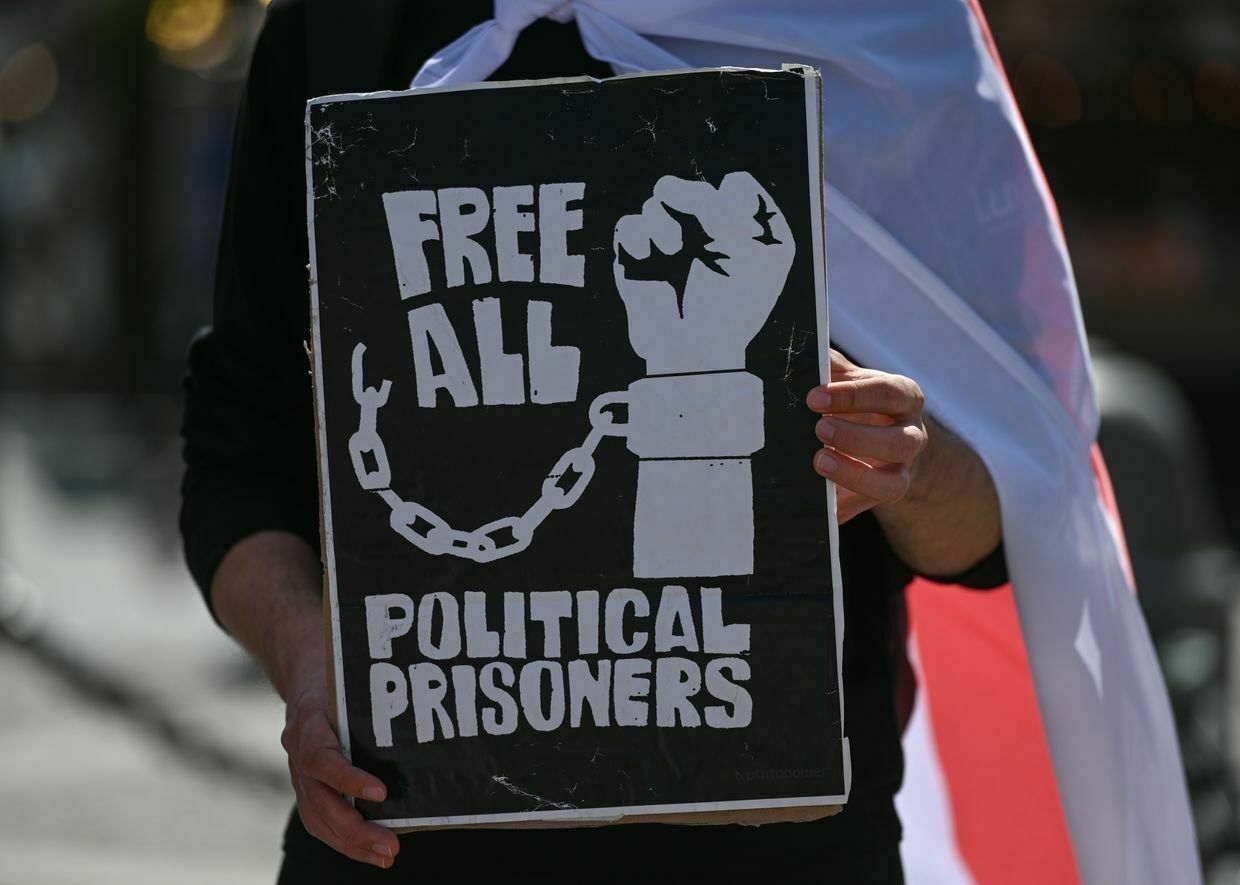
Belarus releases detained US citizen on election day, Washington saysBelarus has “unilaterally released” a detained U.S. citizen, U.S. Secretary of State Marco Rubio announced on Jan. 26 — the main day of voting in the sham Belarusian presidential election.
The alleged release follows ten rounds of prisoner “pardons” by Belarusian dictator Alexander Lukashenko, which started in July 2024 in the run up to the 2025 presidential elections. The pardons have been dismissed as window-dressing by exiled Lukashenko opponents: while 293 prisoners have been released, the number of political prisoners remains firmly fixed at 1,250 individuals in custody because political arrests are continuing in Belarus.
Without providing details of the release, Rubio claimed in a post on X that U.S. citizen Anastasia Nuhfer was now free.. It remains unclear how the release was organized and if any concessions were made to achieve it.
Speaking at a press conference on election day, Lukashenko claimed that by releasing political prisoners, he was not seeking to repair relations with the West. However, he also claimed to be in direct negotiations with “the United States and others” on the matter of political prisoners.
The U.S. State Department later confirmed to the Associated Press that Nuhfer had been detained in early December 2024. Former top-ranking Belarusian diplomats anonymously told the AP that the woman was detained in connection with 2020 protests and released “as a gesture of goodwill.”
Nuhfer has no previously known public profile and Belarusian human rights advocates have no record of such a prisoner. However, activists note that their political prisoner records are incomplete, and the real number of unjustly imprisoned is much higher, as authorities harass the relatives of the detained to prevent them from reporting detentions to human rights watchdogs.
In the week before the election, Belarusian propaganda aired a series of “interviews” with journalists of U.S.-funded broadcaster RFE/RL, including a dual U.S.-Belarusian citizen Yuras Ziankovich – a move that was regarded as a Belarusian opening bargaining offer for the incoming administration. None of the journalists have been reported as being among the released to date.
According to the Minsk-based Viasna Human Rights Center, at least 36 foreign citizens remain jailed in Belarus on politically motivated grounds.
In total, at least 75 foreigners have been subjected to persecution since 2020 in Belarus.
Belarus Weekly — 2024 in review: Drone incursions, deepening alliance with Russia, totalitarianismIn 2024, Belarus, under dictator Alexander Lukashenko, continued to descend into totalitarianism, imprisoning people at will and providing full-fledged support to Russia in its brutal all-out war. Lukashenko signed a number of bilateral treaties with Russia’s Vladimir Putin, helping him facilitate…The Kyiv IndependentMaria Yeryoma
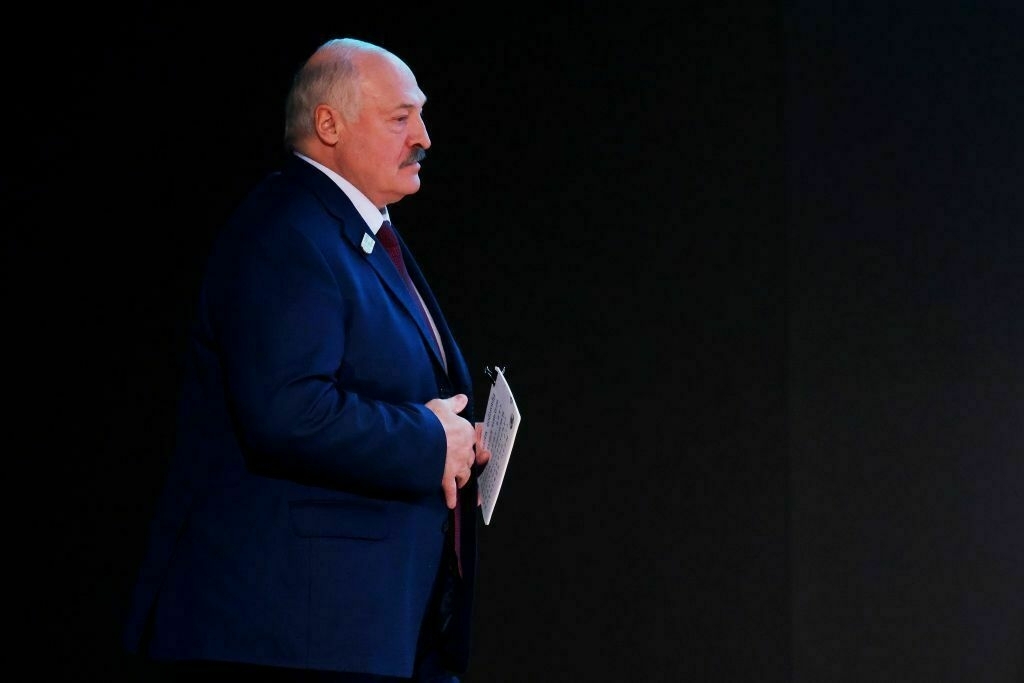
Ukrainian detained in Slovakia over alleged coup plot, media reports
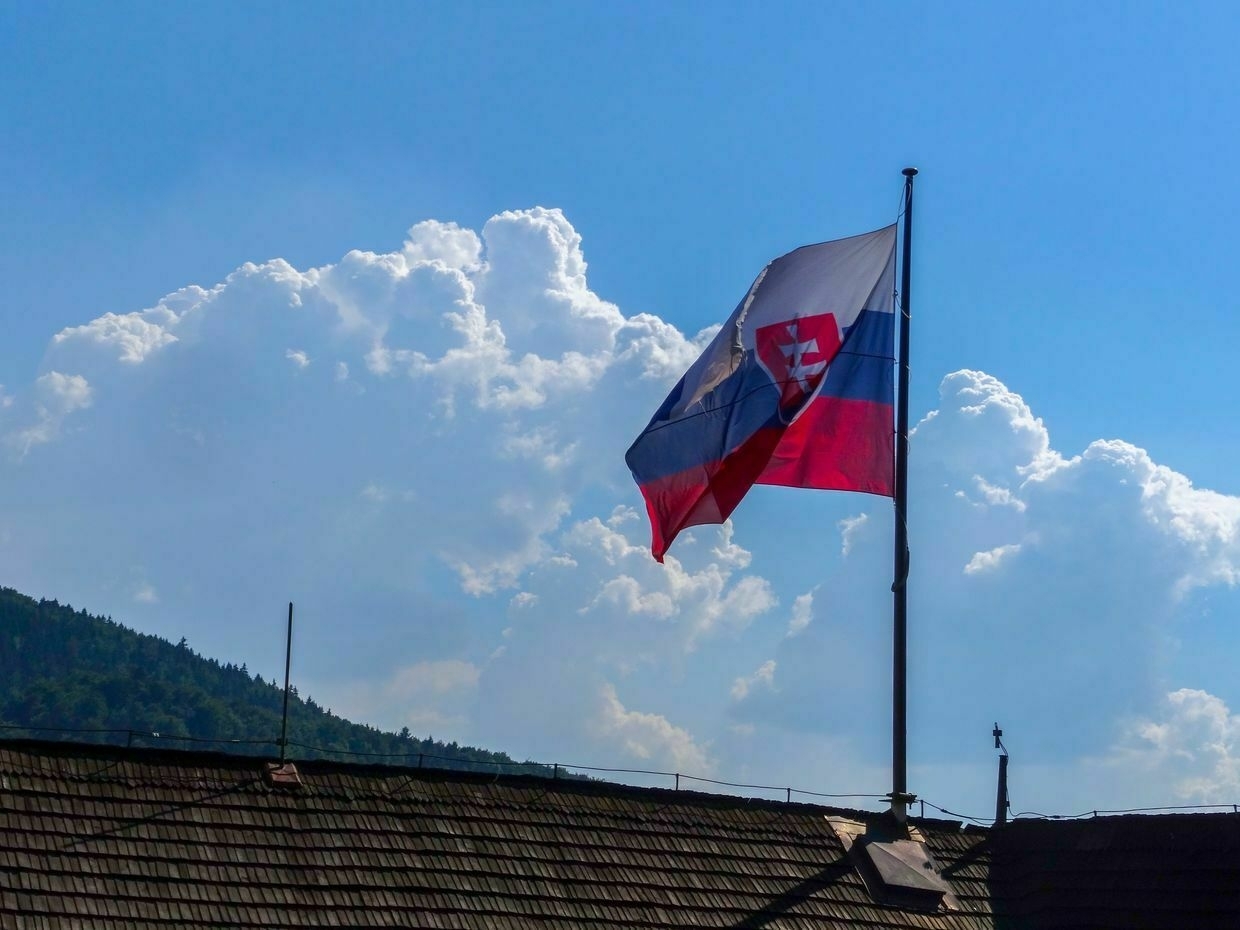
The police in Slovakia detained a Ukrainian citizen on Jan. 30 suspected of preparing a coup in the country, Slovak media Aktuality reported.
The Ukrainian is being held in the border police office ahead of his deportation to Ukraine, according to Jana Mashkarova, the head of the Slovak police. She did not specify when the Ukrainian could be deported.The news comes as relations between Kyiv and Bratislava have become increasingly tense this month. Slovak Prime Minister Robert Fico, who maintains friendly ties with Russia, recently called President Volodymyr Zelensky an “enemy” of Slovakia, while Ukraine’s Foreign Ministry called Fico “the Kremlin’s mouthpiece” in response.
Ukraine’s Foreign Ministry told Babel media outlet that the Ukrainian, born in 1966, is accused of “threatening the national security” of Slovakia.
The embassy has established contact with the detainee and his family, the ministry said.
Slovak opposition lawmaker Juraj Krupa suggested that the case may be trumped-up. If the detainee’s intentions to organize a coup in Slovakia were true, he would not have acted alone and in a “top secret manner,” the lawmaker said, as quoted by Slovak media.
Richard Gluck, chairman of Slovakia’s Internal Security Committee who is a member of Fico’s party, said that more information is expected from the country’s Interior Ministry on the suspect’s potential accomplices.
Earlier on Jan. 30, Ukraine’s Foreign Ministry summoned Slovak Ambassador Pavel Vizdal on Jan. 30 to express its rejection of Bratislava’s claims that Kyiv is interfering in Slovakia’s internal affairs.
A day before, the Slovak Foreign Ministry summoned Ukrainian Ambassador to Bratislava Myroslav Kastran after Kyiv criticized Fico for wanting to continue Russian gas supplies to Slovakia.
Days before, Fico claimed that Ukraine was connected to a cyberattack on Slovakia’s national insurance company, which Kyiv rejected.
Fico, a pro-Russian politician who has long opposed military aid to Ukraine, has escalated threats against Kyiv following the termination of Russian gas transit via Ukrainian territory on Jan. 1.
He has threatened to limit aid to Ukrainians and cut off electricity supplies amid an energy crisis brought on by Russia’s relentless attacks against Ukraine’s power grid.
Zelensky backs Slovak protests as Fico criticizes opposition, organizers“Bratislava is not Moscow, Slovakia is Europe,” President Volodymyr Zelensky wrote on X on Jan. 25, voicing support for protests against Slovakia’s government.The Kyiv IndependentOlena Goncharova
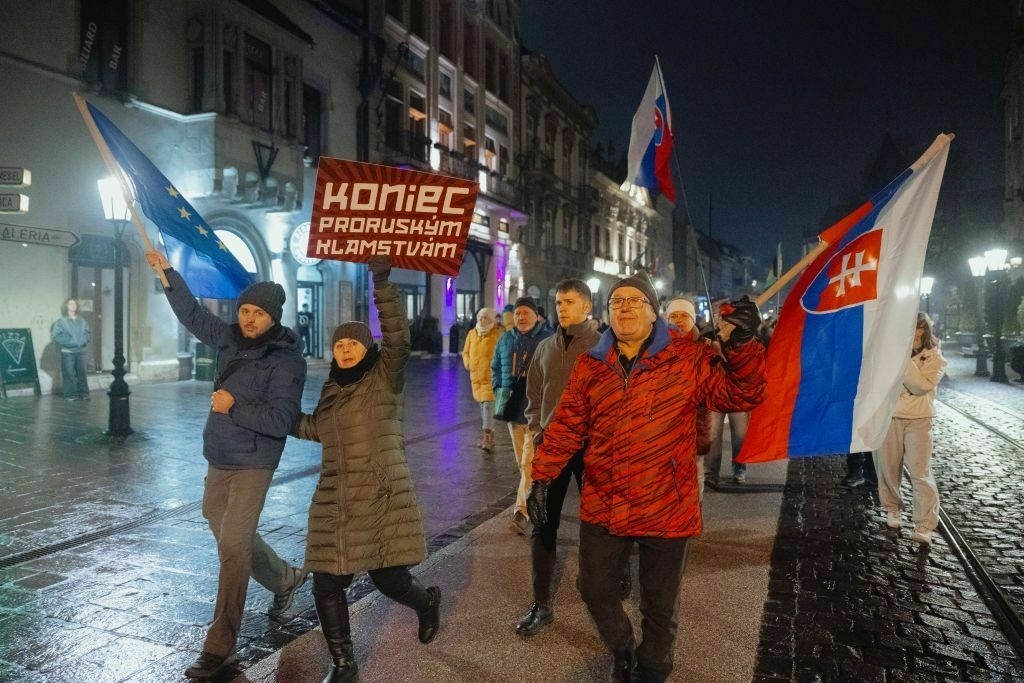
Ukraine's Foreign Ministry calls Fico 'Kremlin's mouthpiece,' summons Slovak ambassador over recent remarks
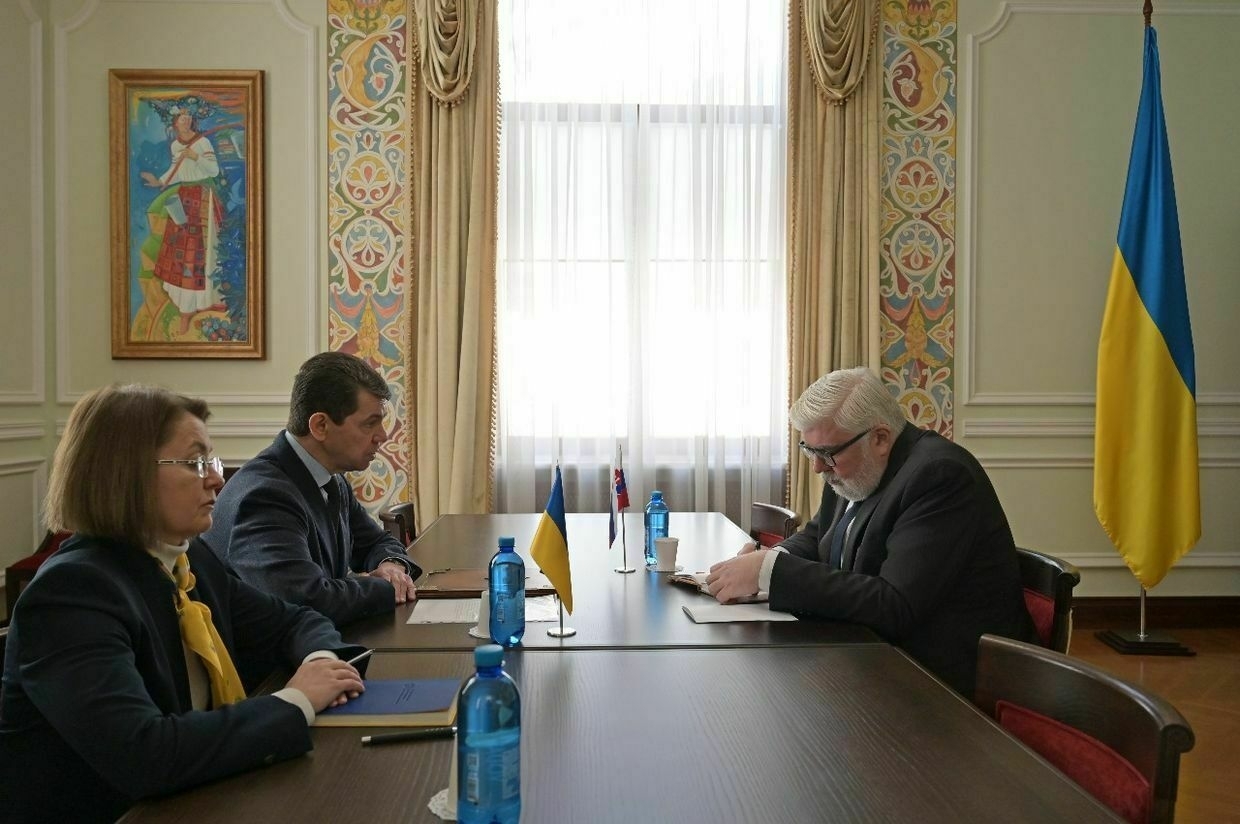
Ukraine’s Foreign Ministry summoned Slovak Ambassador Pavel Vizdal on Jan. 30 to express its rejection of Bratislava’s claims that Kyiv is interfering in Slovakia’s internal affairs.
This comes amid tensions between Slovak Prime Minister Robert Fico and Ukrainian President Volodymyr Zelensky. Fico, who maintains friendly ties with Russia, has escalated threats against Kyiv following the termination of Russian gas transit via Ukrainian territory on Jan. 1. In his remarks on Jan. 28, Fico called Zelensky “the enemy” of Slovakia.
Ukraine expressed “deep disappointment” over Fico’s statements, accusing him of acting as “the Kremlin’s mouthpiece” while ignoring Slovakia’s EU membership. The Foreign Ministry warned that this undermines relations between the two countries and damages EU unity.
Earlier on Jan. 29, the Slovak Foreign Ministry summoned Ukrainian Ambassador Myroslav Kastran, delivering a “strong protest” against what it called Ukrainian interference in Slovakia’s internal affairs.
Just days before, Zelensky voiced support for protests against Fico’s government, writing on X, “Bratislava is not Moscow, Slovakia is Europe."
The protests, which kicked off on Jan. 24 under the slogan “Slovakia is Europe,” saw around 100,000 people across 30 cities demanding an end to Fico’s leadership.
Fico has earlier threatened to limit aid to Ukrainians and cut electricity supplies amid an energy crisis caused by Russian attacks on Ukraine’s power grid.
The prime minister’s friendly stance toward the Kremlin, including a controversial meeting with Russian President Vladimir Putin in December, has drawn condemnation from European leaders.
Georgescu has ‘masters in Moscow’ — Kyiv slams Romanian politician over comments on Ukraine’s partitionGeorgescu’s comments, made in a Jan. 29 interview, were dismissed by Ukraine as revisionist and contrary to international norms, the U.N. Charter, and democratic values.The Kyiv IndependentTim Zadorozhnyy
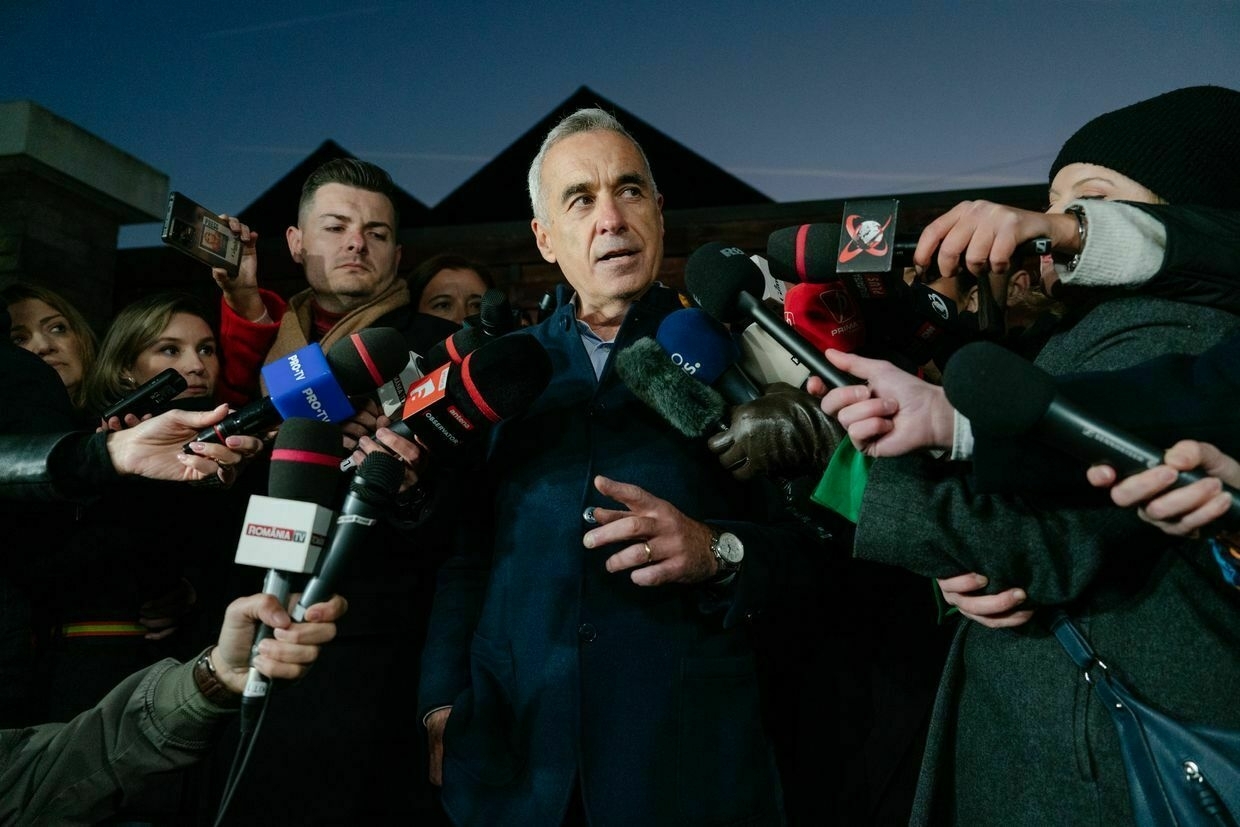
EU debates restarting Russian gas purchases as part of Ukraine peace deal, FT reports
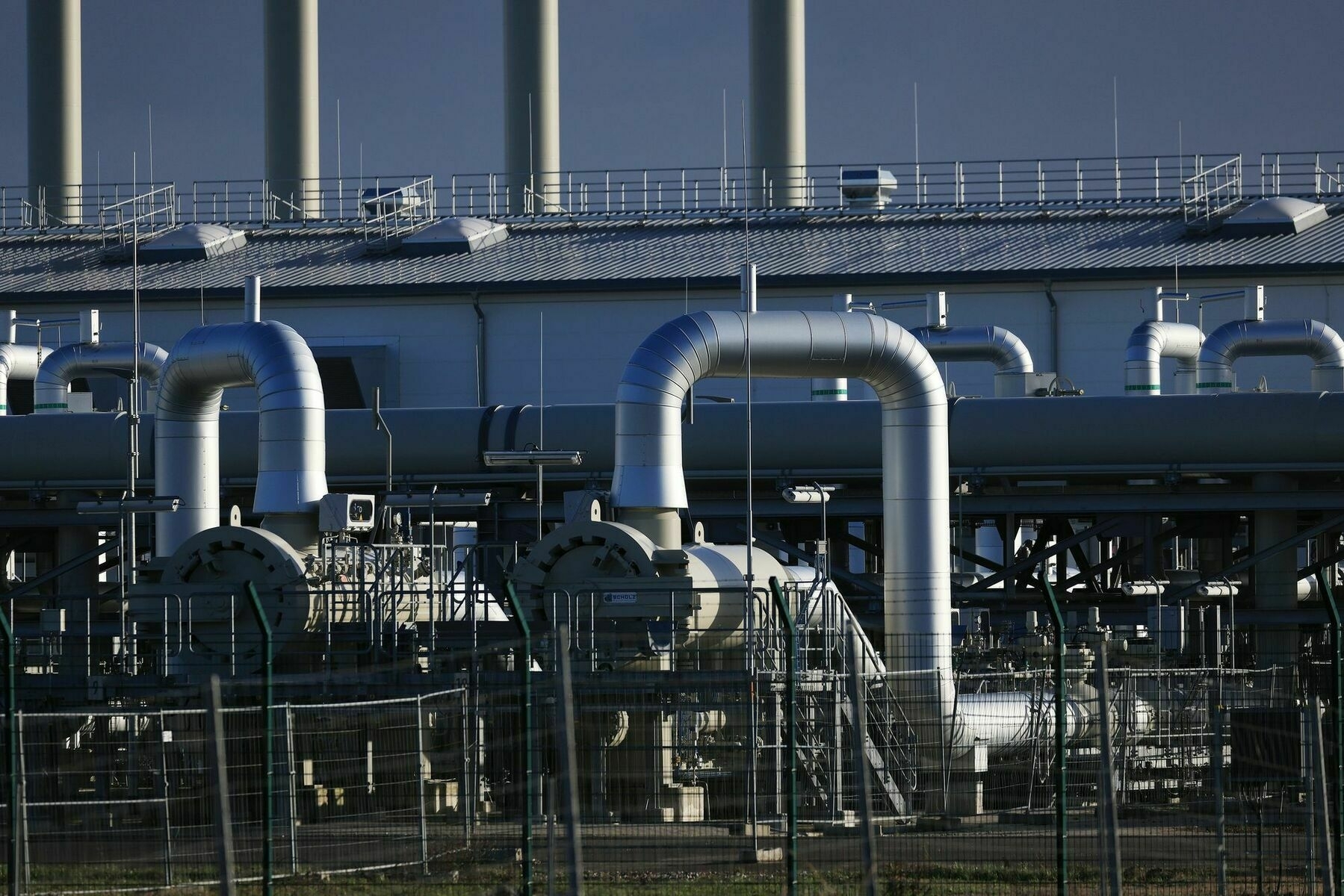
EU officials are discussing the option of resuming purchases of Russian pipeline gas as part of a potential settlement of the Russia-Ukraine war, the Financial Times reported on Jan. 30, citing undisclosed sources.
The proposal’s advocates, including Hungarian and German officials, argue that the move could give both Russia and Europe incentives to maintain a peace deal while stabilizing the continent’s energy market, the outlet wrote.
The news comes almost a month after Ukraine halted the transit of Russian gas through its territory to the EU, putting an end to a scheme dating back to Soviet times. The decision has sparked protests from some EU members — Slovakia and Hungary — who continue to rely on Russian gas despite the bloc’s efforts at diversifying supplies.
According to the FT, the proposal to resume Russian gas purchases has faced backlash from Ukraine’s chief allies within the EU and officials from some “eastern” member states.
While most of the Russian pipeline gas flow to Europe came to a halt, European countries continue to buy Russian liquified natural gas (LNG). The TurkStream line remains the last operational pipeline connection funneling Russian gas to the EU.
Earlier this week, Hungary announced it had received “requested guarantees” from the EU on securing energy transit to European countries after threatening to veto sanctions against Moscow. Shortly after, Reuters reported that the European Commission will continue leading talks on gas supplies with Ukraine, Slovakia, and Hungary.
Before the full-scale war, Russian pipeline gas represented roughly 40% of the EU’s overall purchases, with Germany being the chief buyer.
Fossil fuel exports represent a key portion of Russia’s state revenue and help fuel Moscow’s all-out war against Ukraine, leading to calls among Kyiv’s partners to phase out the purchases completely.
The EU cut all Russian coal imports, most Russian oil imports, and over two-thirds of Russian gas imports to the EU, a Commission spokesperson said earlier in January. The EU aims to eliminate all Russian fossil fuels from its market by 2027.
U.S. President Donald Trump, who pledged to broker a peace settlement in Ukraine, urged Europe to purchase more American LNG and called for increasing oil production to push down the prices and stifle Russia’s revenues, thus forcing it to the negotiating table.
Ukraine war latest: Ukrainian drones hit Lukoil oil refinery, missile arsenal in Russia, sources claimKey developments on Jan. 29: * Ukrainian drones hit Russian missile arsenal, oil pumping station in Tver Oblast, SBU source claims * ‘4 out of 4’ — Russian Lukoil oil refinery struck by multiple Ukrainian drones, military intelligence source claims * Russian assault intensity declines, focuses o…The Kyiv IndependentThe Kyiv Independent news desk
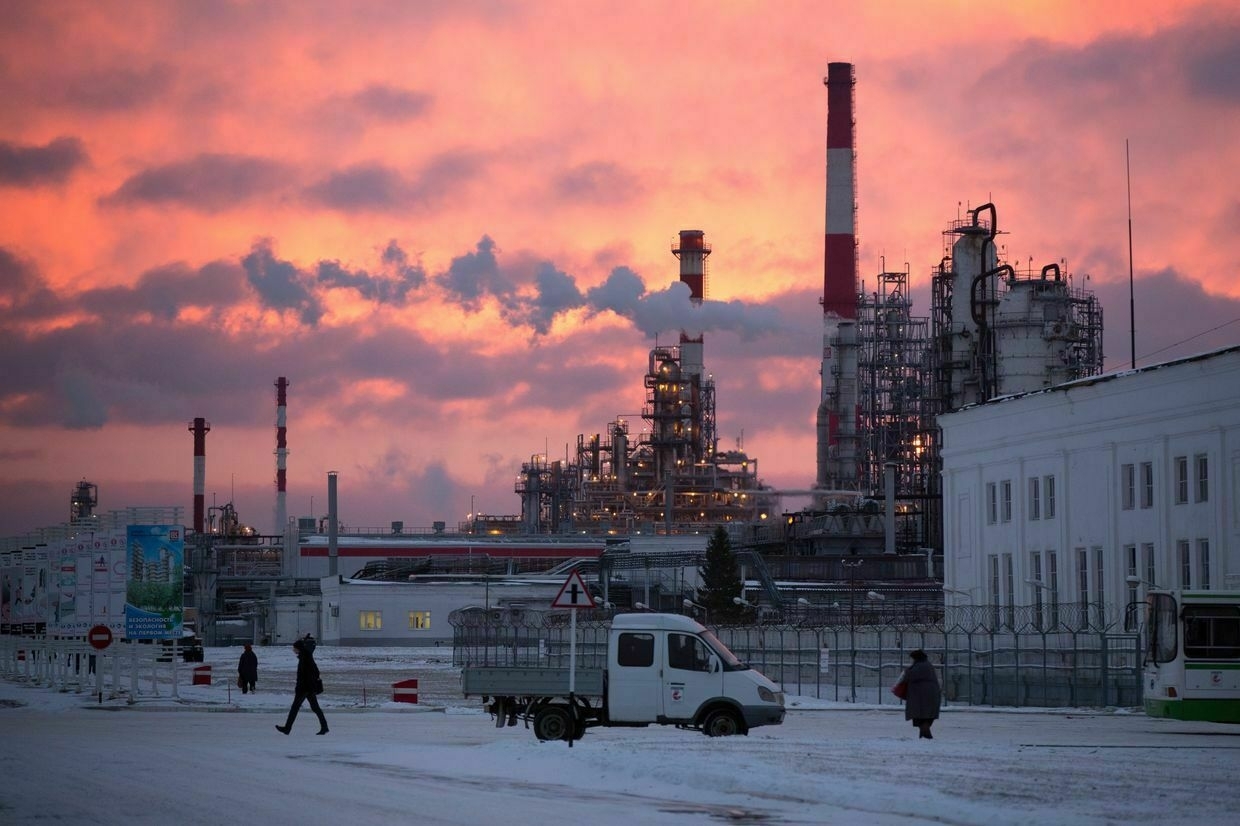
Georgia withdraws from PACE, calls demands for new elections 'blackmail'
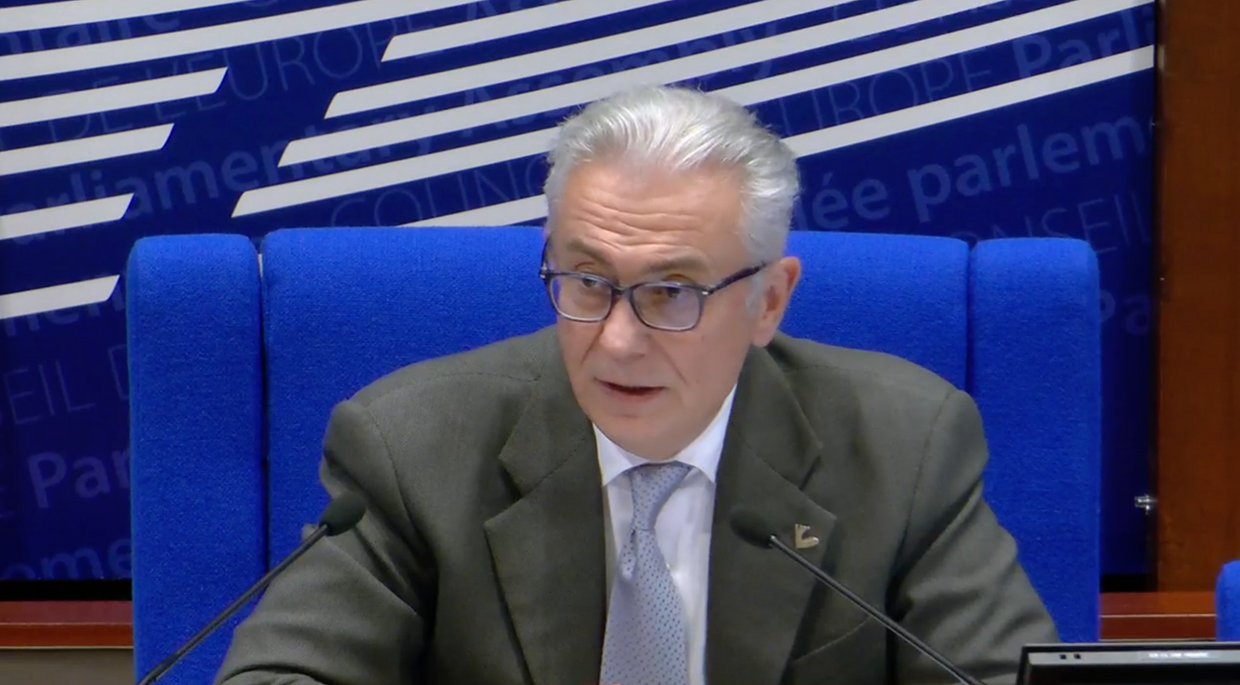
Georgia withdrew its delegation from the Parliamentary Assembly of the Council of Europe (PACE) on Jan. 29 after the Assembly passed a resolution calling for Tbilisi to hold new parliamentary elections.
The country’s fall 2024 parliamentary elections sparked mass protests and political turmoil, with the pro-Russian Georgian Dream party declaring a sweeping victory as opposition groups and international monitors pointed to evidence of widespread fraud.
PACE on Jan. 29 adopted a resolution calling on the Georgian government to hold “new genuinely democratic parliamentary elections,” Assembly President Theodoros Rousopoulos said in a statement. The resolution stipulated that the credentials of the Georgian delegates would be reviewed and potentially revoked if the government did not take these measures.
PACE had previously ratified the Georgian delegation’s credentials, but suspended some of the members' rights due to evidence of “democratic backsliding.” The new resolution applies conditions for the future ratification of Georgia’s credentials.
Besides new elections, the resolution also calls for the release of all political prisoners and immediate steps to resume the process of Georgia’s integration into the European Union.
In response to the vote, Georgia announced the withdrawal of its delegates from PACE.
“We believe that as long as the completely unjust and unfounded blackmail against the government elected by the Georgian people continues … the participation of our parliamentary delegation in the Assembly has no meaning or justification,” Teia Tsulukiani, the head of the Georgian parliamentary delegation, said in a statement to reporters.
Georgia remains a member of the Council of Europe but will not resume work with PACE until “the blackmail ends” and the Assembly “changes its unfair attitude towards the Georgian state,” Tsulukiani said.
PACE President Rousopoulos said he regretted the delegation’s decision.
“I regret the decision of the Georgian delegation to withdraw from the Parliamentary Assembly of the Council of Europe following the Assembly’s vote tonight to ratify the delegation’s credentials, subject to conditions,” Rousopoulos said.
“This jeopardizes the dialogue that could help to advance democratic standards in Georgia."
Under the leadership of the ruling Georgian Dream party, founded by oligarch Bidzina Ivanishvili, Tbilisi has moved closer to Russia and stalled its accession to the EU.
Prime Minister Irakli Kobakhidze announced in November 2024 that Georgia’s EU integration could be delayed until 2028. The statement kicked off a fresh round of demonstrations across the country.
Georgia has incurred sanctions, including visa restrictions, from the U.S., E.U., and Ukraine due to its apparent anti-democratic trajectory.
After Lukashenko’s latest sham election, exiled Belarusians reflect on their lost revolutionBelarusian dictator Alexander Lukashenko declared himself the victor in the country’s latest so-called presidential elections on Jan. 26, in which no political opposition was allowed to take part. The country’s authorities claim Lukashenko won 86.82% of the vote, securing a seventh consecutive term…The Kyiv IndependentKate Tsurkan
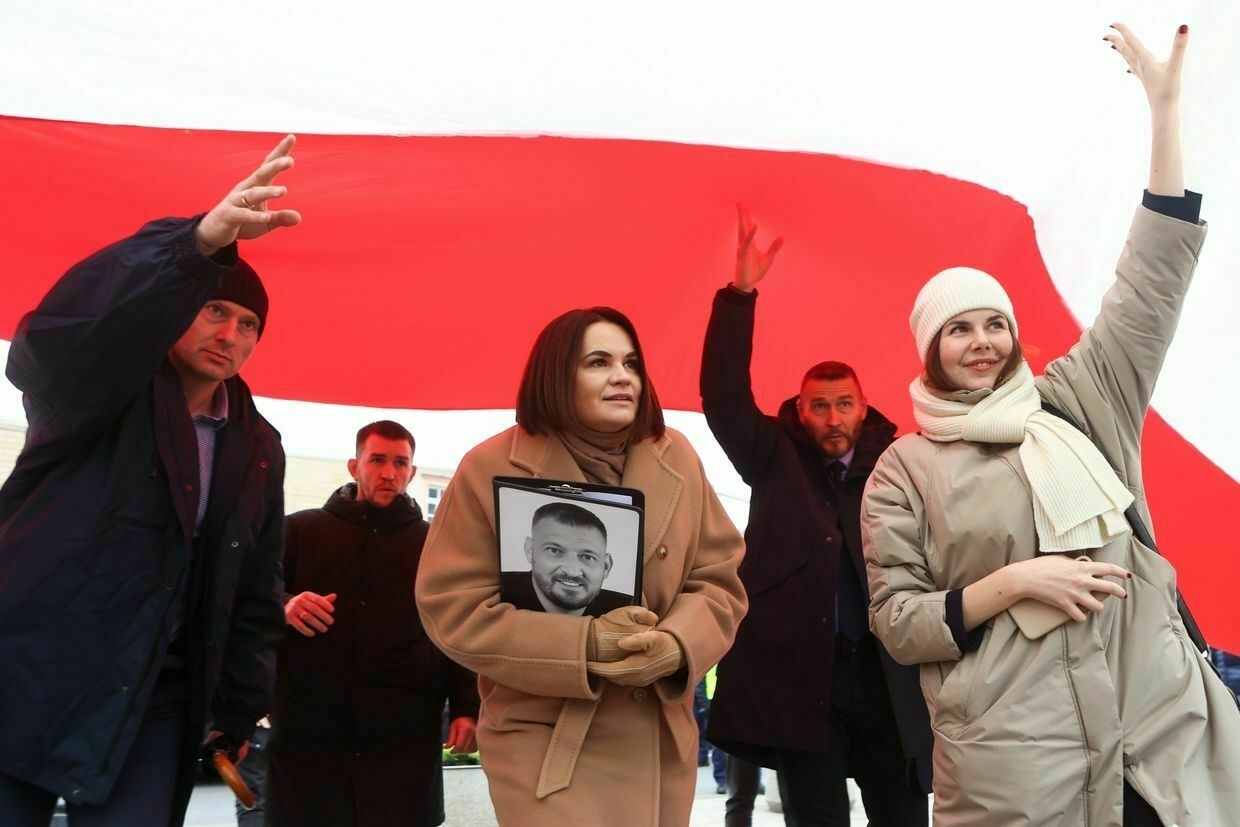
Slovakia summons Ukrainian ambassador over Zelensky's criticism of Russian gas purchases
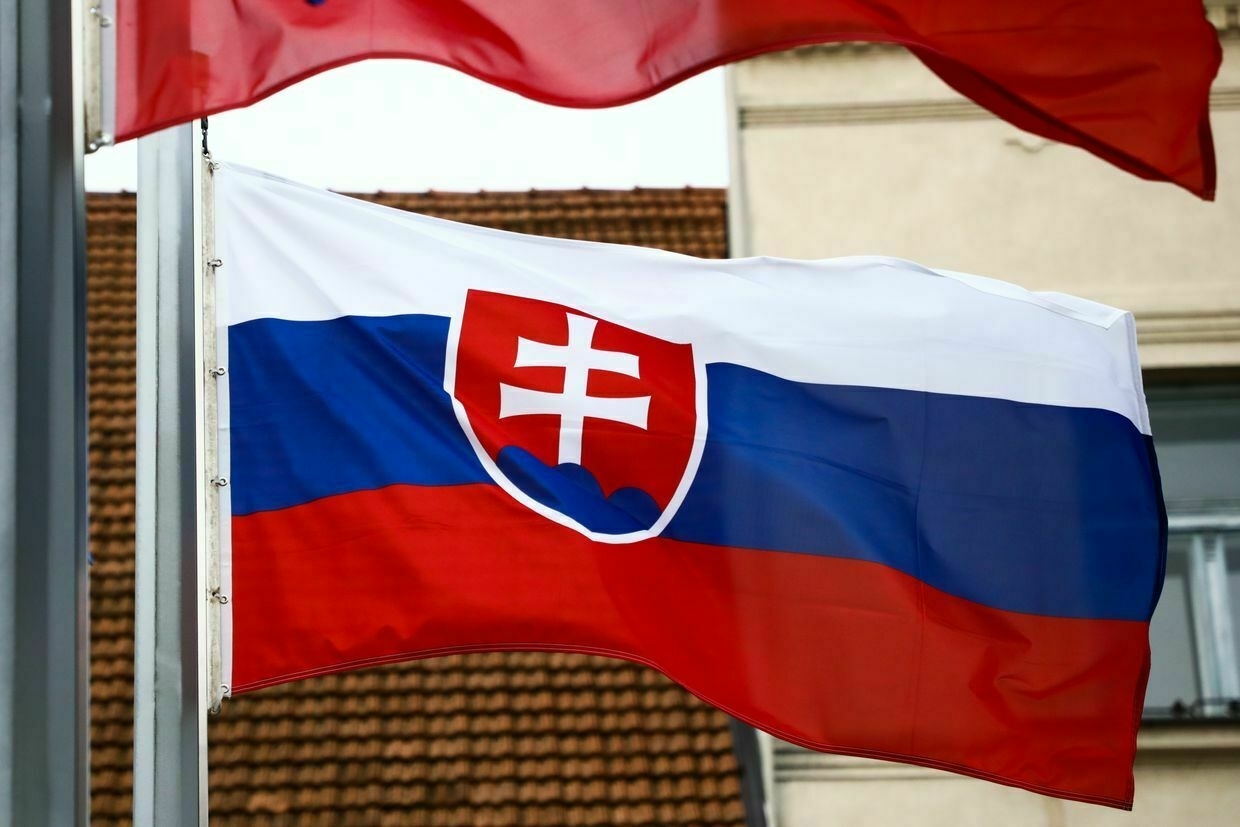
The Slovak Foreign Ministry summoned Ukrainian Ambassador to Bratislava Myroslav Kastran on Jan. 29 after Kyiv criticized the country’s Prime Minister Robert Fico for wanting to continue Russian gas supplies to Slovakia, it said on social media.
The move came as relations between Fico and President Volodymyr Zelensky have become increasingly tense over this month.
In his recent remarks on Jan. 28, the Slovak prime minister called Zelensky “the enemy” of Slovakia.
“Many in Europe… have chosen to preserve their independence and sovereignty. But not Mr. Fico. He chooses Moscow over America and other partners who can supply his country with gas on commercial terms. This is his mistake,” Ukraine’s president said in response.
According to the ministry’s statement, the Slovak ministry delivered the Ukrainian ambassador “a strong protest” against statements by the Ukrainian side, without specifying which ones.
"(These statements) are considered interference in the internal affairs of the Slovak Republic," the ministry said.
Ukraine’s Foreign Ministry is yet to comment on this move.
Fico, a pro-Russian politician who has long opposed military aid to Ukraine, has escalated threats against Kyiv following the termination of Russian gas transit via Ukrainian territory on Jan. 1.
He has threatened to limit aid to Ukrainians and cut off electricity supplies amid an energy crisis brought on by Russia’s relentless attacks against Ukraine’s power grid.
As tensions mount, Zelensky and Fico signaled in mid-January they may hold talks.
Fico’s friendliness towards the Kremlin has sparked outrage both at home and abroad. His meeting with Russian President Vladimir Putin in Moscow in December drew condemnation from other European leaders.
Mass protests erupted in Bratislava in early January, with thousands chanting “We are not Russia."
Zelensky backs Slovak protests as Fico criticizes opposition, organizers“Bratislava is not Moscow, Slovakia is Europe,” President Volodymyr Zelensky wrote on X on Jan. 25, voicing support for protests against Slovakia’s government.The Kyiv IndependentOlena Goncharova
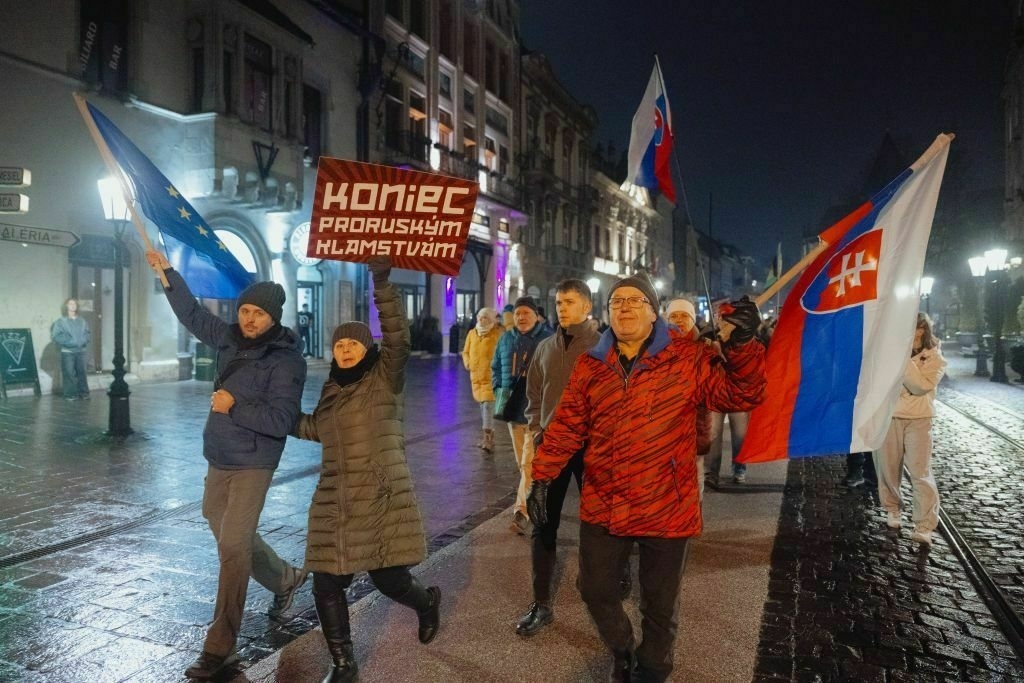
EU considering new trade regime with Ukraine, media reports
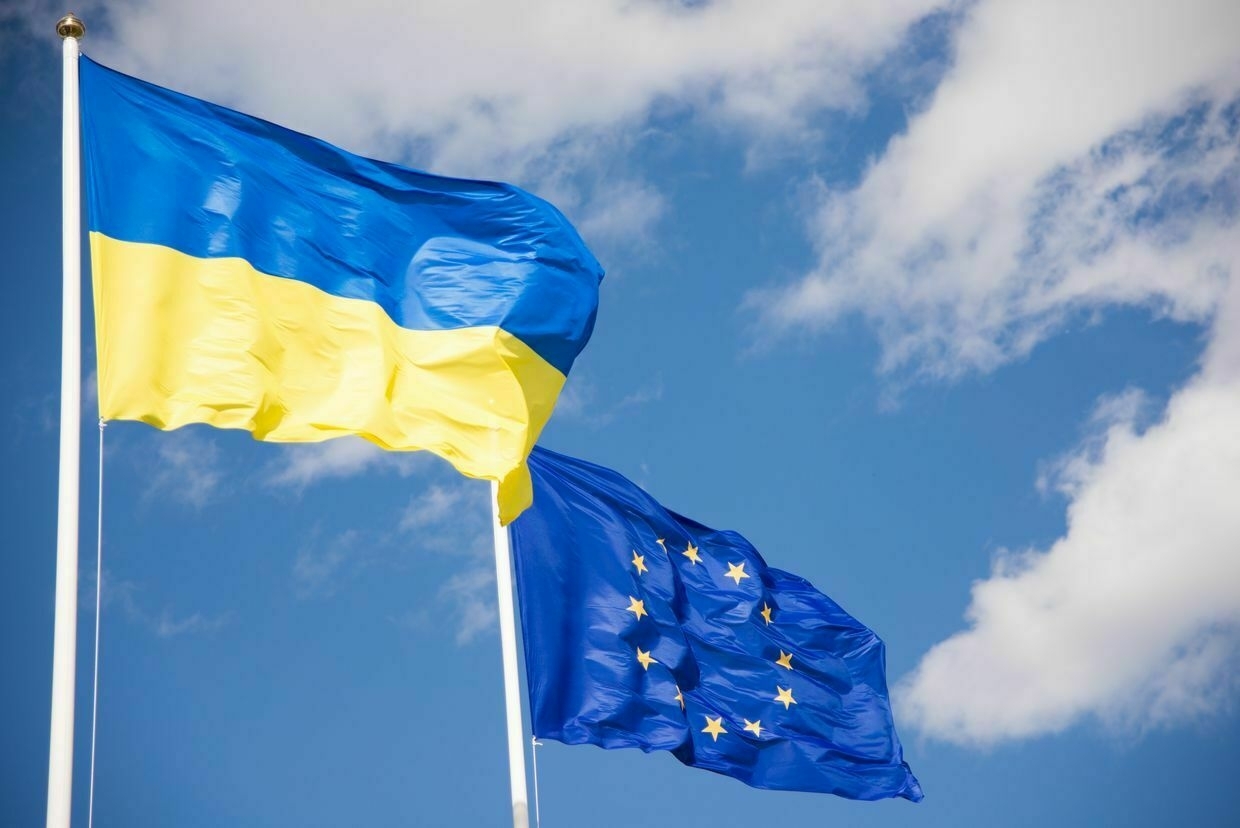
The European Union does not plan to extend the preferential trade agreement framework in its current form past its June 5 expiration date and is considering a new set of rules instead, the Polish news portal RMF24 reported on Jan. 28.
While the European Commission allegedly does not plan to reinstate pre-invasion trade rules, it is considering alternatives within the 2016 Deep and Comprehensive Free Trade Area (DCFTA) framework, including quotas for agricultural products and additional safeguards.
The EU lifted customs duties on Ukrainian agricultural products in 2022 to alleviate the country’s economy amid Russia’s full-scale invasion. This led to large-scale protests among European farmers, namely in Poland, who claimed the influx of cheaper Ukrainian products was threatening their businesses.
The newly proposed framework would establish specific export and import volumes, potentially aiding Ukraine’s integration into the EU single market while addressing concerns from member states about agricultural imports.
European Agriculture Commissioner Christophe Hansen reportedly noted widespread support among agriculture ministers for transitioning to a “more stable DCFTA agreement” instead of extending the current regime.
Preliminary technical negotiations between the EU and Ukraine have reportedly begun, with formal discussions expected soon.
The EU’s current free-trade scheme has already been updated with an automatic safeguard mechanism for sensitive sectors, such as eggs, poultry, sugar, oats, maize, hulled grains, and honey.
Poland has implemented import bans on certain Ukrainian products, such as grain, citing negative impacts on Polish agriculture.
Germany ramps up Russian LNG imports via EU ports, report saysGermany’s imports of Russian liquified natural gas (LNG) via other EU countries continue to rise despite efforts to cut off direct shipments, the Financial Times wrote on Jan. 28, citing a report by Belgian, German, and Ukrainian NGOs.The Kyiv IndependentBoldizsar Gyori
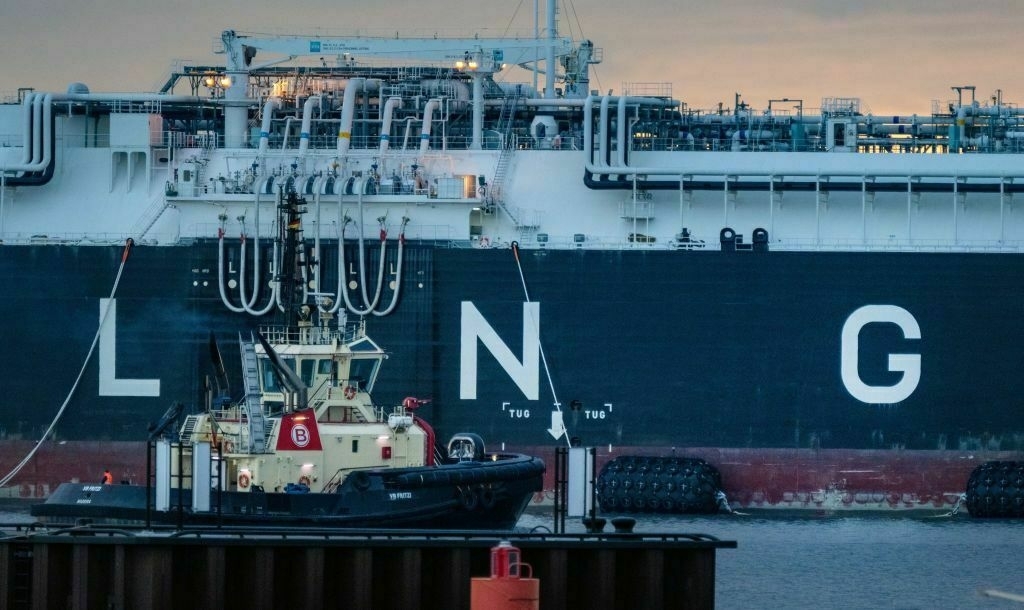
'A farce' — Foreign Ministry condemns sham election in Belarus
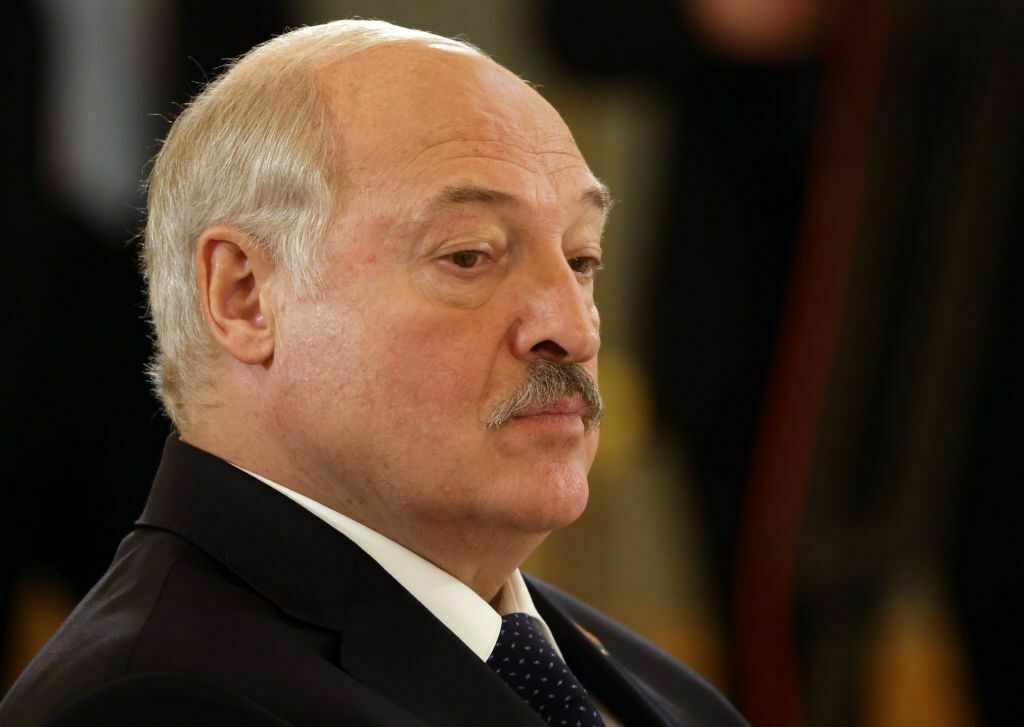
Ukraine’s Foreign Ministry condemned the recent presidential election in Belarus, calling the vote “a farce” in a statement issued Jan. 27.
Belarusian dictator Alexander Lukashenko “won” a seventh consecutive term as president on Jan. 26 in a so-called election widely denounced as neither free nor fair by the international community.
“It is difficult to call such elections fair, transparent and democratic, in particular given the political repression in Belarus, which deprived voters of any alternative choice and turned the elections themselves into a one-man political show,” the ministry’s statement read.
Elections under the repressive conditions of the Lukashenko regime “cannot be legitimate,” the ministry said.
“It is a farce.”
Lukashenko has ruled Belarus since 1994 and is Russian President Vladimir Putin’s closest ally. The Belarusian leader competed for the presidency against regime-approved candidates Sergey Syrankov, who secured 3.21% of the vote, and Oleg Gaidukevich, who received 2%.
Lukashenko was declared the winner with 86.82% of the vote, while 3.6% of ballots reportedly voted “against all."
Kaja Kallas, the EU’s chief diplomat, called the vote “a sham” and “an affront to democracy."
Belarusian opposition leader Sviatlana Tsikhanouskaya said the election was nothing more than a “special operation” by the Russia-backed regime.
Tsikhanouskaya contested the results of the country’s 2020 election, sparking mass protests after Lukashenko declared victory despite evidence of widespread fraud. The government brutally repressed the demonstrations and detained thousands of political prisoners.
The Foreign Ministry expressed solidarity with Belarusian opposition figures and encouraged them to continue to fight for an independent Belarus.
“We are convinced that a democratic and sovereign Belarus, in which the people, not one person, will determine the future, will be a factor of long-term stability in our region, and not an accomplice in Russia’s war against Ukraine,” the ministry said.
After Lukashenko’s latest sham election win, exiled Belarusians reflect on lessons learned from 2020’s lost revolutionBelarusian dictator Alexander Lukashenko declared himself the winner in the country’s so-called presidential elections, in which zero members of the country’s opposition were allowed to take part. According to the country’s authorities, Lukashenko secured 86.82% of the vote and became president for…The Kyiv IndependentKate Tsurkan
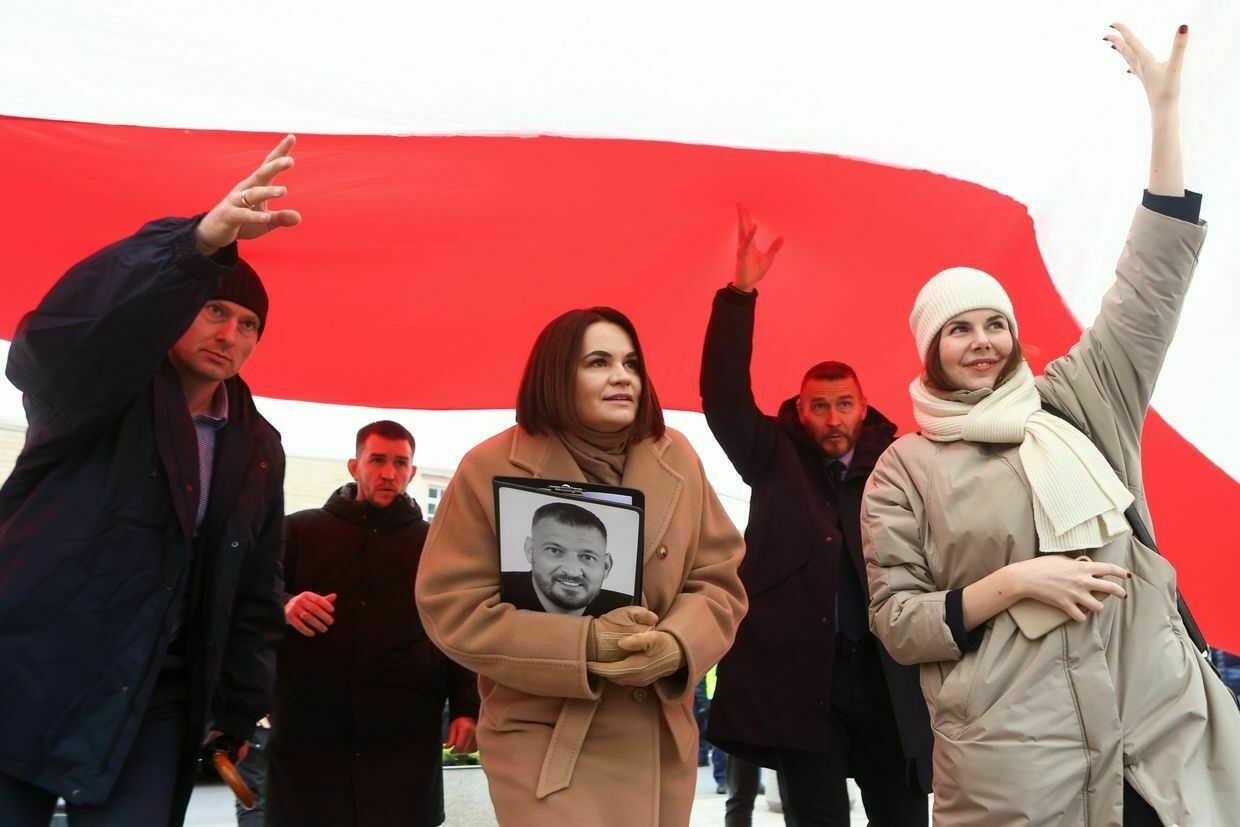
After Lukashenko's latest sham election win, exiled Belarusians reflect on lessons learned from 2020's lost revolution
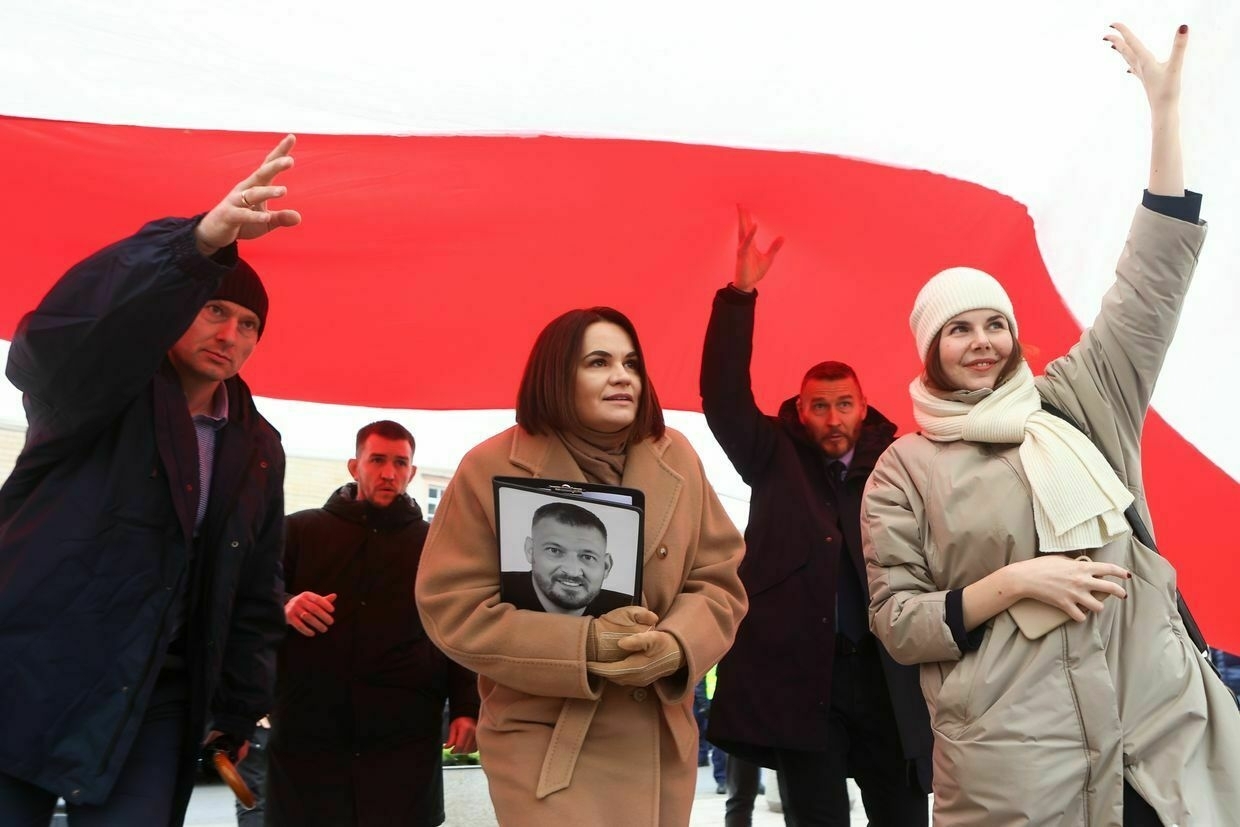
Belarusian dictator Alexander Lukashenko declared himself the winner in the country’s so-called presidential elections, in which zero members of the country’s opposition were allowed to take part.
According to the country’s authorities, Lukashenko secured 86.82% of the vote and became president for the seventh consecutive time.
Despite international condemnation and widespread opposition among Belarusians, Lukashenko’s regime has only tightened its control since the last election. Relentless crackdowns on dissent, including mass arrests, imprisonment, and torture, have been ongoing in the country for nearly five years.
Despite international condemnation and widespread opposition among Belarusians, Lukashenko’s regime has only tightened its control since the last election.
"Anyone following the situation knows it's a sham election, and for us, Lukashenko has been wholly illegitimate since 2020," Hanna Komar, a Belarusian author who has been living in exile for the past five years, told the Kyiv Independent.
Exiled opposition leader Sviatlana Tsikhanouskaya, widely recognized by election observers as the rightful winner of the 2020 presidential election, publicly condemned the latest so-called vote.
"Lukashenko, propped up by (Russian President Vladimir) Putin, holds nine million Belarusians hostage, drags us into war, and betrays our sovereignty. We will never accept him. He does not represent Belarus. The regime must end its repressions, release political prisoners, and be held accountable for its crimes," Tsikhanouskaya wrote on Jan. 26.
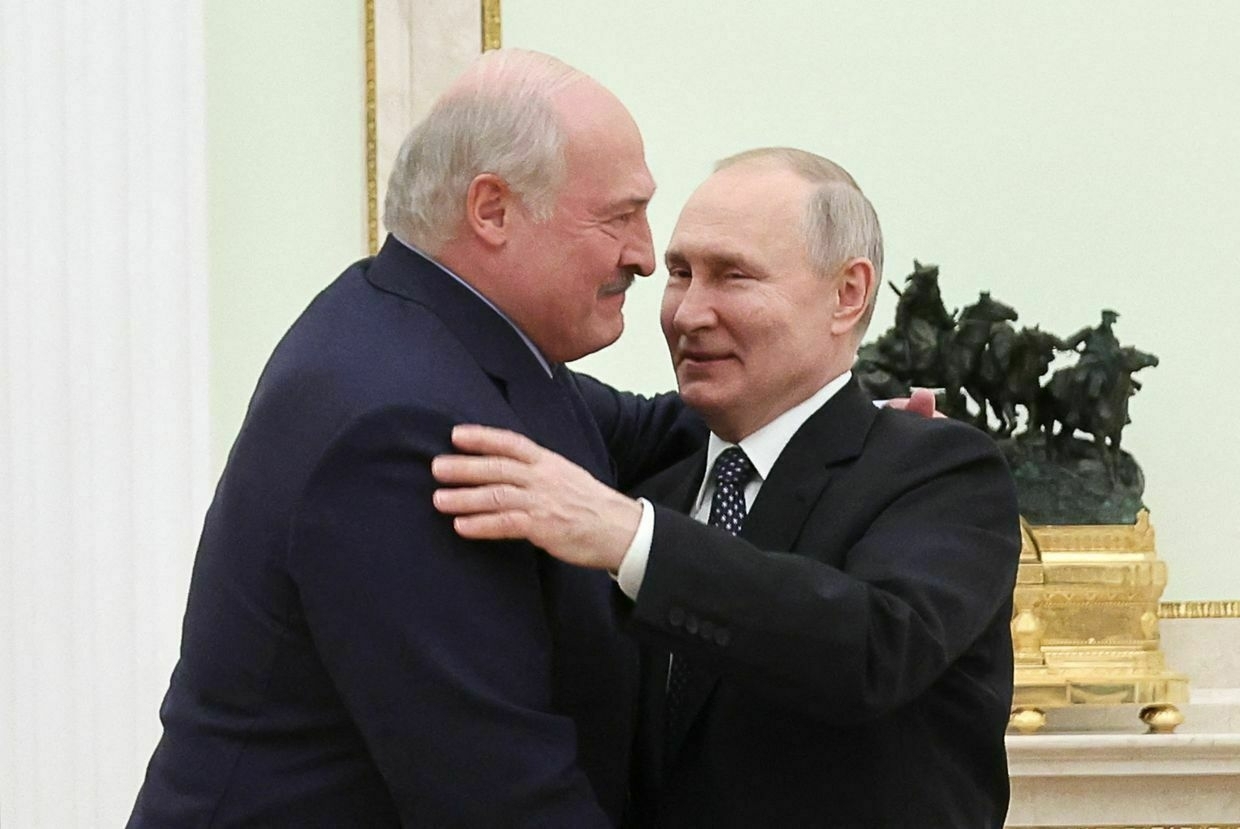
Russian President Vladimir Putin meets with Belarusian dictator Alexander Lukashenko at the Kremlin in Moscow on April 5, 2023. (Pavel Byrkin / Sputnik / AFP via Getty Images) For the more than 500,000 Belarusians who have fled the country since 2020, Lukashenko's latest "victory" serves as a painful reminder of the democratic future they fought for and ultimately failed to secure.
Yet, even in the face of despair, many try to remain hopeful, using the hard-earned lessons of that tumultuous period to strengthen their exile community and continue working toward a future democratic Belarus that they still dream of having.
‘You’ll die here’ – Belarusian political prisoners recount experiences ahead of Lukashenko’s reelectionBelarusian dictator Alexander Lukashenko, who has been in power for 30 years, is looking to reelect himself for the seventh time. In the run-up to the January 2025 presidential elections, Lukashenko has pardoned prisoners convicted of extremism, claiming that it was a “humane gesture” toward those…The Kyiv IndependentKate Tsurkan
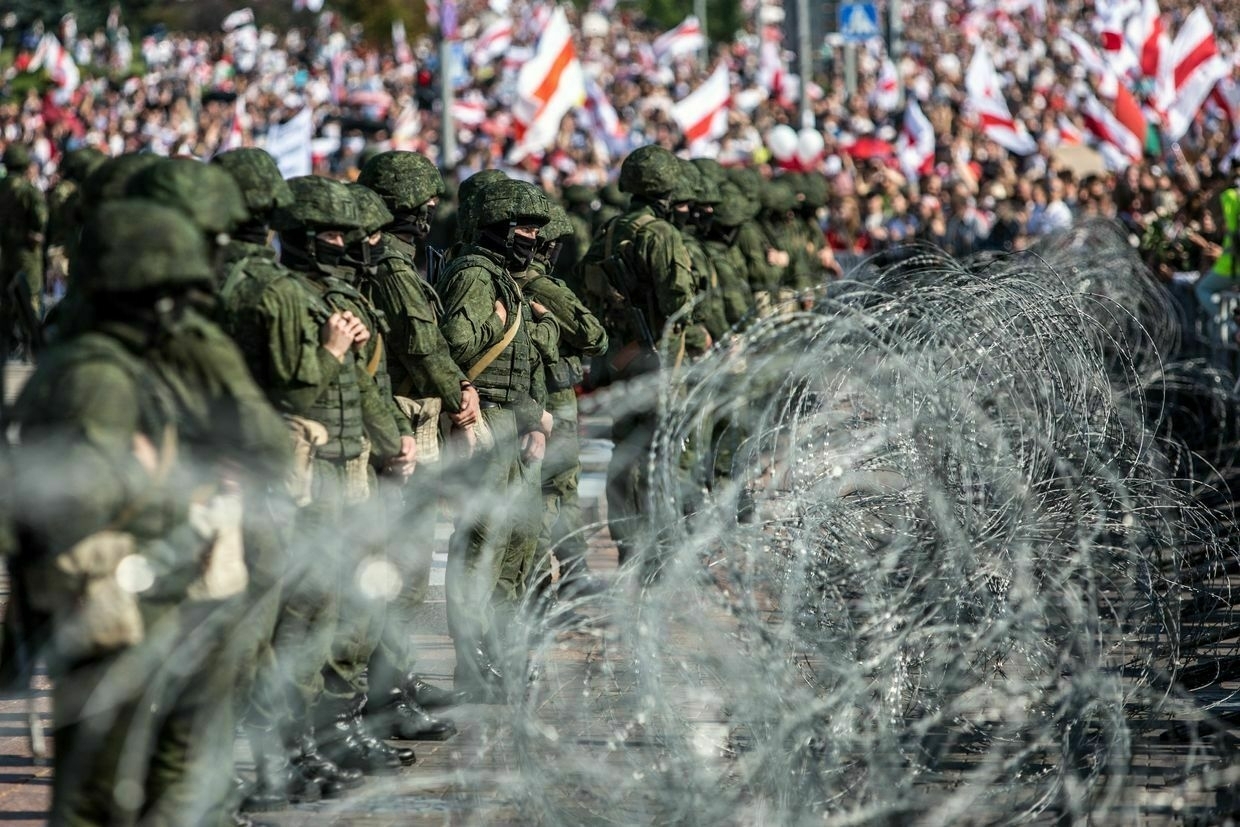
Point of no returnThe 2020 presidential election in Belarus was defined by Tsikhanouskaya's bold challenge to Alexander Lukashenko's decades-long rule. By contrast, the latest so-called election lacked any real opposition, featuring three candidates from pro-government parties and one candidate seen as a figurehead.
In the months leading up to Jan. 26, Lukashenko staged an orchestrated spectacle by pardoning and releasing dozens of political prisoners. Lukashenko framed the move as an act of goodwill toward those who had "gone astray."
However, these individuals had been imprisoned solely for exercising their democratic rights and taking part in the protests against Lukashenko's regime that began in May 2020.
As of December 2024, at least 1,265 political prisoners are known to be held in Belarusian prisons, according to the Belarusian human rights organization Viasna. In December alone, up to 150 politically motivated sentences were handed down, with Belarusians consistently denied the right to a fair trial.
"I think Lukashenko understands that Russia is waiting for the right moment to replace him. He's deeply afraid of this and is now trying to play some kind of strange game with the West. He released some political prisoners to garner a 'favorable' image, but at the same time, he hasn't stopped the repressions. It's endless," Kseniya Halubovich, an exiled film director and journalist, told the Kyiv Independent.
"I think Lukashenko understands that Russia is waiting for the right moment to replace him."
Komar was among those detained during the 2020 protests, having attended a rally organized in solidarity with opposition leader Maria Kalesnikava, who had been arrested just days prior.
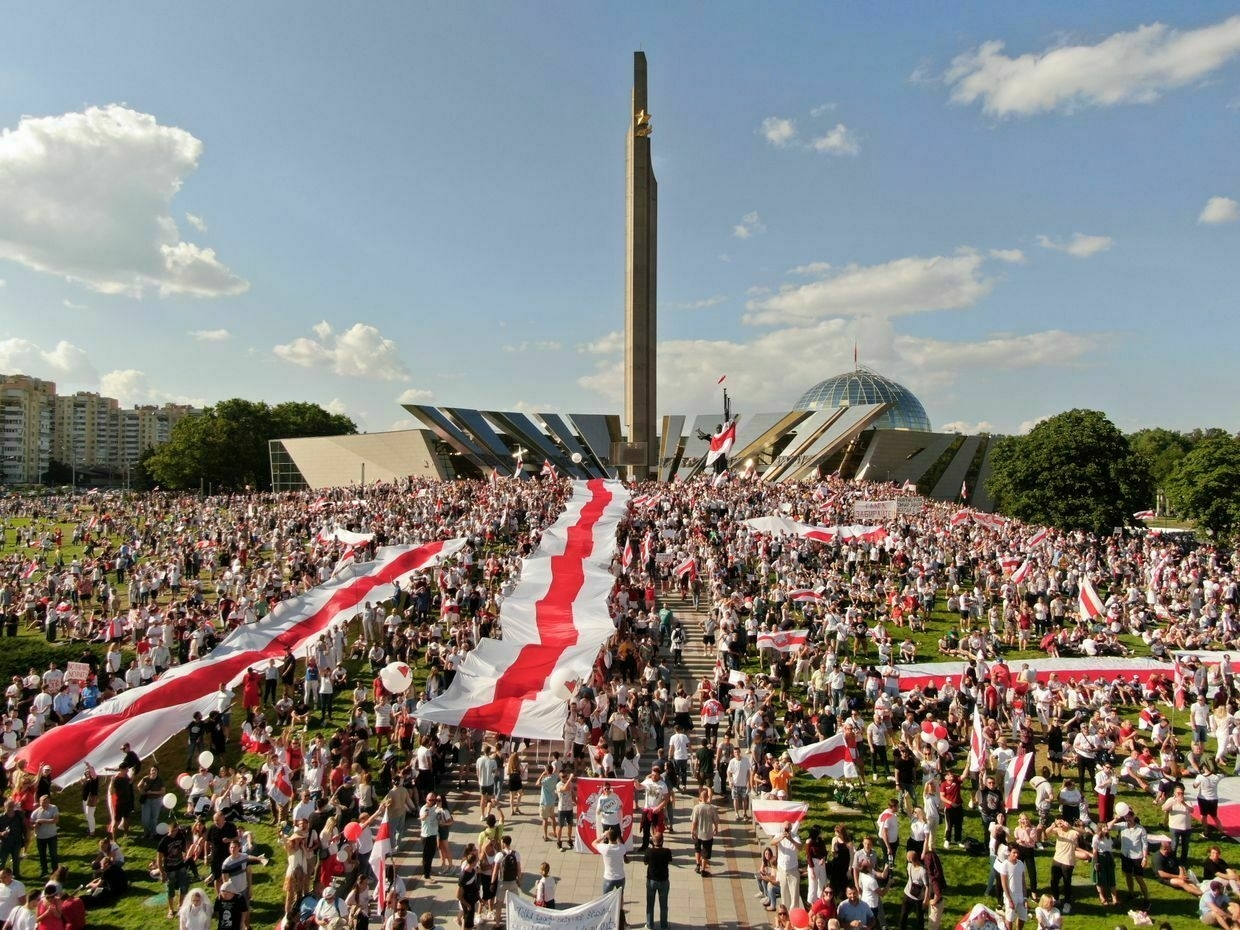
An aerial view of protesters during a demonstration in Minsk, Belarus, on Aug. 16, 2020. Protests erupted following President Lukashenko's claimed victory in the Aug. 9 election, seen as fraudulent. (Getty Images / Getty Images) 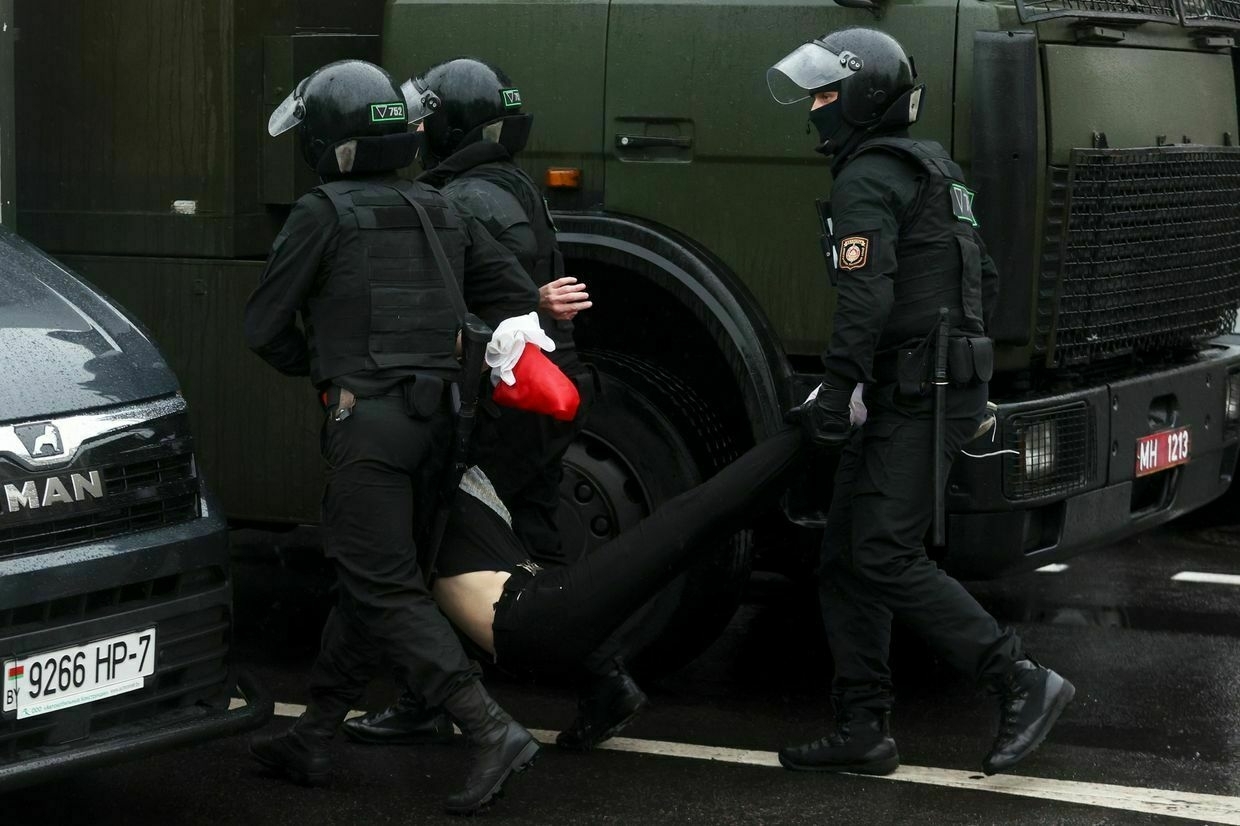
Law enforcement officers detain a man during a rally in Minsk, Belarus, on Oct. 11, 2020, protesting presidential election results. Riot police detained thousands. (STRINGER / AFP via Getty Images) The rally escalated when the women protesters tried to prevent the police from arresting the men. Komar spent nine days in jail and, by her own account, considers herself lucky to have been released.
"It was still a relatively mild phase of the political crackdowns back then. I am one of over 50,000 Belarusians who have endured detentions and imprisonment," Komar said.
"Since then, repression (against pro-democracy Belarusians) has only intensified. Every day, hundreds of people lose their jobs, face home searches, are summoned for interrogations, or are sentenced to days, weeks, months, and even years in prison. The punishment machine has not ceased for a single day since the summer of 2020."
Opposition leader Kalesnikava has been behind bars for over four years, as are those who attempted to challenge Lukahsenko on the ballot in 2020, including Viktar Babaryka and Siarhei Tsikhanouski.
“Prison is for people who have opened their mouths too wide and who have broken the law. Don't you have prisons in Britain and America?” Lukashenko countered when asked about jailed opposition figures in a recent interview with the BBC.
Reflecting on the days immediately following the 2020 election, Halubovich recalls the pervasive sense of fear that hung in the air. On the night following the election, as she and others waited outside her school for election results, some panicked and fled at the sight of the police.
An internet shutdown made it difficult to communicate properly, get news, or coordinate — not to mention get news of what was happening to the outside world.
"The 'point of no return' for me came the night when the police released some of those who had been arrested and tortured in the first days," Halubovich said.
"I spent the entire night outside Akrestina prison — the most terrifying place in Belarus — where people were released by morning, horribly beaten. Some of them were too afraid to even sit in an ambulance, it was like they were half-mad after being tortured."
After several weeks, the protests began to lose their momentum. From every march she attended beginning in September 2020, Komar recalled beginning to sense a lack of clear strategy among the movement and felt that it was often unclear what the right course of action should be.
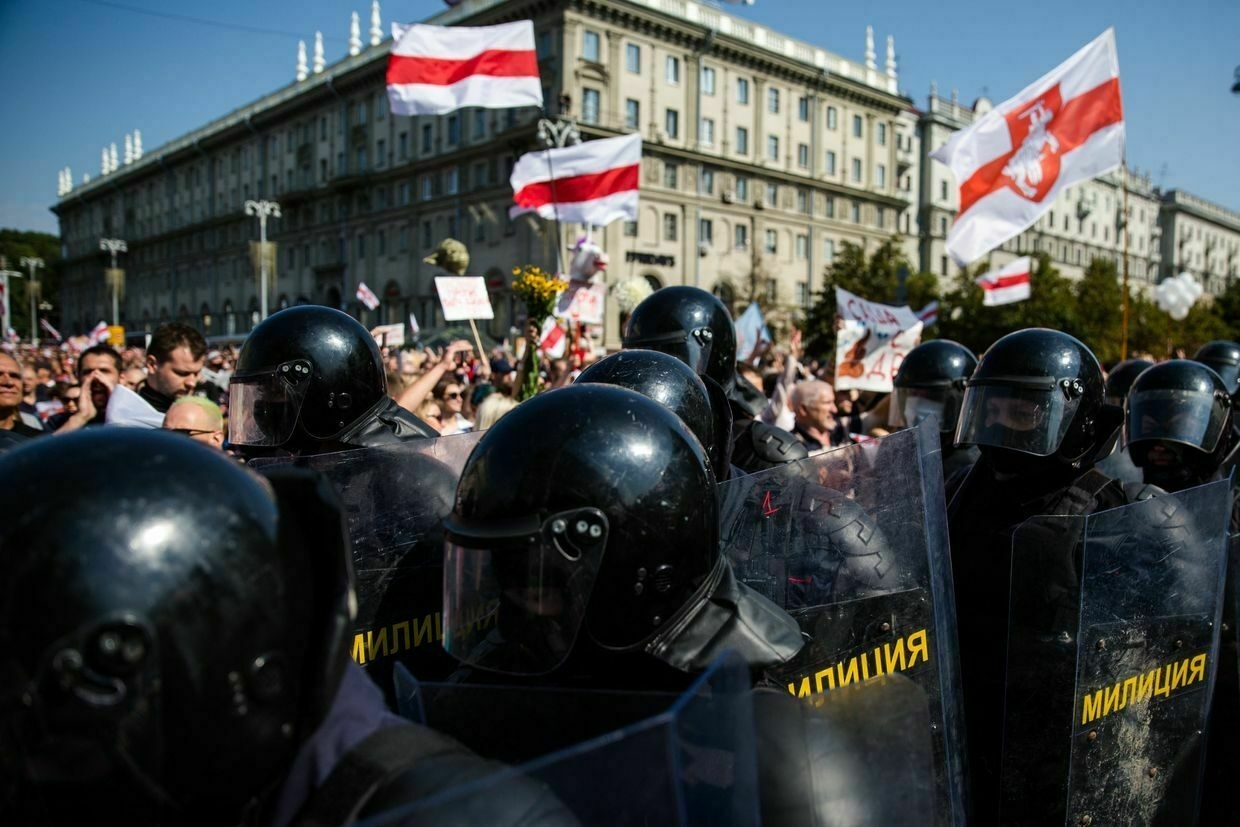
Belarus special police troops block a street as opposition supporters rally to protest against disputed presidential election results in Minsk, Belarus, on Aug. 30, 2020. (Tut.by / AFP via Getty Images) 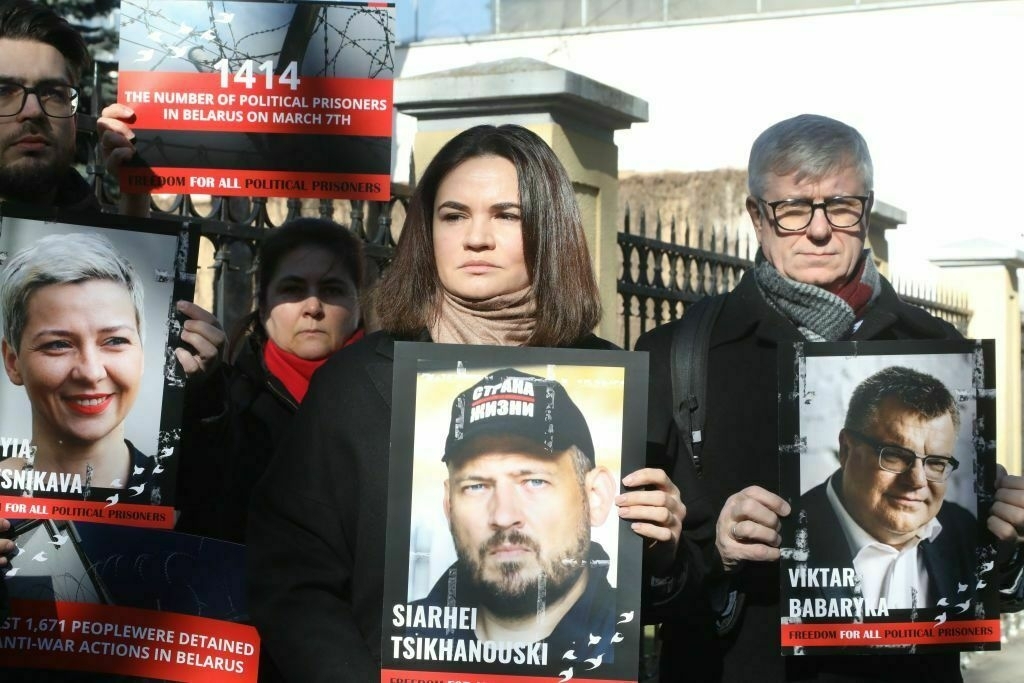
Exiled Belarusian opposition leader Sviatlana Tsikhanouskaya (C) holds a photo of her jailed husband Sergei Tsikhanouski while other demonstrators hold photos of Belarusian opposition figures Maria Kalesnikava (L) and Viktar Babaryka (R) as they protest in front of the Belarusian Embassy in Vilnius, Lithuania, on March 8, 2024. (Petras Malukas / AFP via Getty Images) "Still, I kept joining the marches and protests until early 2021. It was simply the need to keep going — because to stop would have meant letting down all the people still behind bars in Belarus," Komar said.
"I remember one of the final neighborhood marches, feeling exhausted and desperate, but thinking of Mikita Zalatarou, the 17-year-old political prisoner with epilepsy who was tortured in prison. The drive to do something to free him became my only fuel."
The regime's relentless brutality against those who opposed Lukashenko highlights the immense challenges the movement faced from the onset.
"Unfortunately, we weren't ready to seize the opportunities that briefly arose during the moment of disarray among (those in power)," Alina Rudina, a Belarusian journalist now living in Ukraine, told the Kyiv Independent.
"Never again can we underestimate the enemy's cruelty and what they are willing to do to maintain their power."
Moving away from RussiaOver 30 years into his reign, Lukashenko seems poised to remain in power for the foreseeable future, but many of the Belarusians who took part in the 2020 protests hesitate to look back on that period as a total defeat.
For pro-democracy Belarusians, the events of 2020 were largely a moment of national awakening — one that reignited a sense of independence, rekindled pride in their language and history, and fortified their resolve to break free from Russia's influence over their country.
Under Lukashenko's rule over the past three decades, Russia's cultural and political reach remained entrenched in Belarusian society. However, the ongoing crisis has provided Belarusians in exile with an opportunity to assert the distinctiveness of their language and culture, challenging years of Russification and reaffirming their national identity.
"My sense of identity is more Belarusian now than it was before 2020. I make a conscious effort to avoid reading or watching anything Russian, and I'm grateful that my mind feels so clear and free from that imperialistic influence," Halubovich said.
For those Belarusians who have sought refuge in wartime Ukraine, this choice of language holds even greater significance.
Rudina, who has lived in Ukraine for nearly five years, finds that her new home has helped to foster an environment that has allowed her to rediscover the Belarusian language, which she now uses daily in both her personal and professional life.
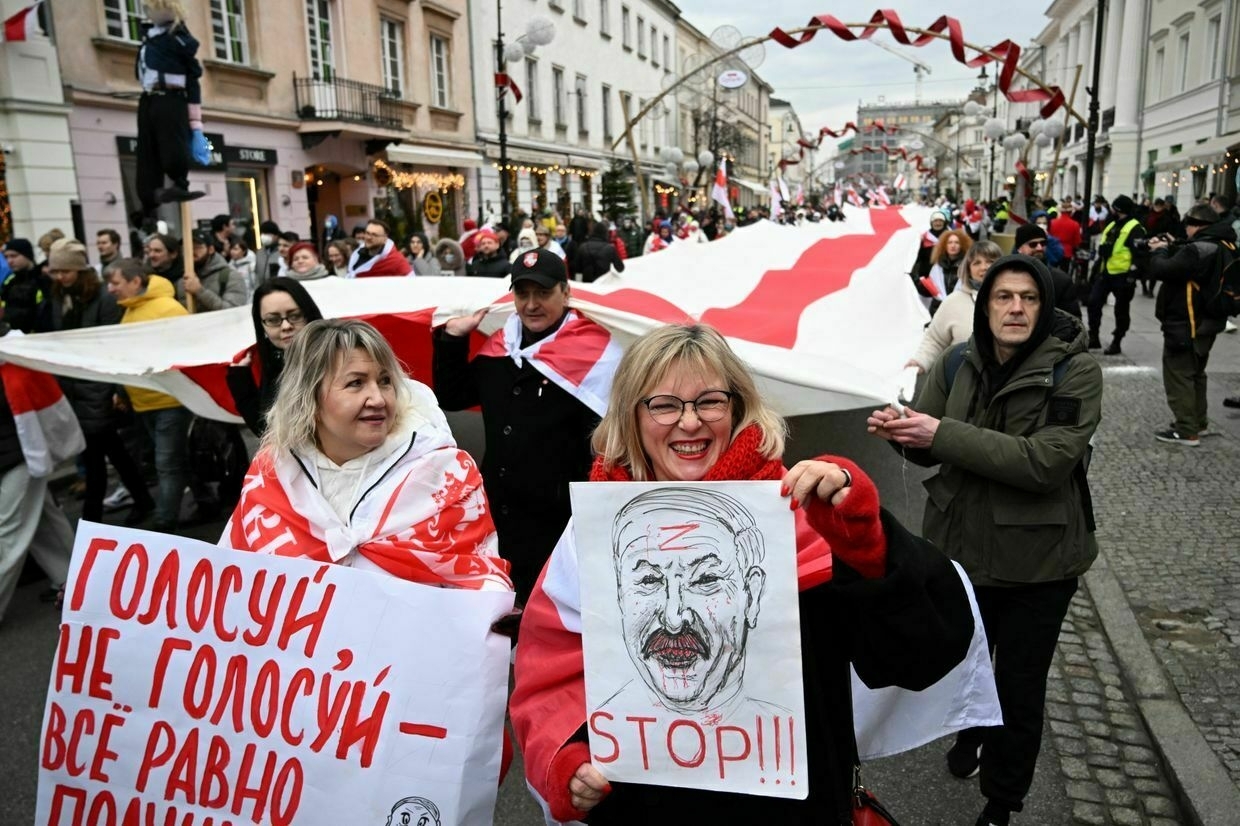
A member of the Belarusian diaspora carries a placard depicting Belarus' dictator Alexander Lukashenko during a rally in Warsaw, Poland, on Jan. 26, 2025. Exiled Belarusian opposition leader Sviatlana Tsikhanouskaya called the presidential election in Belarus a "farce." (Sergei Gapon / AFP via Getty Images) She also devotes her time in exile to learning how independent Ukrainian media is developing to better understand what pro-democratic Belarusians can do to help counter Russian propaganda.
"After being in Ukraine and living through the full-scale invasion, I am convinced that Belarusians need a certain degree of Russophobia and radical rejection of anything Russian," Rudina told the Kyiv Independent.
"Only this can become a vaccine for the future, preventing the country's absorption and the loss of Belarusian identity."
At the same time, hundreds of thousands of Belarusians in exile must grapple with the uncertainty of life abroad and thoughts of when they will ever be able to return home.
"The identities I once took pride in, like being a writer or an activist, now feel distant," Komar said.
"More and more, I find myself thinking that what truly matters is simply being a decent human."
Belarusian soldiers fighting for Ukraine say time is running out for their brother-in-arms extradited to BelarusIn Alexander Lukashenko’s Belarus, helping to defend Ukraine against Russia gets you labeled as a terrorist. Vasil Verameichyk, a Belarusian who enlisted in Ukraine’s Armed Forces just four days after Russia launched its all-out war, was detained on Nov. 13 in Vietnam in a suspected covert operatio…The Kyiv IndependentKate Tsurkan
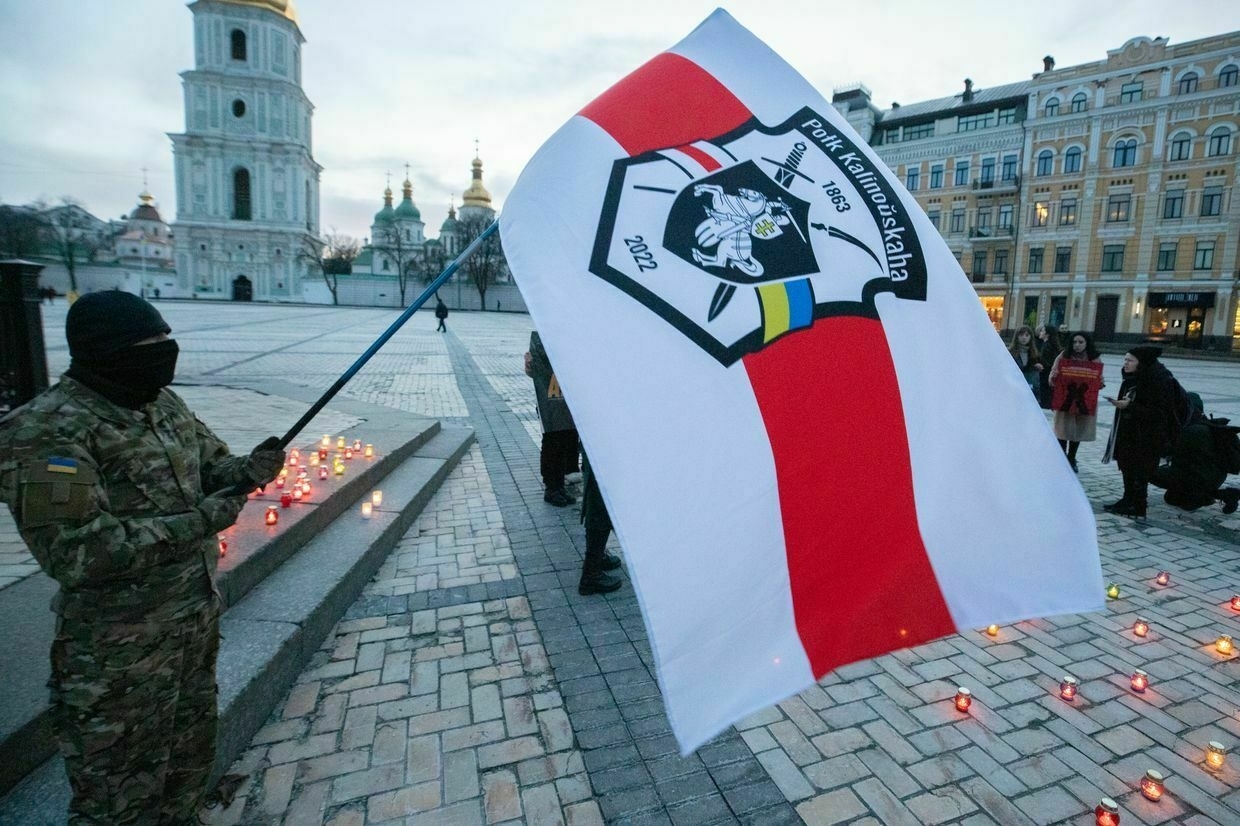
Note from the author:
Hi, this is Kate Tsurkan. Thank you for taking the time to read this article.The Belarusian people's ongoing struggle for a better future is both courageous and inspiring. Despite bravely facing Lukashenko's harsh authoritarian regime, their efforts receive far too little attention. They deserve greater recognition and our unwavering support.
If you found this story important please consider supporting our reporting.
EU suspends visa privileges for Georgian officials over democratic backsliding
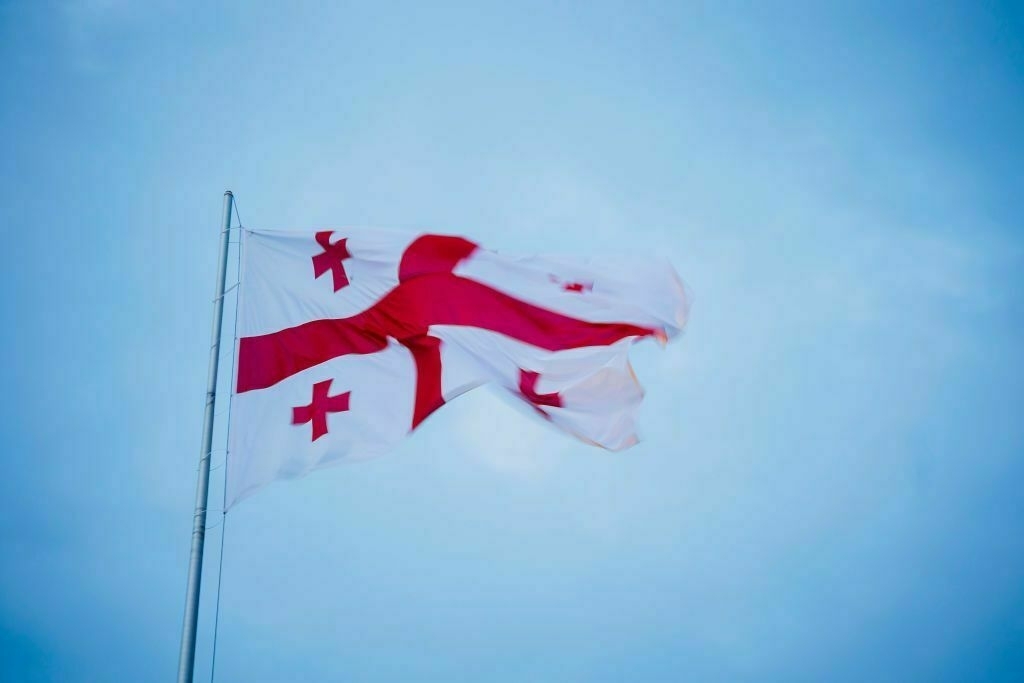
The European Union suspended parts of its visa facilitation agreement with Georgia on Jan. 27, citing concerns over the country’s democratic backsliding.
“Fundamental rights and democratic values are core principles of EU integration. Officials that represent a country which trample down these values should not benefit from easier access to the EU,” said Tomasz Siemoniak, Poland’s interior minister.
The decision follows mass protests in Tbilisi over parliamentary elections that the opposition belives were nor free nor fair and a political crisis sparked by Prime Minister Irakli Kobakhidze’s announcement that Georgia’s EU integration could be delayed until 2028.
The suspension applies to members of Georgian official delegations, government and parliamentary officials, Constitutional and Supreme Court judges, and holders of diplomatic passports.
Ordinary Georgian citizens will retain visa-free travel to the EU for short-term trips.
The ruling Georgian Dream party, founded by oligarch Bidzina Ivanishvili, has drawn criticism for steering Georgia closer to Russia while hindering its EU accession.
A controversial foreign agents law adopted earlier in 2024 led the EU to freeze Georgia’s membership process effectively, while a package of anti-LGBTQ laws further exacerbated the crisis.
EU to continue talks with Ukraine on gas supplies to Europe, including Hungary, Slovakia, Reuters reports“The (European) Commission is ready to continue discussions with Ukraine on the supply to Europe through the gas pipeline system in Ukraine,” the statement said.The Kyiv IndependentKateryna Hodunova
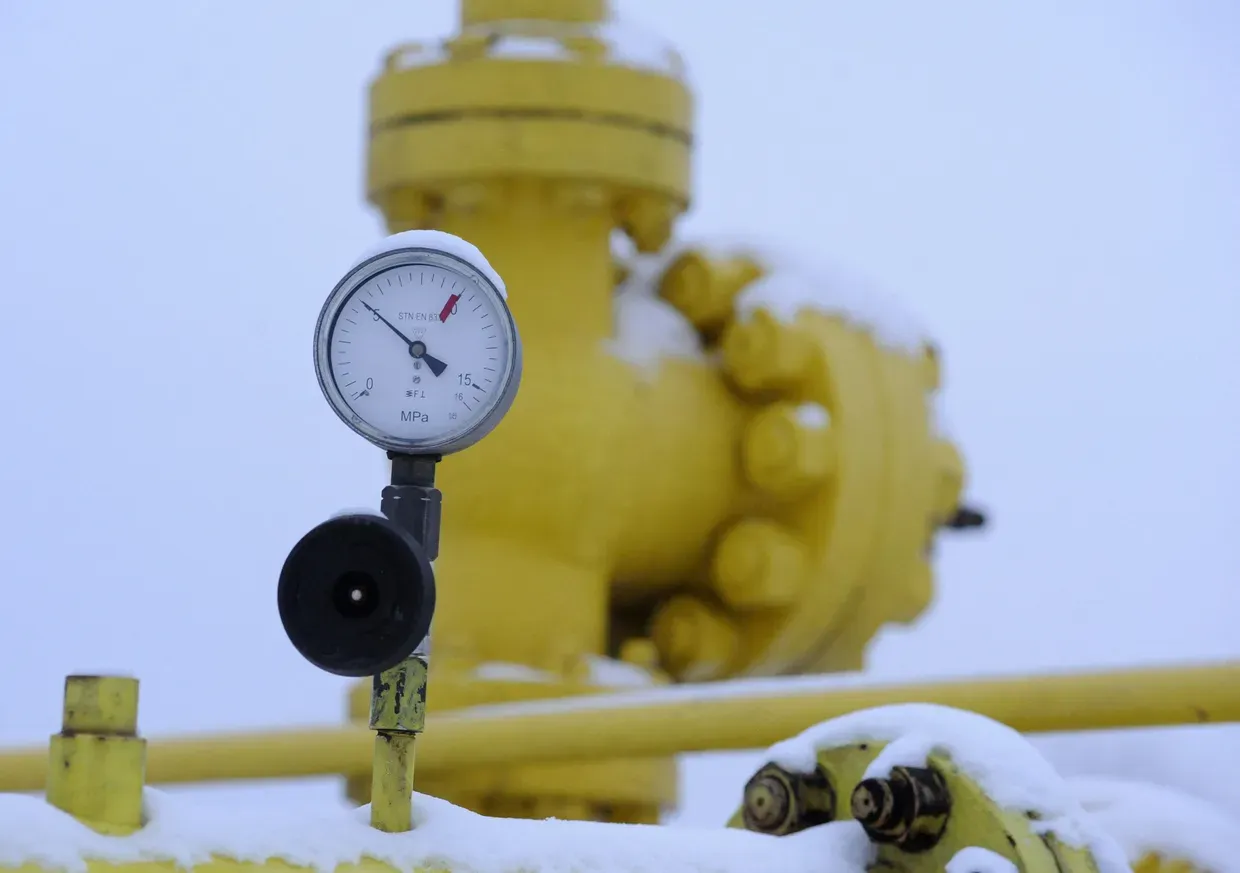
Kremlin backs Lukashenko's 'victory' in Belarus election, dismisses Western criticism
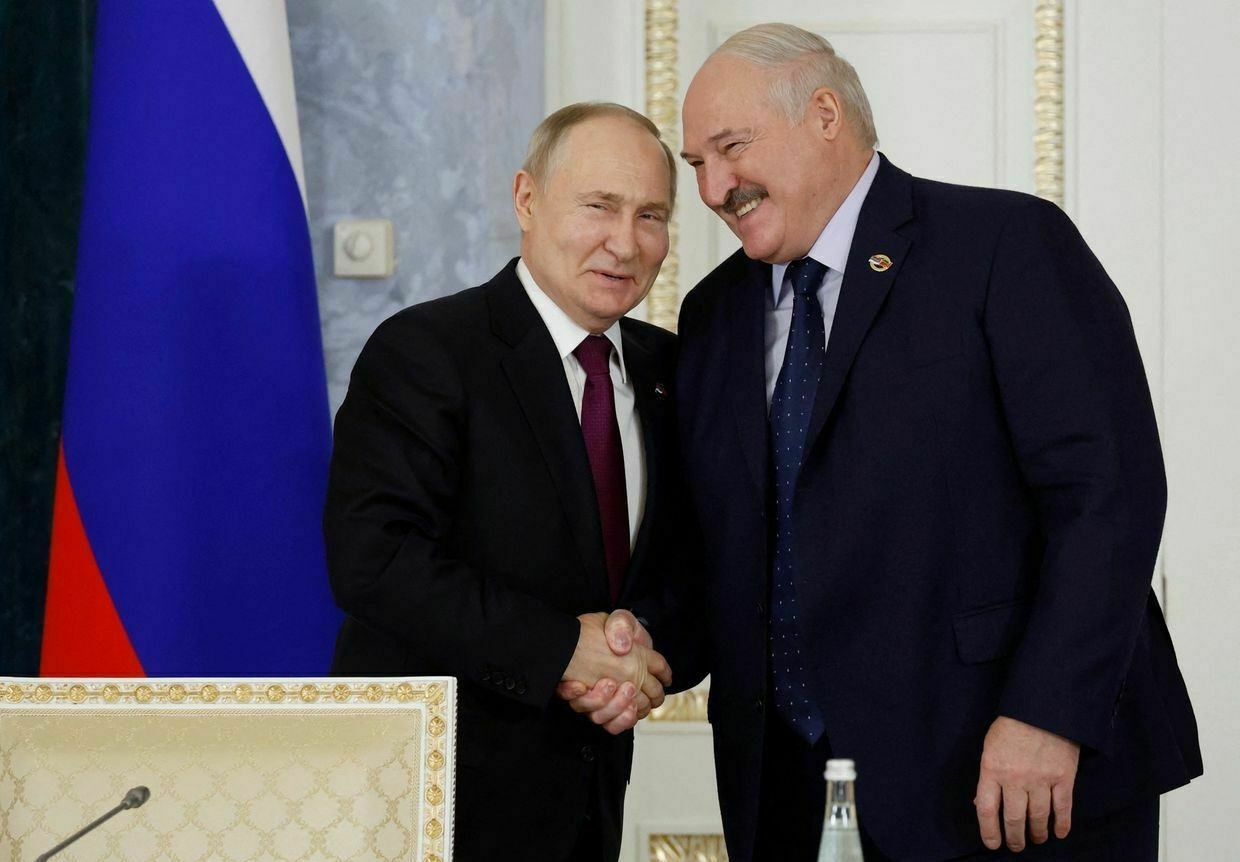
The Kremlin on Jan. 27 welcomed Belarusian dictator Alexander Lukashenko’s claimed election victory, dismissing Western criticism of the vote as “expected."
Lukashenko, who has ruled Belarus since 1994 and is Russian President Vladimir Putin’s closest ally, was declared the winner with 86.82% of the vote.
“The elections in Belarus were transparent and absolutely legitimate. Moscow does not take into account the expected criticism of the elections in Belarus in the West,” Kremlin spokesperson Dmitry Peskov told Russian media.
Lukashenko competed for the presidency against regime-approved candidates Sergey Syrankov, who secured 3.21% of the vote, and Oleg Gaidukevich, who received 2%, while 3.6% of ballots reportedly voted “against all."
EU’s chief diplomat, Kaja Kallas, criticized Lukashenko ahead of the election, denouncing it as a sham and an affront to democracy.
“Lukashenko has clung to power for 30 years. This is a blatant affront to democracy. Lukashenko doesn’t have any legitimacy,” she said.
Exiled opposition leader Sviatlana Tsikhanouskaya, who contested the 2020 election, condemned the results, calling the vote a “special operation” to illegally maintain power.
The 2020 election, marked by mass protests and a violent crackdown, became pivotal in Belarus' history. Lukashenko claimed victory despite widespread evidence of fraud, while Tsikhanouskaya asserted she won 60% of the vote.
Since then, over 60,000 Belarusians have been detained for political reasons, according to the human rights group Viasna.
Belarus releases American citizen amid controversial electionU.S. Secretary of State Marco Rubio identified the U.S. citizen as Anastassia Nuhfer, who was detained in early December 2024.The Kyiv IndependentOlena Goncharova
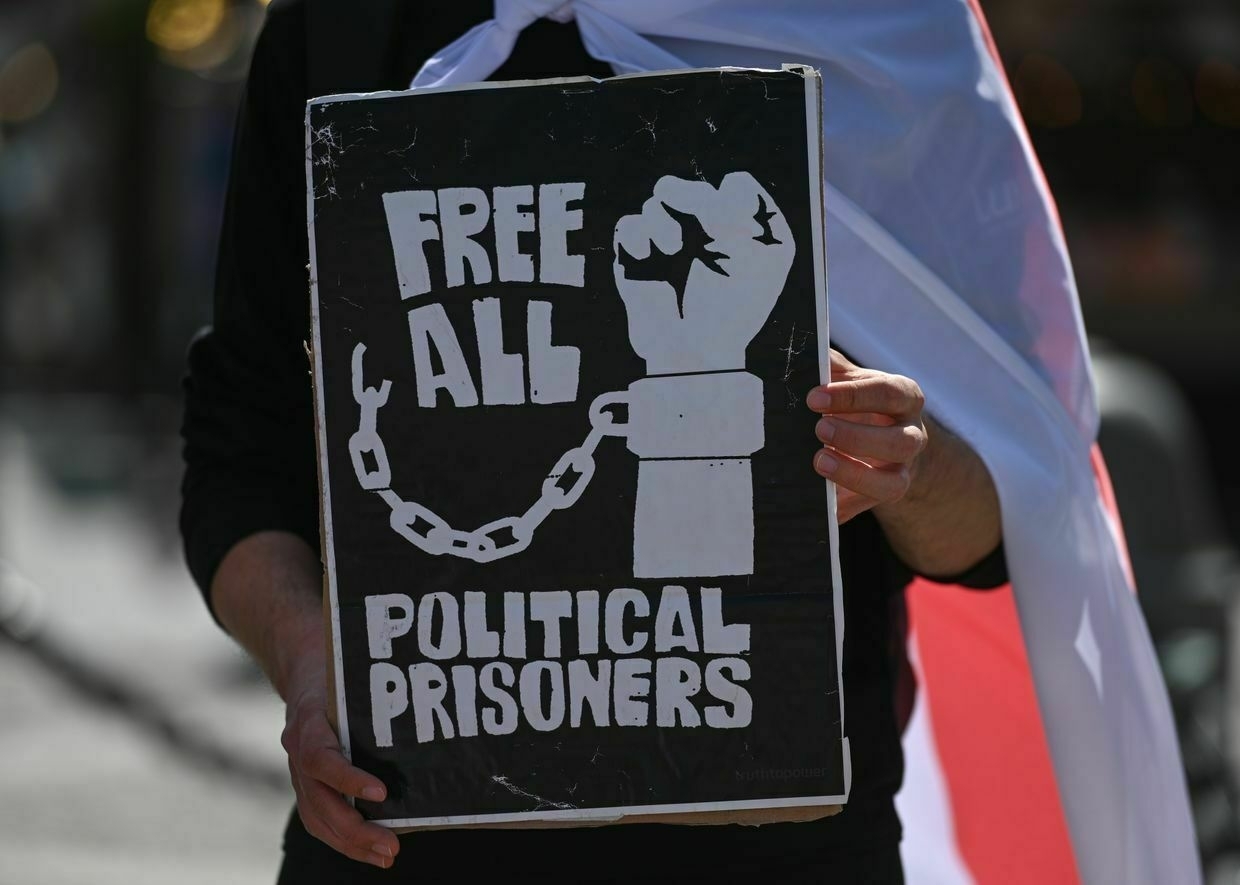
Lukashenko declares himself 'winner' of Belarus’s presidential vote blasted as sham
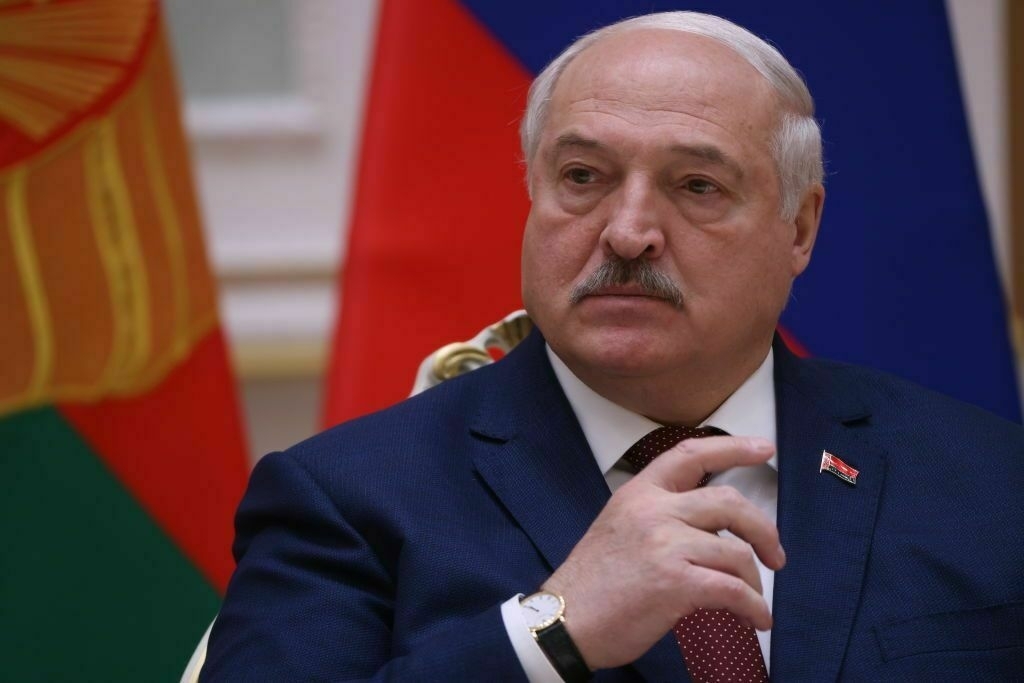
Belarusian dictator Alexander Lukashenko declared himself president for his seventh consecutive term in an election on Jan. 26 internationally deemed as neither free nor fair.
The Belarusian Election Commission claimed that Lukashenko “won” 86.82% of the vote, followed by regime-approved and little-known candidates like Sergey Syrankov with 3.21% or Oleg Gaidukevich with 2.02%. Some 3.6% of the ballots voted “against all."
“You can congratulate the Republic of Belarus, we have elected a president,” said Igor Karpenko, the head of the electoral commission, early on Jan. 27. The commission claimed a 85.7% turnout.
Lukashenko, the country’s leader since 1994 and Russian President Vladimir Putin’s closest ally, has long been accused of staging fraudulent elections in Belarus.
In 2020, during the last presidential election, Lukashenko maintained power despite the country’s most prominent opposition leader, Sviatlana Tsikhanouskaya, receiving popular support. The now-exiled opposition leader said she won with 60% of the vote.
Following the fabricated results in 2020, mass protest erupted in Minsk but were ultimately quelled with the support of Russia. According to the Belarusian human rights group Viasna, over 60,000 citizens have been detained for political reasons since the 2020 election.
Tsikhanouskaya responded to the election results on Jan. 26 by condemning the legitimacy of the vote and rejecting Lukashenko as president.
“These are not elections but a ‘special operation’ to illegally cling to power. Lukashenko, propped up by Putin, holds 9 million Belarusians hostage, drags us into war, and betrays our sovereignty,” she wrote on X.
“He does not represent Belarus. The regime must end its repressions, release political prisoners, and be held accountable for its crimes. Belarusians will prevail!"
Kaja Kallas, the EU’s chief diplomat, echoed similar sentiments on X on Jan. 25.
“Lukashenko has clung to power for 30 years. Tomorrow, he’ll reappoint himself in yet another sham election. This is a blatant affront to democracy. Lukashenko doesn’t have any legitimacy,” she said.
Notably, Lukashenko declined to invite a mission from the Organization for Security and Co-operation in Europe (OSCE) to observe the country’s presidential election.
On Nov. 22, state-run news outlet Belta reported that Lukashenko may completely shut down the internet during the 2025 presidential elections if protests similar to those in 2020 arise.
“If this (the protests) happens again, we will shut the internet down completely,” Lukashenko said, admitting that internet shutdowns during the 2020 protests were carried out with his approval.
While Belarus has not directly participated in the war against Ukraine, it has allowed the Kremlin to use its territory as a staging ground for its operations. The country is also reportedly hosting Russian tactical nuclear arms on its territory.
Photos of jailed Belarusian opposition leader appear after almost 2 years of no newsPhotos and a video of Viktar Babaryka were published by blogger Raman Pratasevich on Jan. 8 after the jailed Belarusian opposition leader was held incommunicado since February 2023.The Kyiv IndependentMartin Fornusek
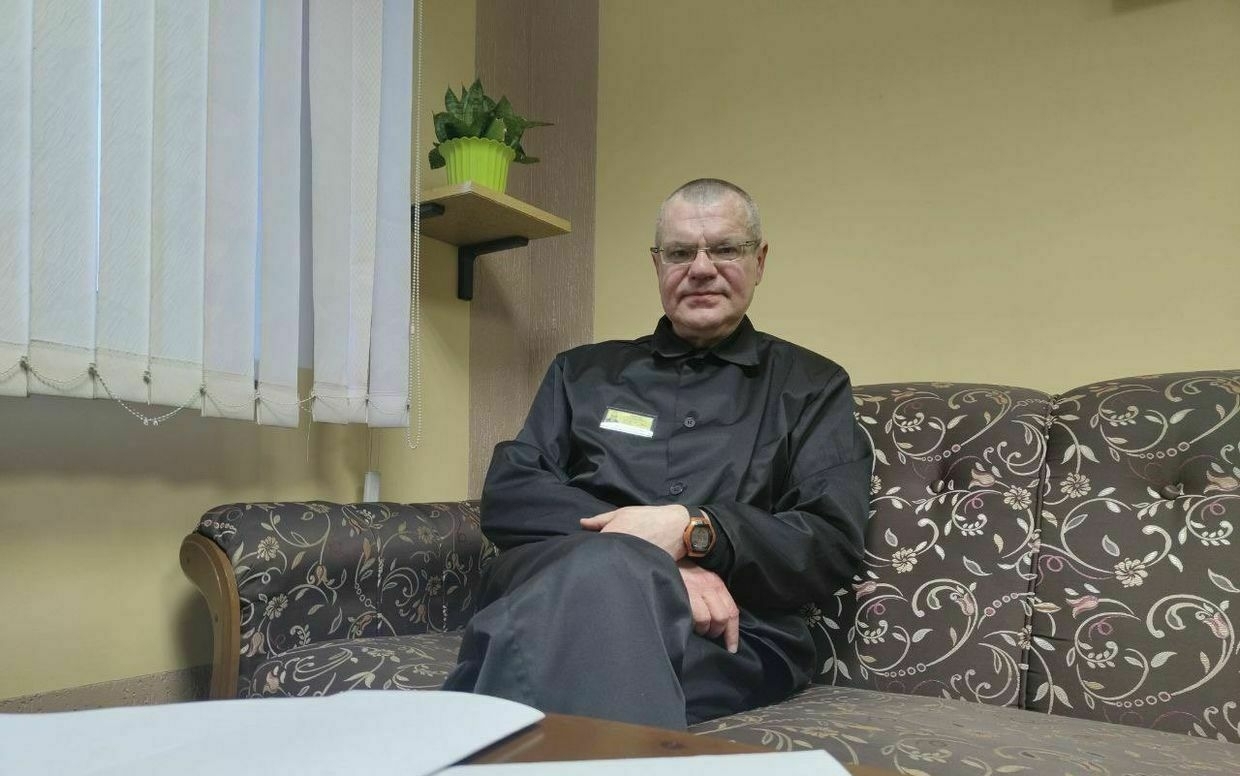
Belarus releases American citizen amid controversial election
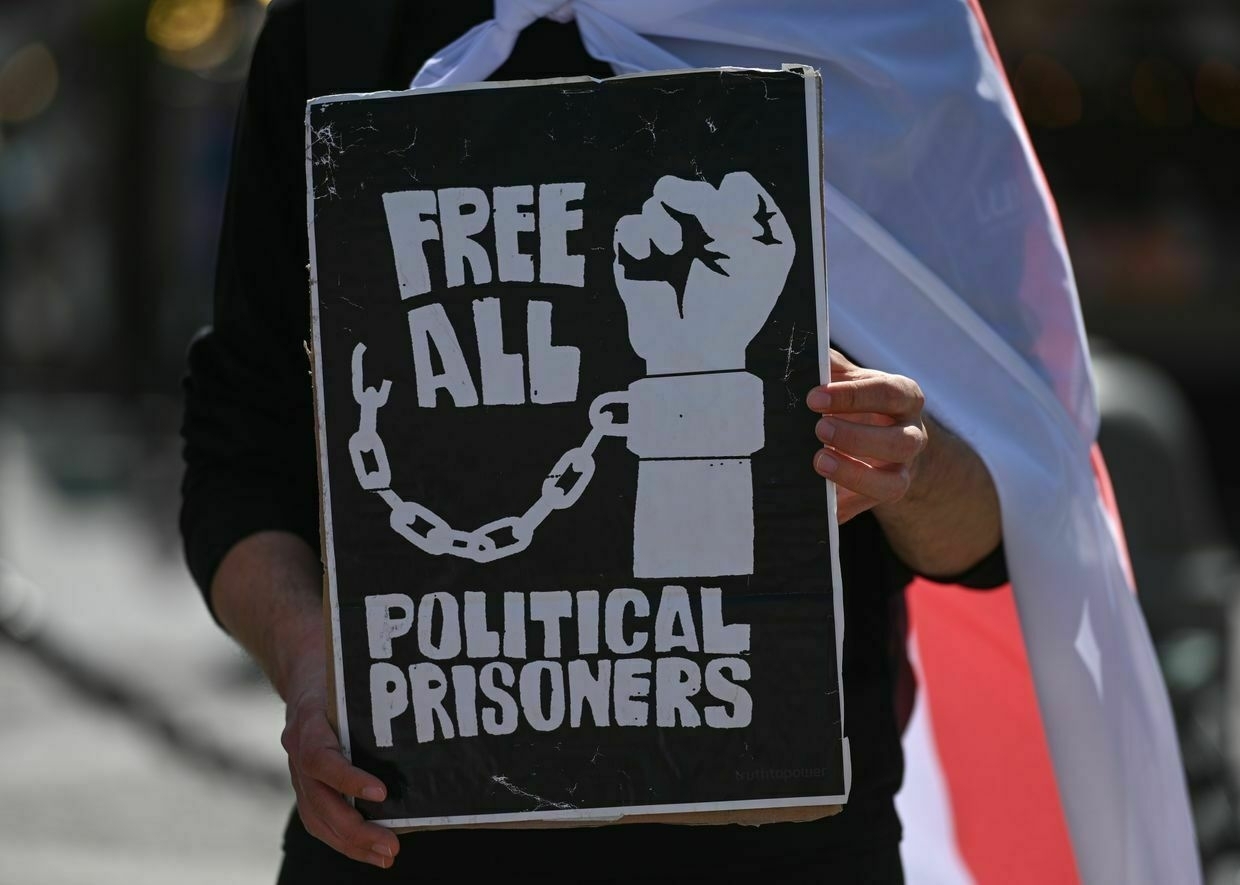
U.S. Secretary of State Marco Rubio announced on Jan. 26 that Belarus had “unilaterally” released an American woman from detention, as Alexander Lukashenko is set to win a seventh term in office.
Rubio identified the U.S. citizen as Anastassia Nuhfer, who was detained during former President Joe Biden’s tenure. He did not provide details on the timing or reasons for her arrest.
Rubio’s statement followed a series of prisoner releases by Lukashenko, often referred to as “Europe’s last dictator.”
Belarus' oldest human rights group, Viasna, reports that over 1,250 individuals remain in detention for opposing the government. Lukashenko’s opponents, many imprisoned or exiled due to his ongoing crackdown on dissent, have condemned Sunday’s election as fraudulent. The 2020 election, which sparked months of mass protests, has been widely criticized for its lack of legitimacy.
The U.S. State Department later confirmed that Nuhfer had been detained in early December 2024, according to the Associated Press. Earlier this month, a consular officer from Washington gained rare access to her in detention.
A former high-ranking Belarusian diplomat told the Associated Press that Nuhfer’s arrest was tied to the 2020 protests, though they did not provide further details. The diplomat, speaking anonymously due to security concerns, added that Lukashenko offered to release Nuhfer “as a gesture of goodwill” but refused to free any Belarusian opposition or rights activists.
Lukashenko’s support for Russia’s war in Ukraine has strained Belarus’ relations with both the U.S. and the EU, ending his previous attempts to leverage Western support for more subsidies from Moscow.
It remains unclear what, if any, concessions Belarus may have sought in exchange for releasing Nuhfer.
Belarus Weekly: Belarus to host over 13,000 Russian troops for Zapad-2025 joint military drillsOSCE observers not invited to monitor upcoming presidential election in Belarus. Belarus to host over 13,000 Russian troops for Zapad-2025 joint military drills with Russia. Belarus sentences EU diplomatic staffer to four years in prison. Subscribe to the NewsletterBelarus Weekly Join us…The Kyiv IndependentMaria Yeryoma

Lukashenko poised to secure 7th term in Belarus 'sham' election
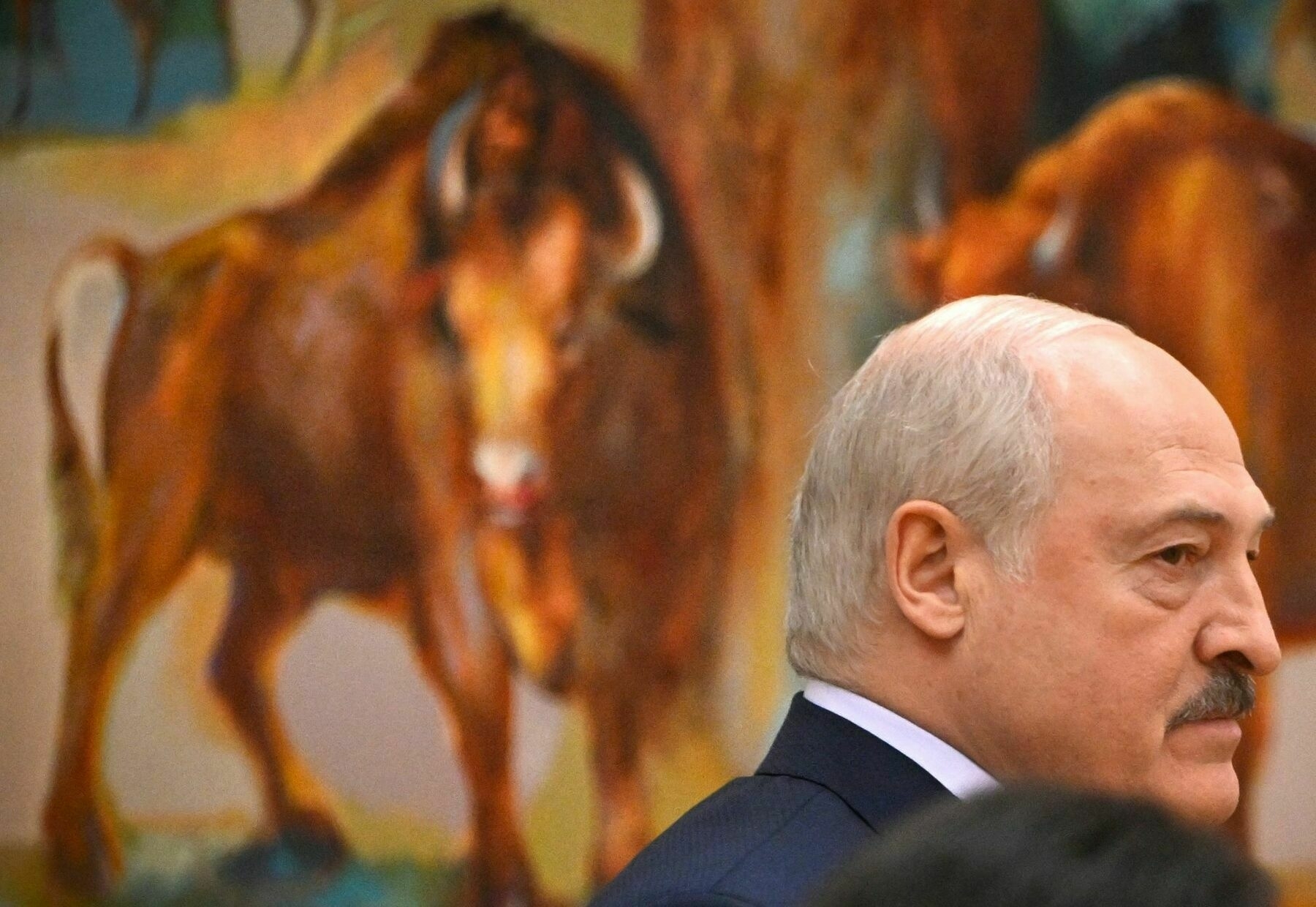
Belarusian dictator Alexander Lukashenko appeared set to win a seventh term in office on Jan. 26 in an election widely dismissed by the West and opposition groups as a sham.
Lukashenko has reportedly secured 86.82% of the vote, according to preliminary results announced by the country’s Central Election Commission on Monday.
The 70-year-old leader, who has ruled since 1994, faced no real competition, as key opposition figures are either imprisoned or living in exile following years of political repression.
Lukashenko’s 2020 re-election, widely criticized as fraudulent, sparked unprecedented protests in Belarus, leading to over 65,000 arrests and widespread reports of police brutality. Western nations responded with sanctions and condemnation.
The president, who has relied heavily on Russian subsidies and backing to maintain his grip on power, campaigned this time on a platform of “peace and security.” Lukashenko justified his close alliance with Moscow, which included allowing Russia to use Belarusian territory to launch its invasion of Ukraine in 2022 and hosting Russian tactical nuclear weapons. “It’s better to have a dictatorship like in Belarus than a democracy like Ukraine,” Lukashenko said during his campaign.
Observers suggest the election date was strategically moved to January, avoiding the warmer months when protests might have been more likely. Economic challenges and the ongoing war in Ukraine have heightened tensions in Belarus, but the government ensured no significant opposition emerged in the lead-up to the vote.
On election day, Lukashenko engaged in a four-hour press conference where he dismissed criticism about the fairness of the election. Asked about the absence of opposition figures, he replied: “Some chose prison, some chose ‘exile,’ as you say. We didn’t kick anyone out of the country.” He also denied allegations of suppressing dissent, claiming opponents had made their own decisions regarding their fate.
Belarus Weekly: Belarus to host over 13,000 Russian troops for Zapad-2025 joint military drillsOSCE observers not invited to monitor upcoming presidential election in Belarus. Belarus to host over 13,000 Russian troops for Zapad-2025 joint military drills with Russia. Belarus sentences EU diplomatic staffer to four years in prison. Subscribe to the NewsletterBelarus Weekly Join us…The Kyiv IndependentMaria Yeryoma
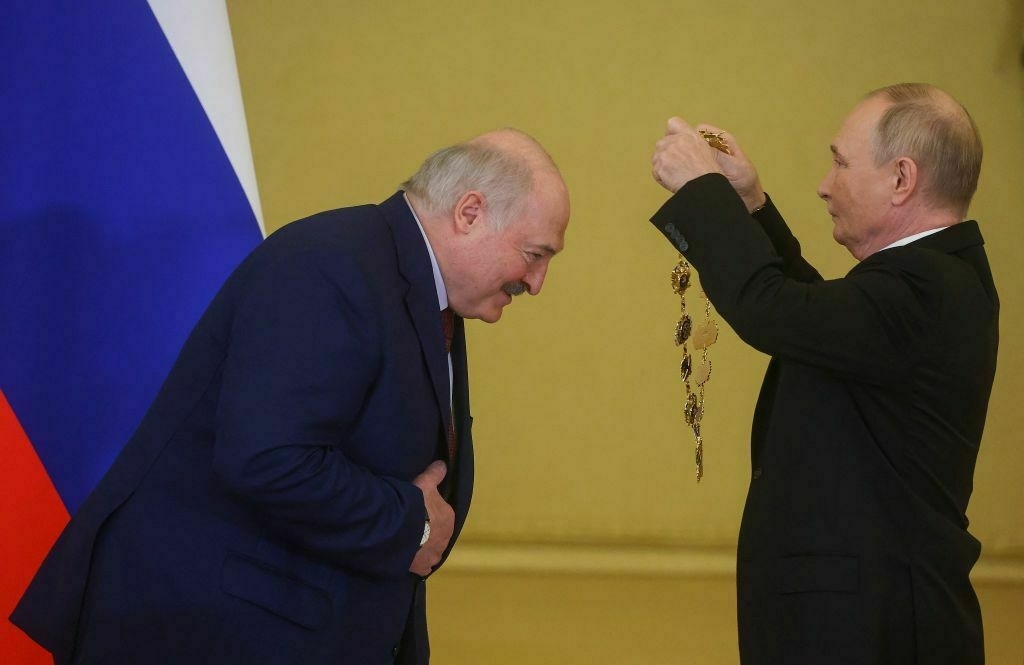
Zelensky backs Slovak protests as Fico criticizes opposition, organizers
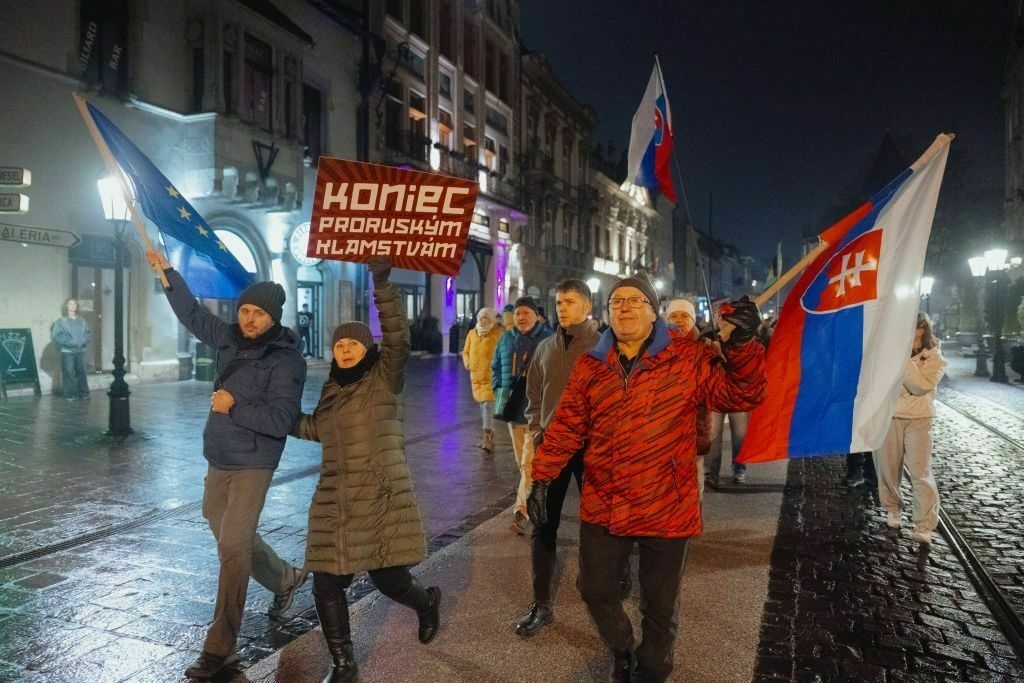
“Bratislava is not Moscow, Slovakia is Europe,” President Volodymyr Zelensky wrote on X on Jan. 25, voicing support for protests against Slovakia’s government.
The demonstrations, held under the slogan “Slovakia is Europe,” swept across 30 cities on Jan. 24. Around 100,000 people nationwide chanted slogans like “Enough of Fico” and “We are Europe,” voicing opposition to Prime Minister Robert Fico’s policies and pro-Russian stance, Slovak media Aktuality reported.
The protests were also sparked by Fico’s visit to Moscow in late December, where he met with Russian President Vladimir Putin—a rare trip to the Kremlin by a European Union leader since Russia’s 2022 invasion of Ukraine.
Fico reportedly criticized Zelensky for supporting protests against Slovakia’s government. According to Aktuality, Fico dismissed Zelensky’s comment on X as “laughable” and called it “an inappropriate interference in the internal affairs of the Slovak Republic.” He added that he currently has no plans to meet with Zelensky.
Commenting on the protests, Fico accused the organizers of misleading participants and claimed that a third of those attending the demonstrations were allegedly Ukrainians.
The Kyiv Independent can’t immediately verify this information.
Organized by the “Peace to Ukraine” initiative and opposition parties, the protests drew significant crowds on Jan. 24, including an estimated 60,000 participants in Bratislava’s Freedom Square.
Fico, who has been critical of Western support for Ukraine, accused opposition leader Michal Simecka on Jan. 18 of plotting to overthrow the government. Fico based his accusations on a confidential report from the country’s intelligence service, which he presented in parliament last week.
In a Facebook address, Fico claimed that Simecka was “kissing Zelensky’s ring” and pledging support for Ukraine’s NATO membership.
Simecka, leader of the pro-Western Progressive Slovakia party, recently led a delegation of opposition lawmakers to Kyiv on Jan. 17 to reestablish Slovakia’s support for Ukraine.
Investigation: How Russia profits from arms exports to Saudi Arabia despite sanctions — leaked emailsFew agreements are shrouded in more secrecy than inter-government arms deals — especially when one of the parties is a global pariah leading a bloody war. But a recent massive leak of emails and documents has given us an unprecedented glimpse into a particularly secretive transaction. The leak rev…The Kyiv IndependentAlisa Yurchenko
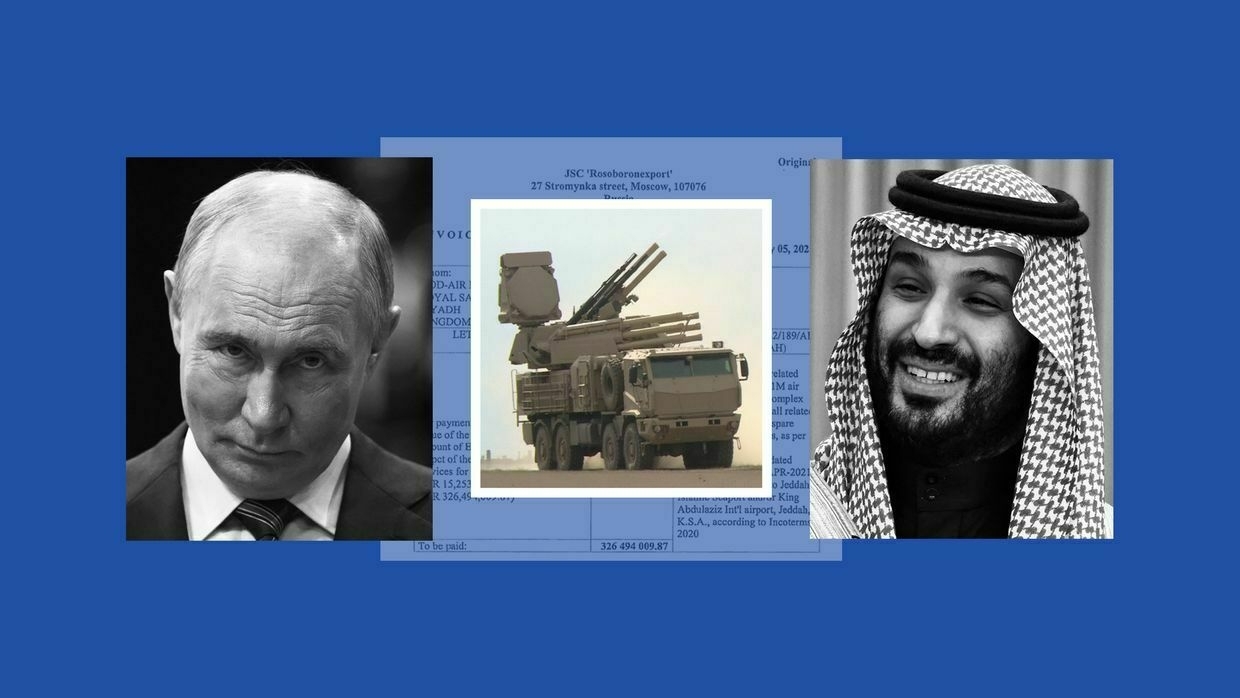
Move over Elon; Ukrainian fungus can help us get to Mars.
Editor’s note: We ask questions others don’t, and get answers others can’t.
Support our human interest style of journalism? Convinced, as we are, that the stories of free people fighting back against authoritarianism is worth the risk we take with our lives? Upgrade now.
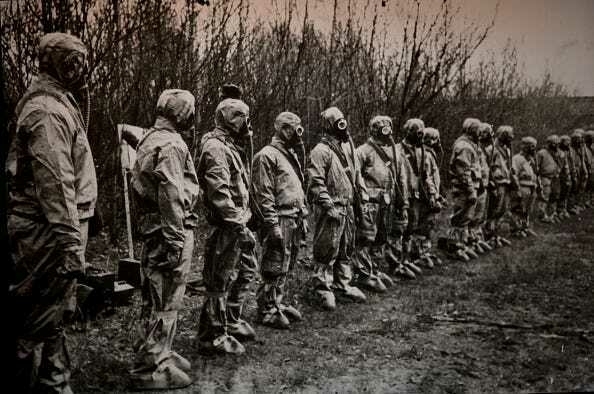
A Photo on display at the Ukrainian National Chernobyl Museum in Kyiv. (Photo by Francois Lochon/Gamma-Rapho via Getty Images) Space is deadly silent, just like the Chornobyl exclusion zone.
There is something spooky about the emptiness of both: these great expanses where no human life can exist, the desolation of the void.
"It feels like a cemetery. This area could have had a future, but it was lost because of the accident," says Olena Pareniuk, a Ukrainian radiobiologist.
Despite the nuclear disaster, Olena is among many that believe Chornobyl has a future far beyond our planet. If one day humans can conquer the exclusion zone, we can conquer even greater frontiers, including outer space.
In 1991, five years after the accident at the nuclear power plant that caused a massive release of radiation, remote-controlled robots discovered black fungus on the walls of the destroyed reactor.
Scientists were baffled. Not only did the microorganisms survive in what seemed to be an uninhabitable environment, but they also began to ‘grow’ toward the radiation source, which would later inspire applications beyond Earth.

This is a plate culture of the fungus Cryptococcus neoformans. Photo by Smith Collection/Gado/Getty Images). Ukraine has cultivated unique microbial habitats that exist nowhere else in the world, paving the way for advances in space exploration and the development of new technologies. Using microorganisms, such as radiotrophic fungi from the Chornobyl zone, Ukraine is contributing to the exploration of space – and could even help humanity travel to Mars.
Since the first sighting of black fungi in the reactor, Ukrainian scientists have regularly visited the plant to study these organisms' ability to thrive under extreme radiation. Eventually, a team led by Ukrainian scientist Nelli Zhdanova identified more than 200 species of fungi at the site. Many of them were rich in melanin—a pigment also found in humans that gives color to skin, eyes, and hair, while also protecting the body from ultraviolet radiation.
It was then proposed that these fungi could grow due to the interaction between melanin and radiation.
In 2007, this theory was further confirmed when an American research team obtained some of their own mushroom samples from Chornobyl. They found that three species of fungi with the pigment melanin — Cladosporium sphaerospermum, Wangiella dermatitidis and Cryptococcus neoformans — grew faster and accumulated nutrients (acetate) in an environment with extremely high radiation levels. In this case, they were growing in locations where the radiation was 500 times higher than normal.
This process was similar to photosynthesis in plants. Only this was radiosynthesis, in which the fungi converted dangerous radiation into chemical energy to help them grow.
"No normal biological process is designed to handle such high doses of radiation. But our planet is remarkable in how life adapts to everything," Olena Pareniuk explained to The Counteroffensive.
From an early age, Olena Pareniuk's life has been intertwined with Chornobyl. She was born in Zhytomyr, not far from the exclusion zone, and her family members worked in areas of contamination after the explosion.
Due to her family’s background, in the eighth grade Olena became interested in radiobiology, the study of the effects of radiation on living organisms. She hasn’t looked back since.
Since 2008, Olena Pareniuk has been studying microorganisms in the Chornobyl zone, specifically bacteria. She later became the first to publish a study on the diversity of bacteria inside a destroyed nuclear reactor. She was also among the Ukrainian scientists who helped address the Fukushima catastrophe.
Her meeting with one of the Japanese professors was a turning point. He invited Olena to a private space conference, where the scientist was inspired by the idea of turning Chornobyl into a space research laboratory and offering scientists from around the world access to it. In particular, she is convinced that Chornobyl can contribute to the exploration of Mars.
"I listened to what kind of radiation they were studying, what kinds of energies they were dealing with, and what difficulties they were facing... And I thought, 'Oh my God, we have their ‘space’ for free,'" Olena noted.
The question of colonizing Mars has been debated for decades. Elon Musk, who aims to be a pioneer with his SpaceX Red Planet project, makes quite optimistic predictions. He plans to land on Mars within four years, and people will start living there in about twenty years. On the other hand, NASA, which is working with SpaceX, believes that any idea of going to a neighboring planet by 2040 would be "audacious."
That’s because humans face many challenges before colonizing Mars.
One of them is how to deal with cosmic radiation.
In some ways, Earth is lucky. Thanks to its strong magnetosphere, our planet is protected from dangerous radiation, particularly radiation from solar flares and galactic cosmic rays.
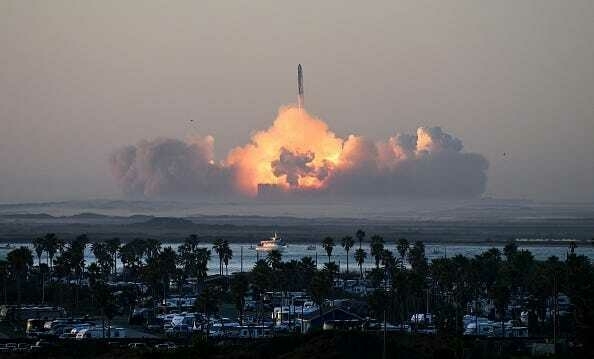
SpaceX's Starship rocket launches from Starbase during its second test flight in Boca Chica, Texas, on November 18, 2023. (Photo by TIMOTHY A. CLARY/AFP via Getty Images) This is not the case on Mars, which has no protective magnetic field. As a result, everything—spacecraft, rovers, and humans themselves — will be exposed to much higher levels of radiation. During a single trip to a neighboring planet and back, humans risk receiving 60 percent of the maximum amount of radiation deemed safe for a lifetime. Such high levels of radiation could render mission participants mentally and physically incapacitated.
However, a discovery made at Chornobyl — radiotrophic fungi — may help solve the problem. One such species is Cladosporium sphaerospermum. In the winter of 2018-2019, samples of this fungus were delivered to the International Space Station.
The idea was to test the fungus's potential as an inexpensive and lightweight material for radiation shielding. It was a way of killing two birds with one stone — addressing both the safety and cost issues facing the Mars mission.
Radiation exposure aboard the space station is low compared to other parts of space, but it is still many times higher than on Earth’s surface. Under these conditions, fungal spores were tested on the space station for about a month. The study showed that fungi are able to adapt to microgravity and grow under the influence of cosmic radiation. A layer just over 20 centimeters thick of such fungi would be enough to protect space travelers.
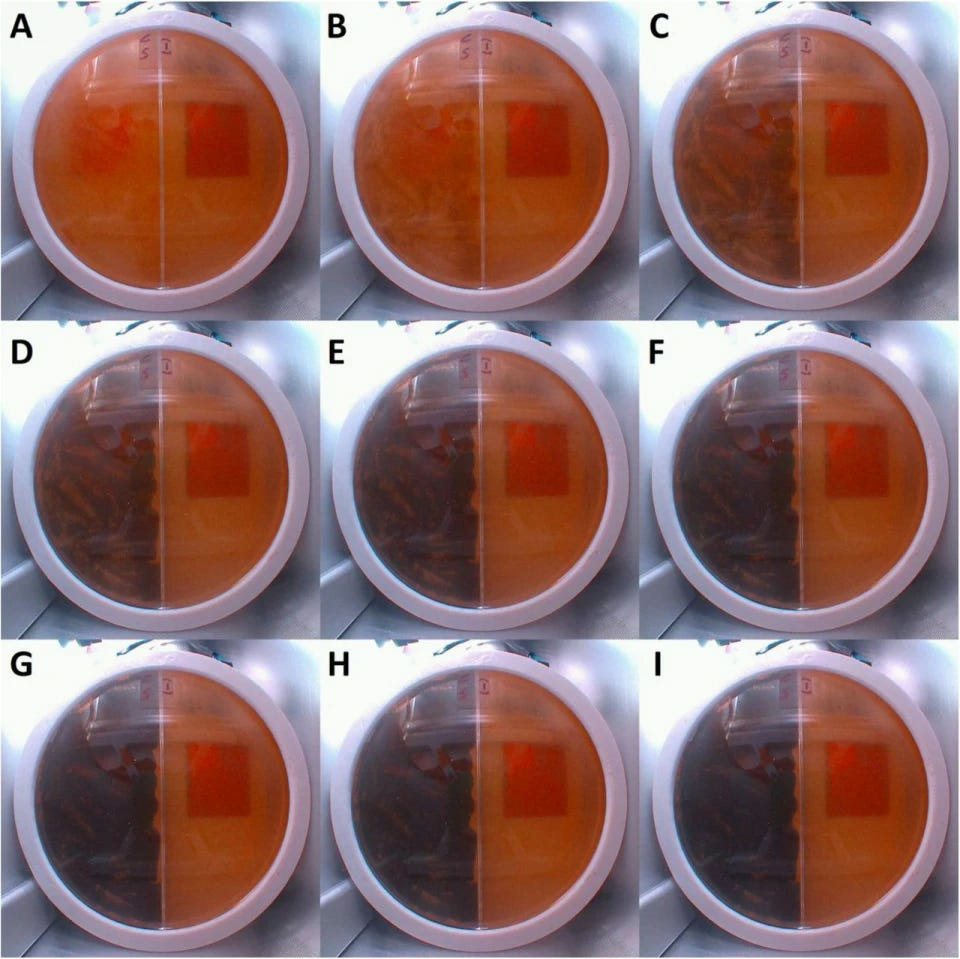
Cladosporium sphaerospermum, a fungus that can be used for radiation shielding. Source: www.biorxiv.org In addition, Chornobyl fungus is self-replicating and self-healing. This means that astronauts may be able to grow new radiation shielding during deep space missions. Only a small amount is needed, which can then grow vigorously. This eliminates the dependence on interplanetary supplies, which are complex and expensive. And even if the shield is damaged, it will repair itself in a few days thanks to these properties.
"You can use fungus or mold as a shield on living modules. You create a gap between the inside and outside the module, fill it with some nutrients, and then radiotrophic microorganisms can reduce the exposure dose [a measure of the radiation level in the environment],” notes Olena Pareniuk.
However, according to preliminary estimates, many microorganisms would need to be grown. To live on Mars in a radiation environment similar to Earth's, habitats should be covered with a layer of radio-synthesizing fungi biomass that is more than two meters thick.
But, according to Olena, the potential of Chornobyl is huge. It’s not just about using fungi that absorb radiation. Chornobyl can become a hub for testing materials and conducting other biological research — an additional link before sending something into space.
For example, you can grow cyanobacteria, or blue-green algae, which could be used as food when people begin colonizing Mars. At Chornobyl, people would be able to study whether they could survive high doses of radiation and whether they mutate.
Or we can research the effects of radiation on humans. According to Olena, no one has definitively studied whether the degradation of brain cells will begin while astronauts travel to Mars for months.
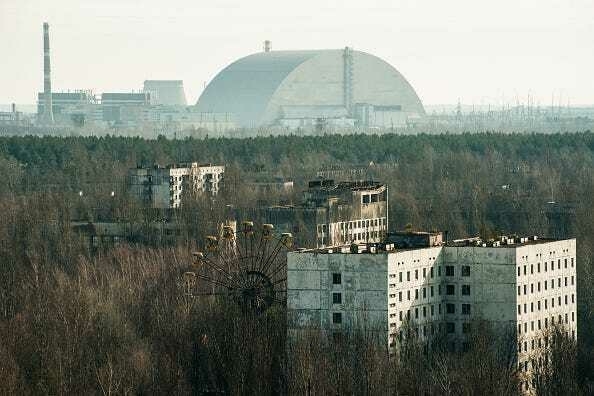
The new sarcophagus of reactor number 4 is seen from Pripyat.(Photo by Raul Moreno/SOPA Images/LightRocket via Getty Images) Of course, the conditions in space are different from those in the sarcophagus of the Chornobyl reactor. But according to Olena, if the ideas don’t work on Earth, they won’t work in space.
These ideas are now waiting for a better time: the era of post-war rebuilding. Chornobyl is currently a highly militarized area, so its access is restricted.
During the full-scale invasion, it was occupied by Russia. Its troops stole all the equipment they could find. Olena recalls that a local employee managed to enter the lab where she works, and put up "Radioactive" signs. This is the only thing that saved at least something from the Russians.
So, Olena’s Сhornobyl space project, which has not yet started, is on hold. The war has also made its own adjustments to Olena's scientific life. She now focuses on advocacy work. The war has brought new challenges — nuclear security in the face of Russian terror.
But she believes that one day, Ukraine will return to her concept, and help the whole world explore into the unknown.
"I have always been annoyed by statements that we are unhappy. No doubt, [Chornobyl] is a tragedy. But we already have it, and we must find a way to benefit from it," Olena says.
NEWS OF THE DAY:
Good morning to readers; Kyiv remains in Ukrainian hands.
U.S. TEMPORARILY SUSPENDS AID TO UKRAINE: The new US Secretary of State, Marco Rubio, has issued an order that immediately suspends funding for most foreign aid programs over the next 90 days, and appears to apply to Ukraine, Politico reported. The only exceptions are military funding for Israel and Egypt.
An unnamed USAID official told Reuters that staff responsible for projects in Ukraine have been ordered to stop all work. Support for schools and health assistance, such as emergency maternity care and child vaccinations, are among the frozen projects in Ukraine, the official said.
However, according to Zelenskyy, military aid will continue to be delivered to Ukraine.
U.S. BANS REFUGEES FROM UKRAINE: The U.S. Department of Homeland Security is terminating several programs that allowed refugees to resettle in the country temporarily. This includes the Unite for Ukraine initiative, which permitted Ukrainians to enter the U.S. if they had financial sponsors. The program was launched under President Biden’s administration. As of September 2023, more than 150,000 Ukrainians have been able to come to the United States under this program.
UKRAINIAN INTEL ATTACKS RUSSIAN COMMS: HUR allegedly carried out a massive cyberattack on one of Russia's largest mobile and internet operators, Ukrainian media reported. Specifically, the DDoS attack affected the following companies: ‘MegaFon,’ ‘Yota,’ and ‘NetByNet.’
On the morning of January 24, residents of Moscow, St. Petersburg, and many central regions of the Russian Federation began to complain about poor internet connectivity and communication issues. Additionally, Russians lost access to services such as Steam, Twitch, and Discord. According to Ukrainian intelligence, these platforms are actively used by Russian special services.
SLOVAKIA PROTESTS PRO-RUSSIAN PM: Mass protests against pro-Russian Prime Minister Robert Fico have erupted in Slovakia under the slogan “Slovakia is Europe.” The protesters are demanding his resignation and a shift in the country’s policy of rapprochement with Moscow. Over 100,000 people have taken to the streets in 30 cities across Slovakia. Slovaks also held rallies in Poland, Germany, the Czech Republic, and Ireland.
Cat of Conflict
Today's Cat of Conflict is a gray kitten who pretended to be sad and stole a piece of Mariana's grilled meat.
Stay safe out there.
Best,
Mariana
Foreign Ministry rejects Slovak PM's unfounded Ukrainian cyberattack claim
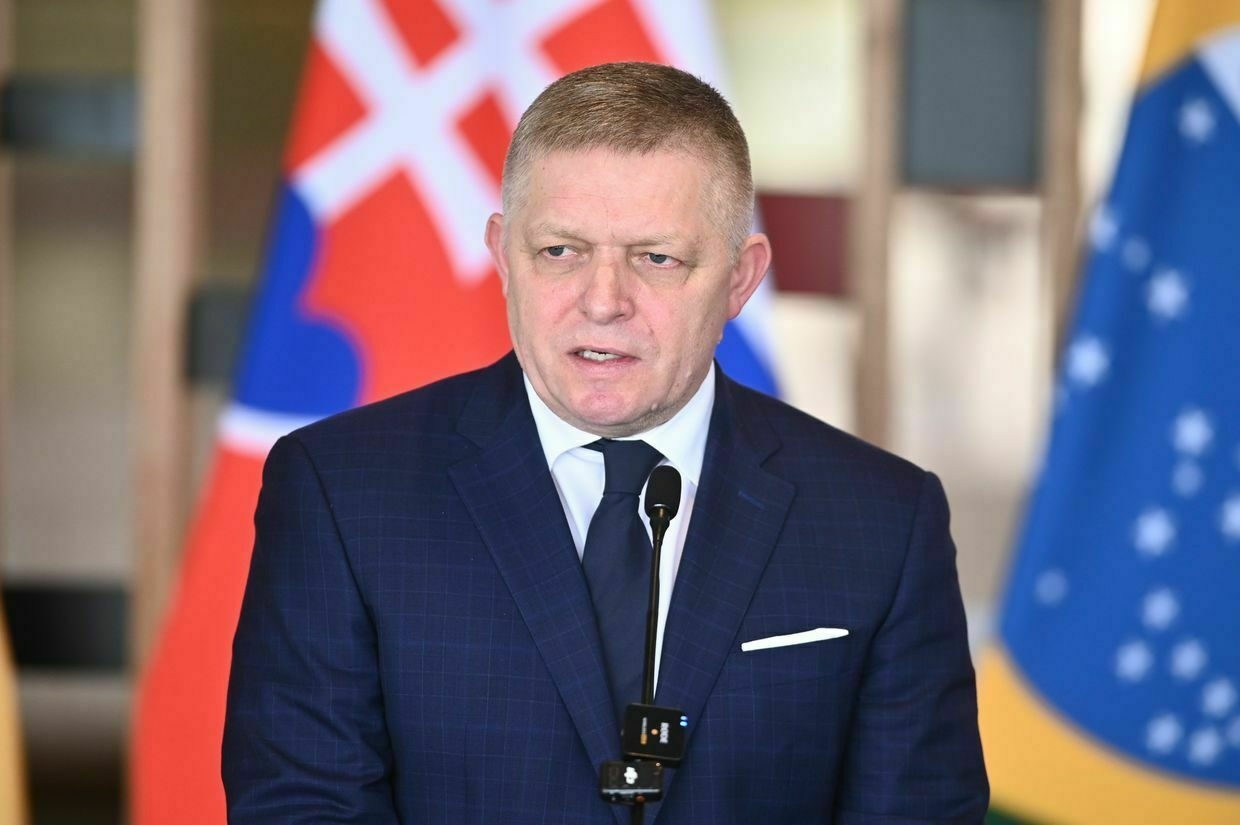
The Foreign Ministry denied Slovak Prime Minister Robert Fico’s claim that Ukraine is connected to a cyberattack on Slovakia’s national insurance company, according to a statement on the Ministry’s website on Jan. 24.
“We categorically reject the hints of Ukraine’s involvement in the cyberattack against a health insurance company in Slovakia,” the statement said.
The Ministry also called on Fico to stop portraying Ukraine as an enemy.
“We once again call on the Prime Minister of Slovakia, Robert Fico, to stop looking for imaginary enemies in Ukraine, which is friendly to Slovakia and the Slovak people.”
Fico made the allegation during an urgent press conference, offering no evidence to support his claim.
Meanwhile, widespread protests against Fico’s government are underway, and the opposition is pushing for a vote of no confidence.
Protesters, which erupted in more than 20 cities, chanted slogans like “Enough of Fico” and “We are Europe,” expressing discontent with the prime minister’s policies and pro-Russian rhetoric.
The demonstrations drew significant crowds, with organizers claiming 60,000 participants in Bratislava’s Freedom Square.
NATO chief urges US to keep arming Ukraine, pledges European funding“If this new Trump administration is willing to keep on supplying Ukraine, the bill will be paid by the Europeans,” NATO Secretary General Mark Rutte said at the World Economic Forum in Davos.The Kyiv IndependentTim Zadorozhnyy
